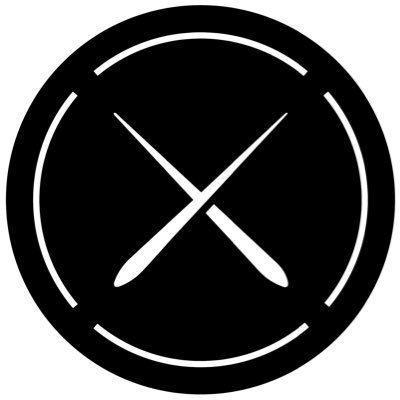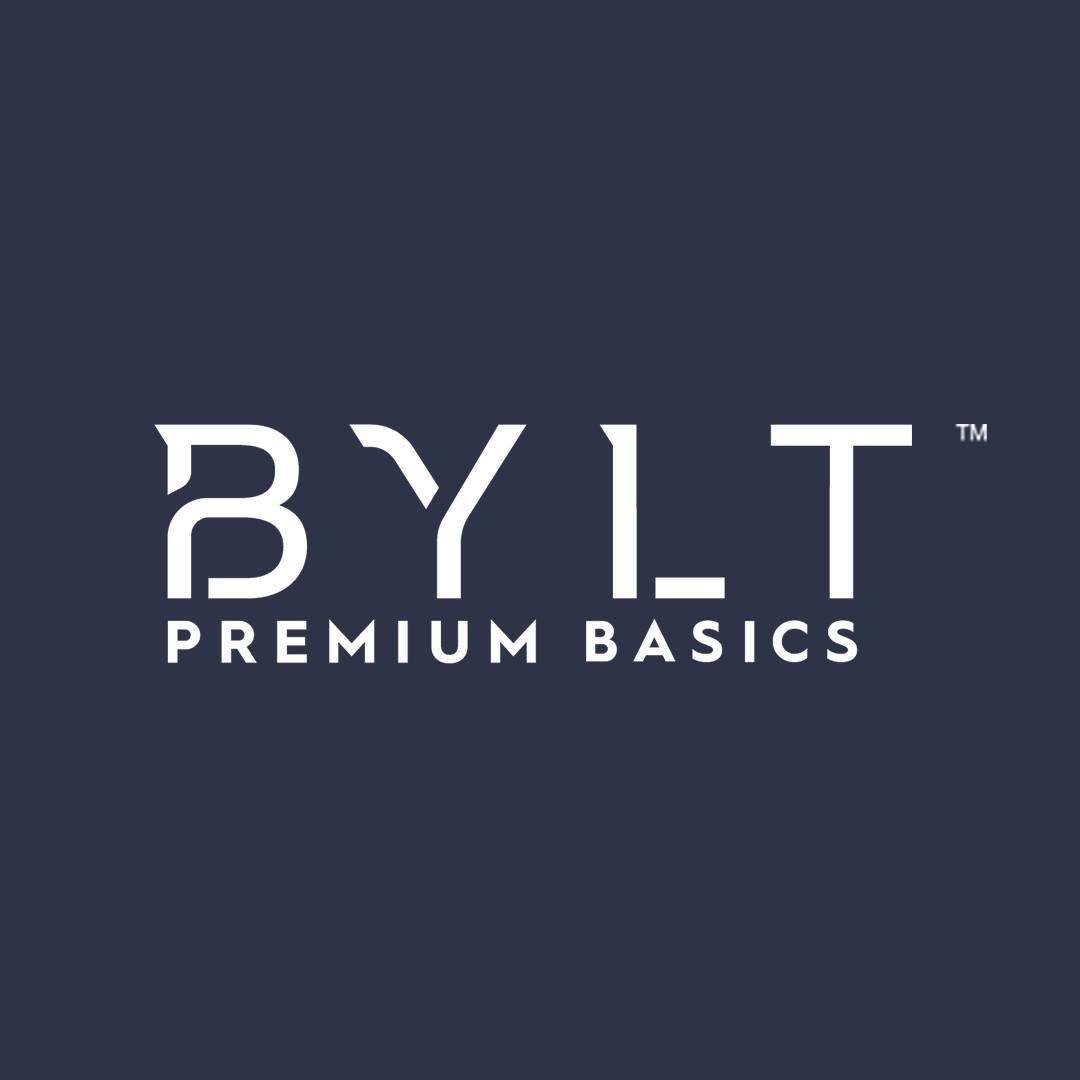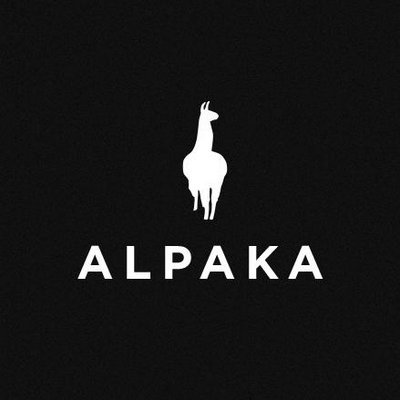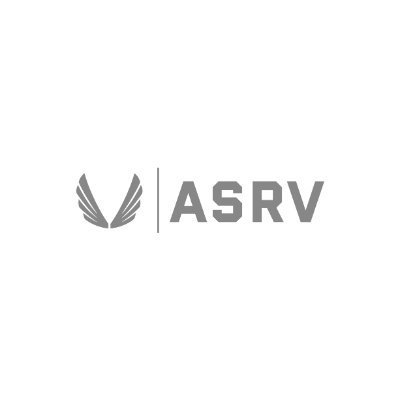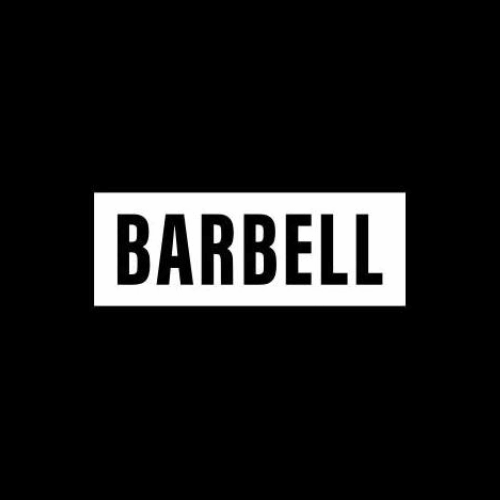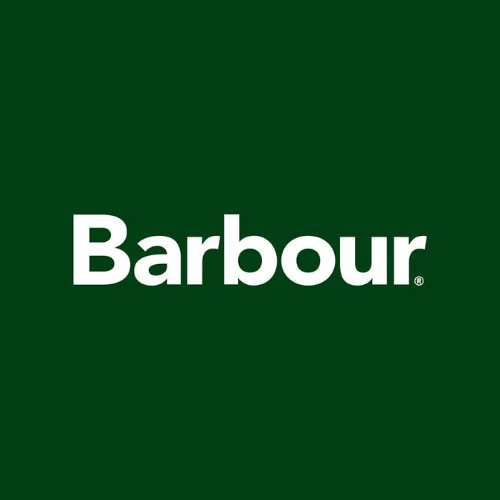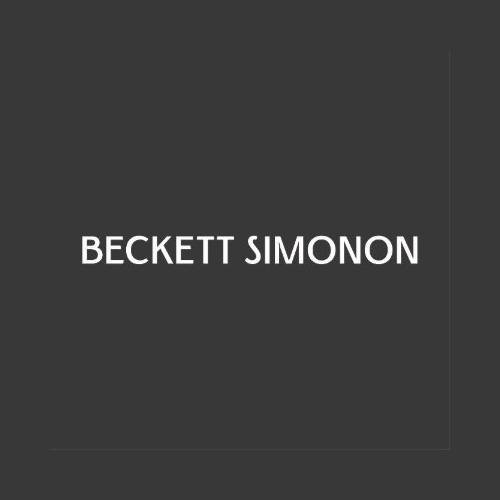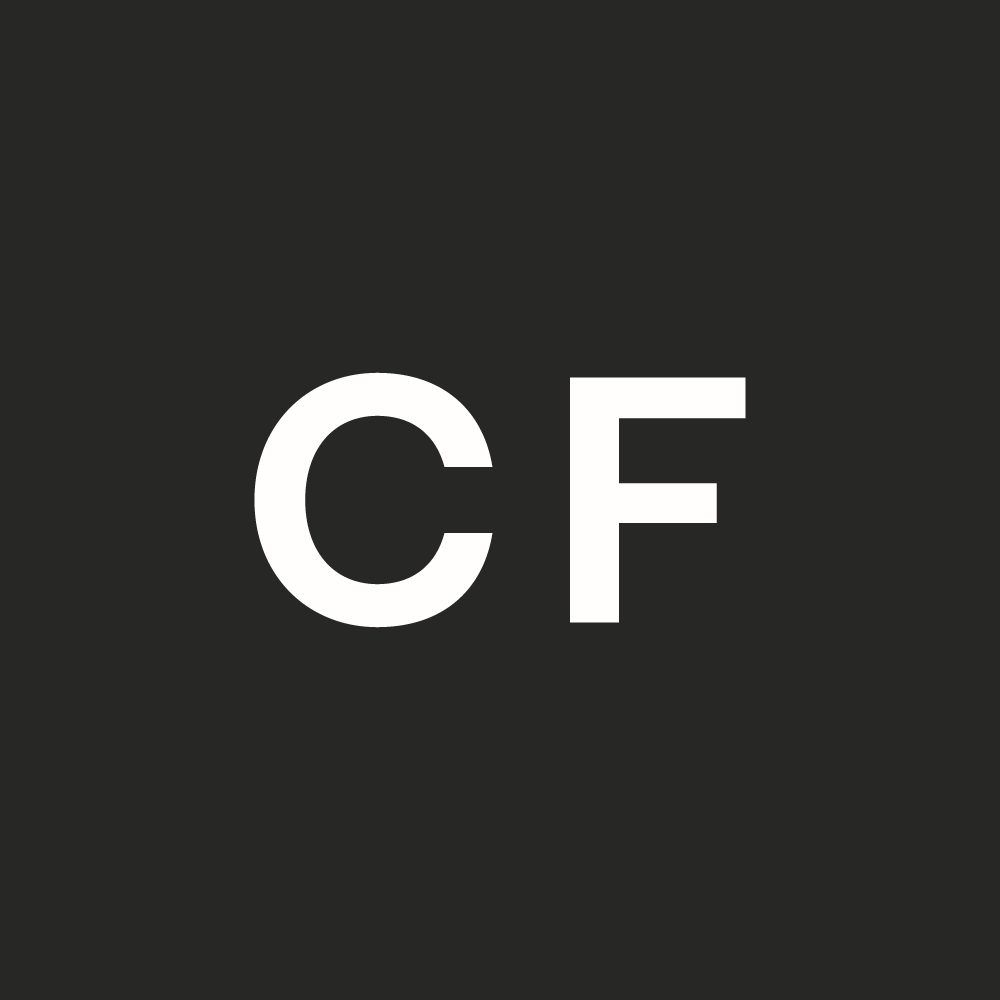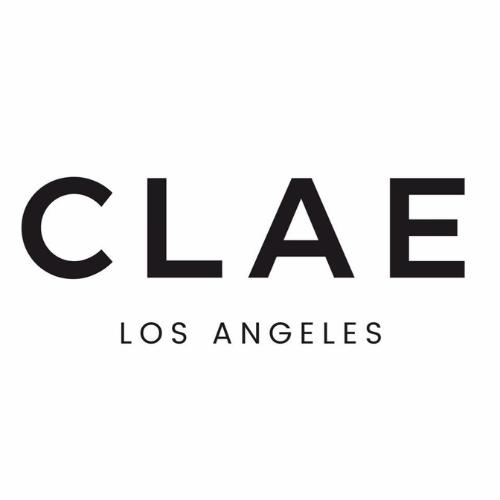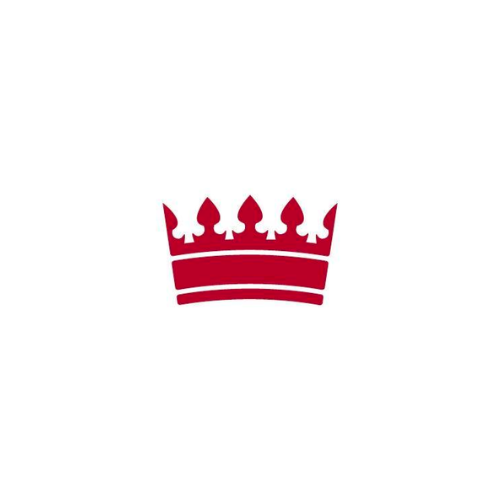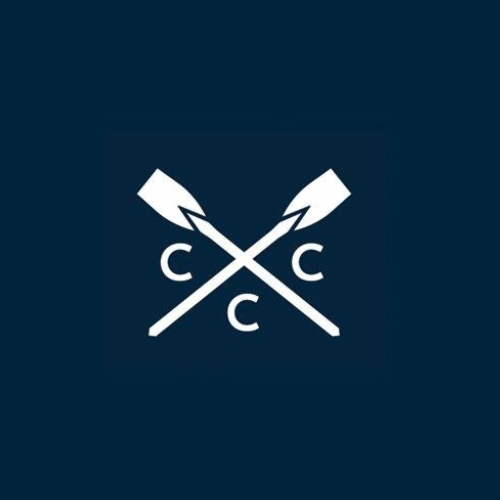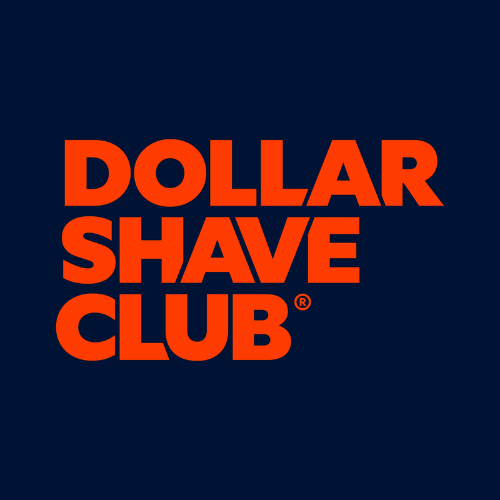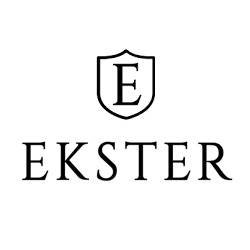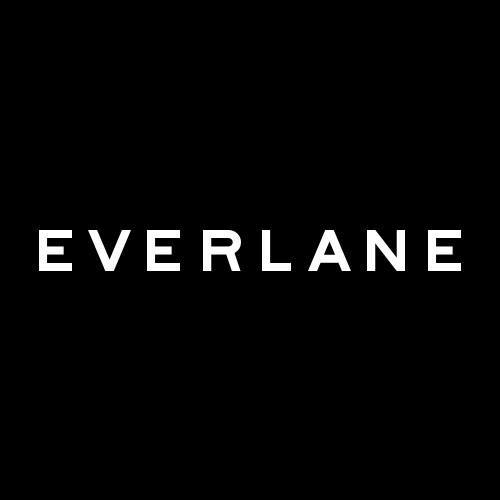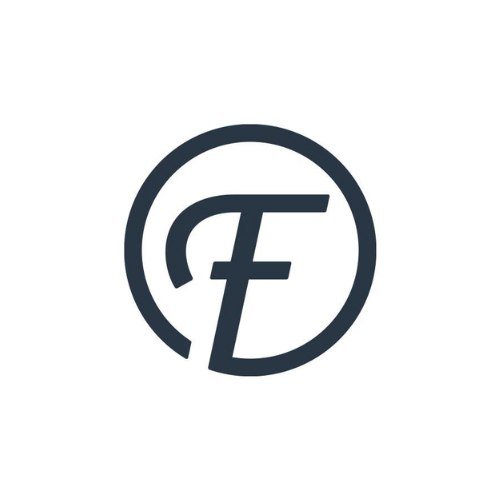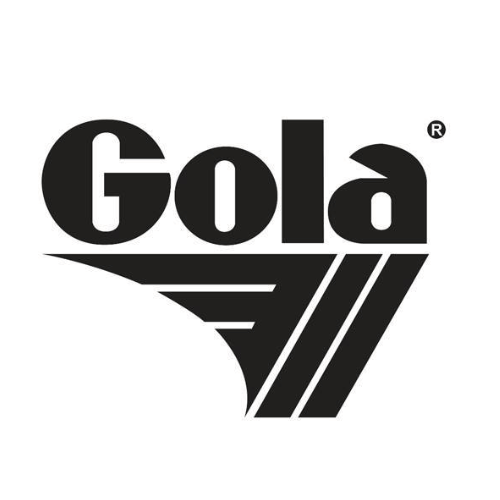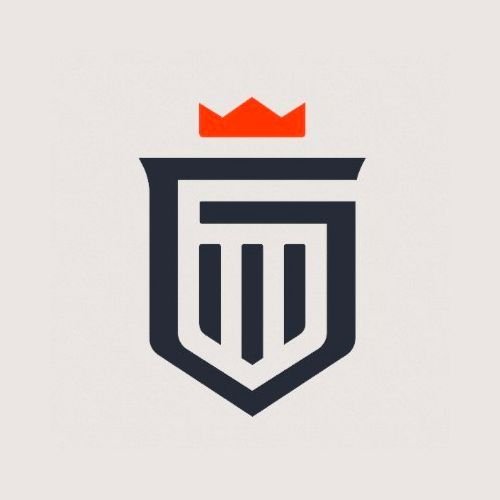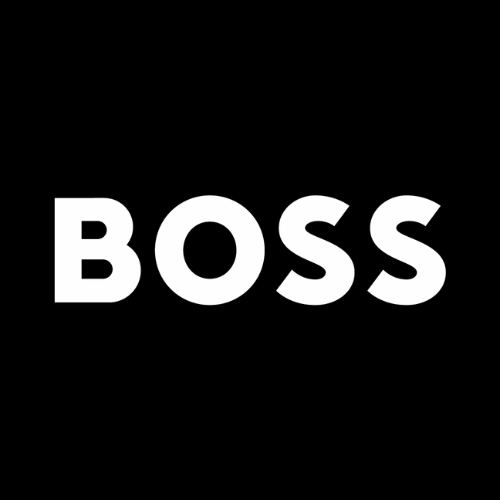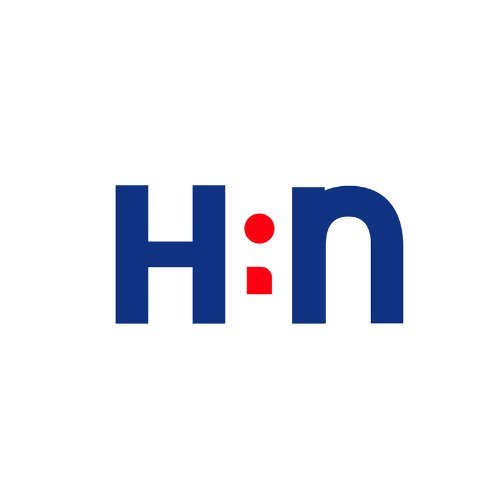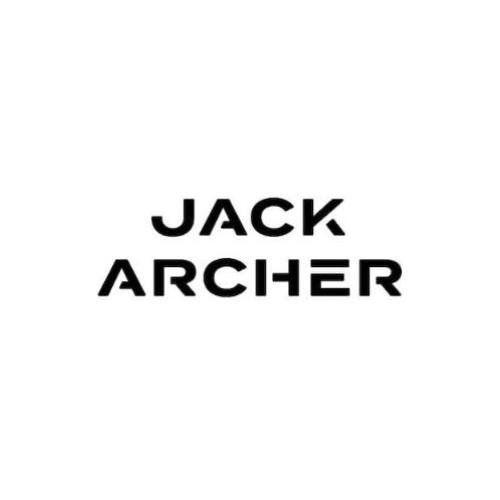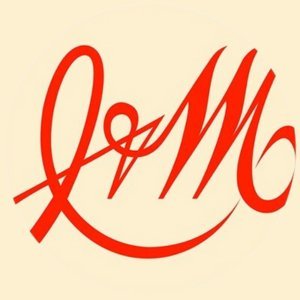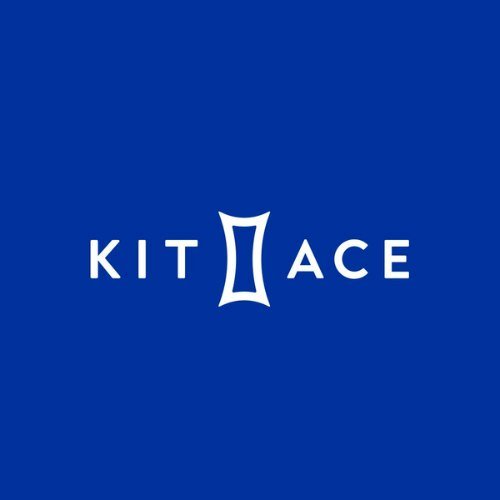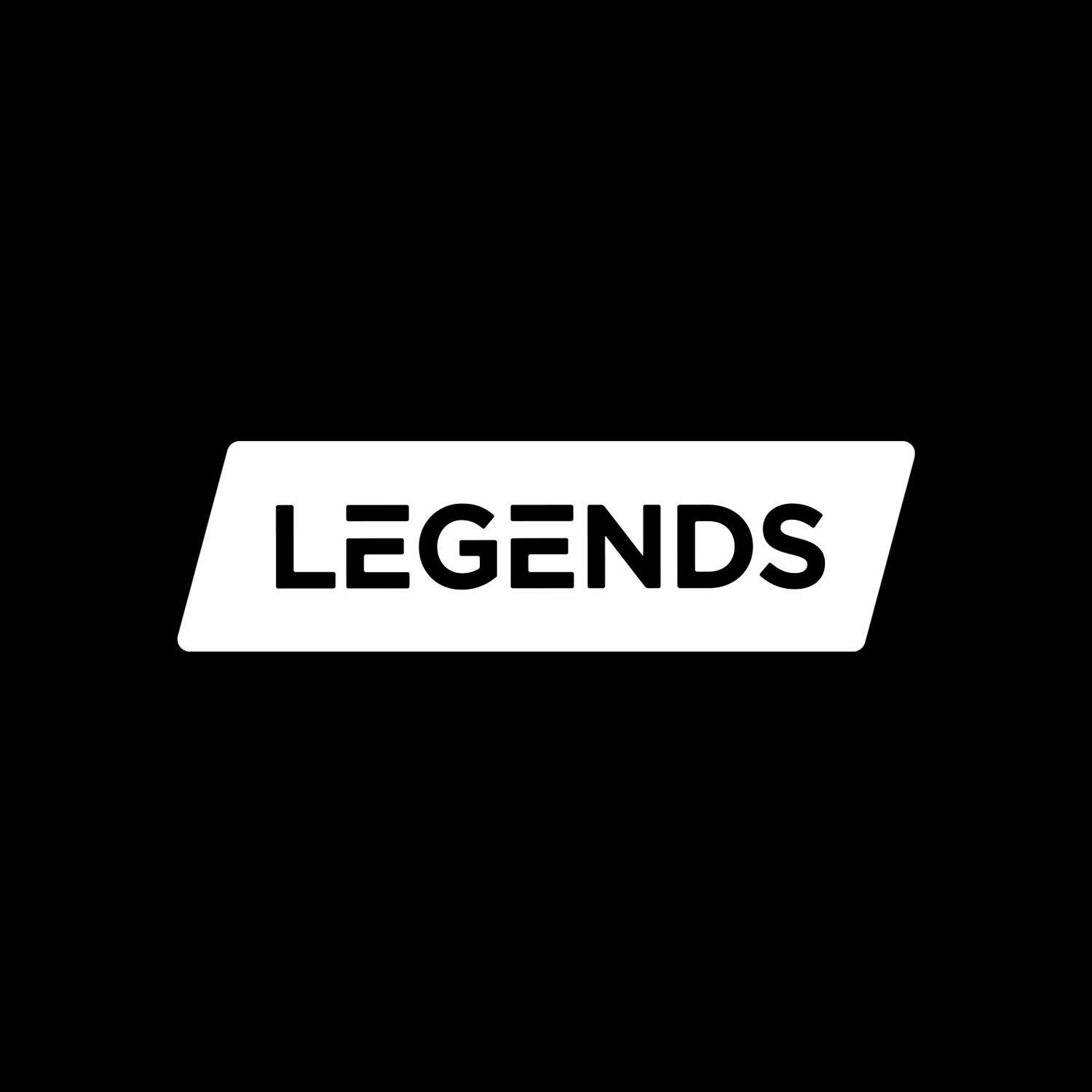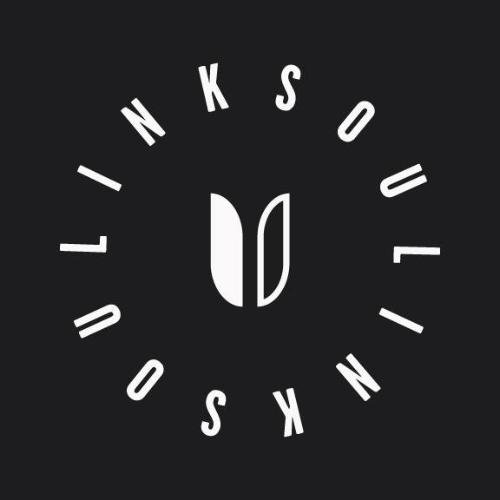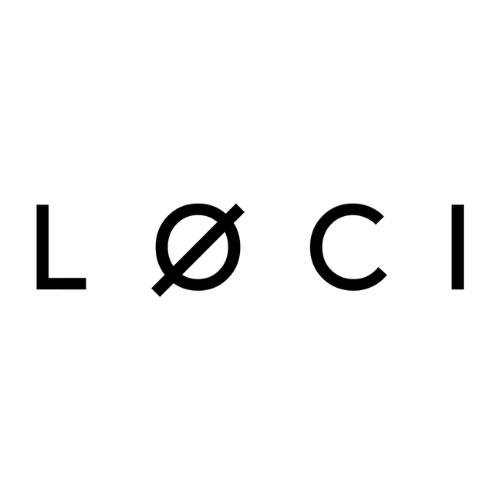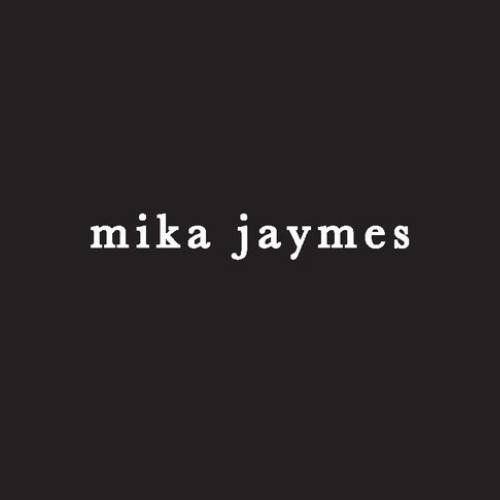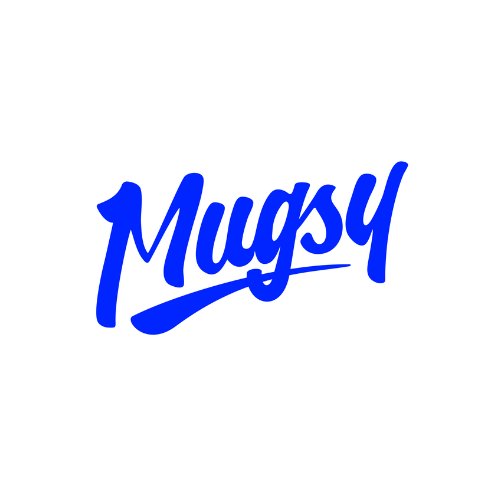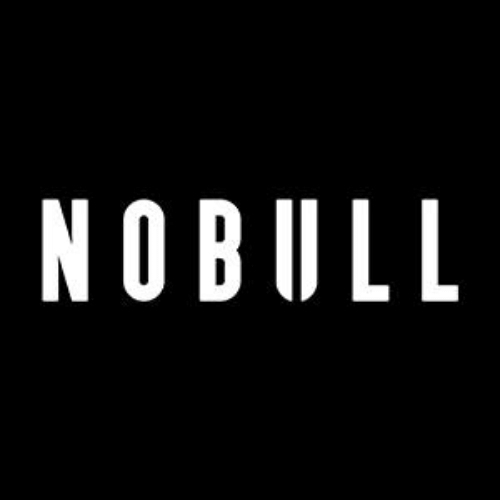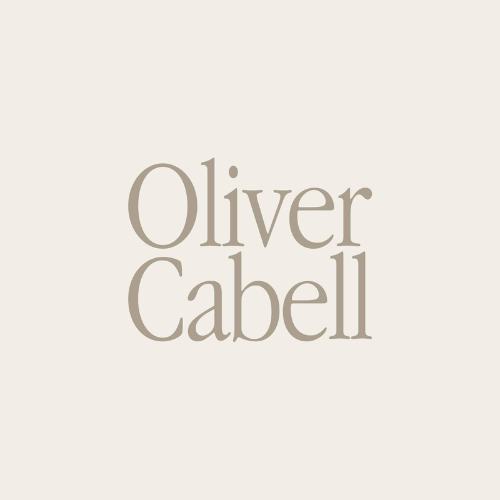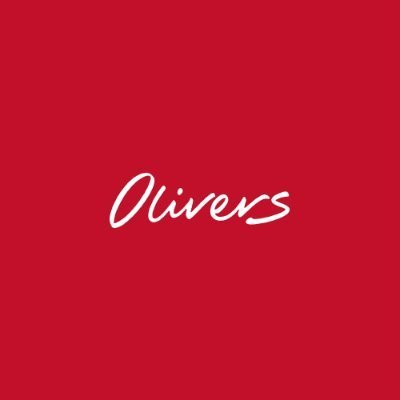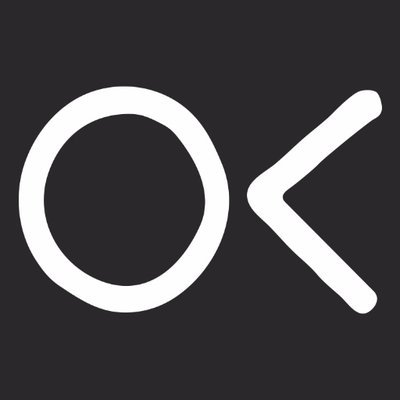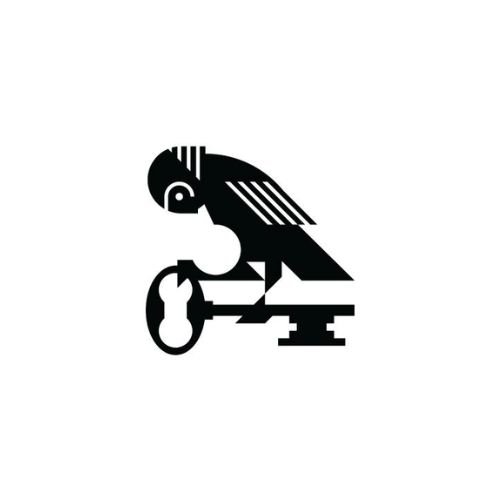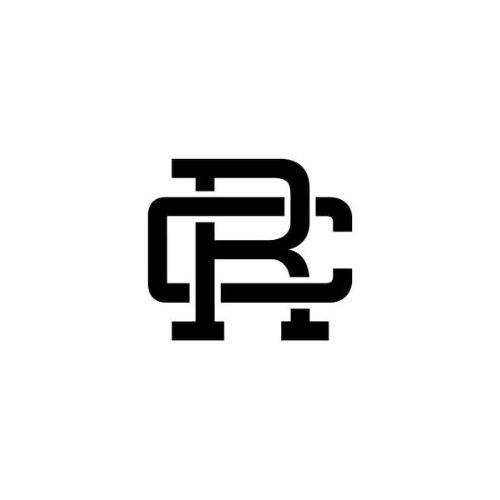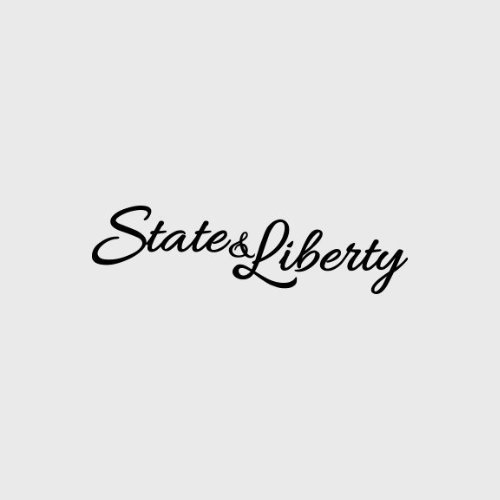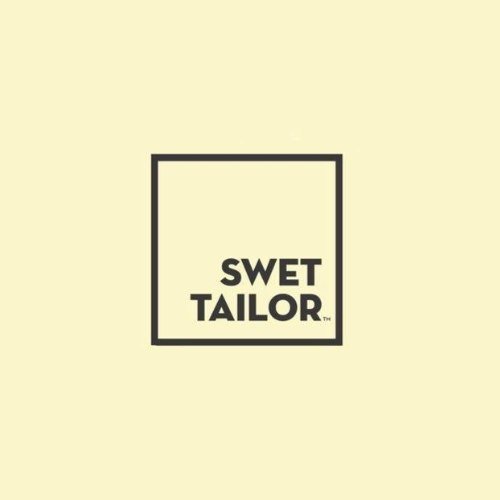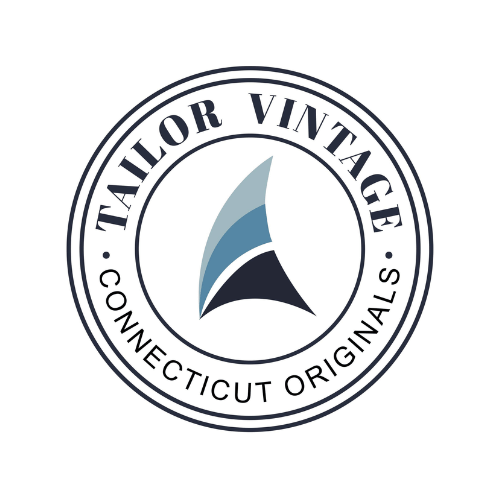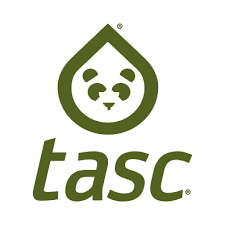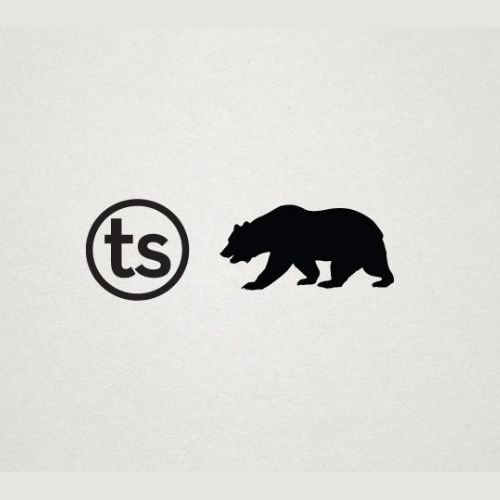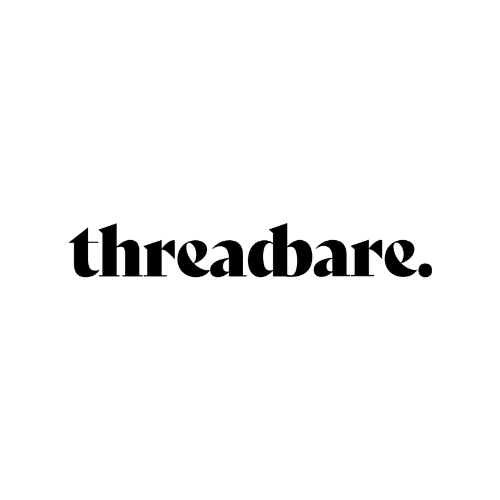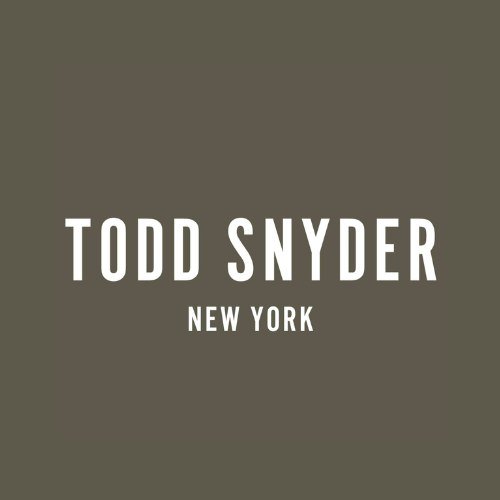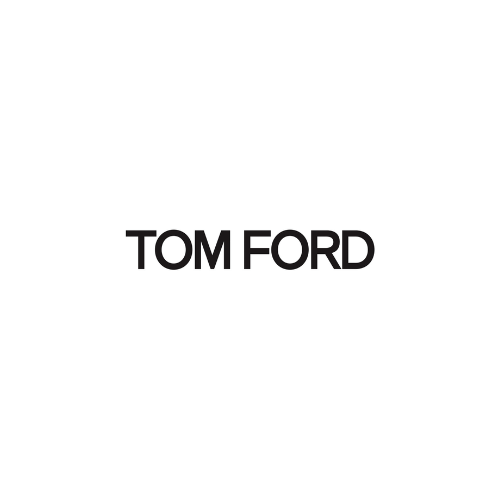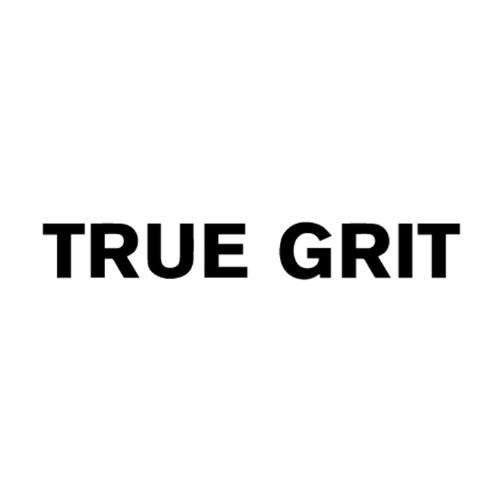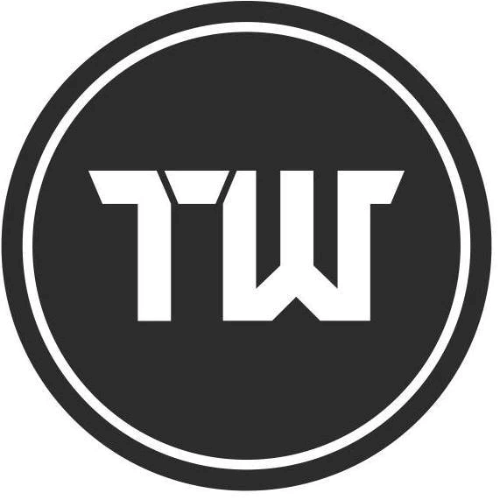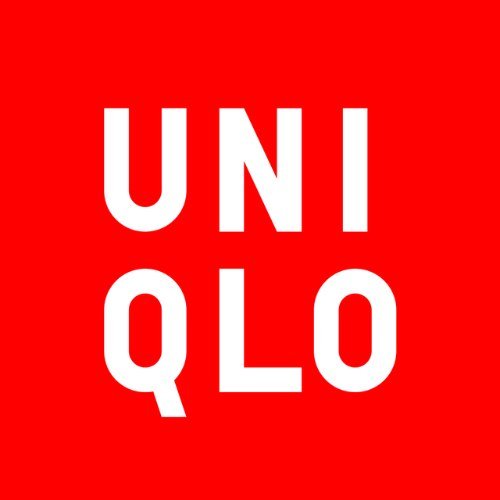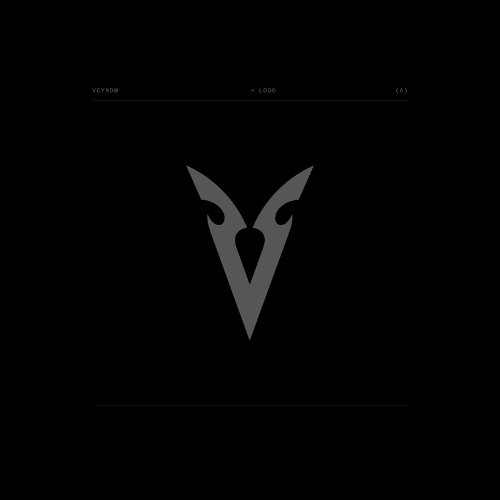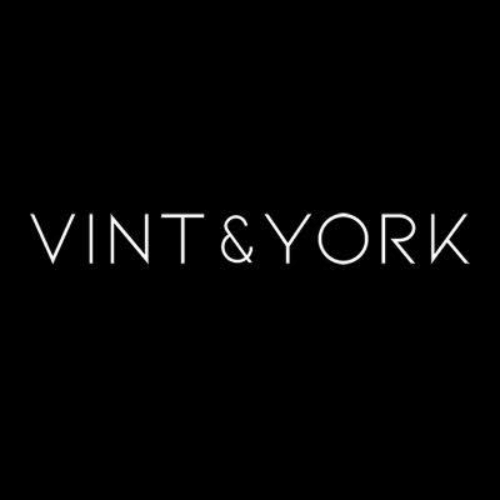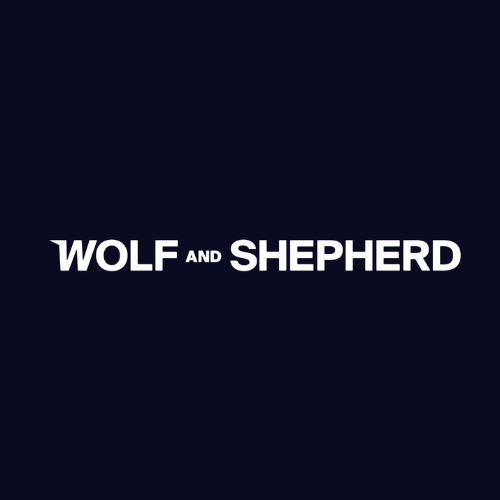Top Athleisure Brands for Men
Featured Brands
A
Aether Apparel, founded by Palmer West and Jonah Smith, blends entrepreneurial drive and slick design. The partners first found success financing and producing indie films. But they caught the decline of DVD sales and the rise of streaming early. This foresight led them to explore fresh business ventures, ultimately sparking Aether Apparel in 2009.
Living in NYC, West and Smith wanted outdoor gear that mixed tech and polished style. They noticed folks sporting ski shells for weather protection in the city, showing demand for versatile, urban-fitting outerwear with technical chops. This realization fueled their vision for threads bridging rugged gear and fashionable streetwear.
Expanding into moto apparel in 2012 made sense, given West and Smith’s passion for motorcycling. They first made moto jackets for themselves and friends, infusing Aether’s aesthetic and performance into bike essentials—pieces like the Skyline jacket caught on, appealing even among non-riders for its functional flair.
West and Smith prioritize balancing form and function. They create products that are sharply styled yet technically sound. This mindset extends to their moto line, built for function yet fashion, on and off the road. The brand’s muted palette, minimal branding, and great fit spotlight their commitment to this ethos.
Their design process stays fresh year-round. West and Smith didn’t limit themselves to seasonal collections but explored ski, snow, and moto apparel opportunities. This dynamic approach keeps them innovating in step with customer needs.
Aether also takes quality and customer experience seriously. They offer a lifetime manufacturing guarantee, emphasizing accountability and trust in their gear’s durability. This pride also shows in their moto lineup, as they actively seek rider feedback to refine products. They often replace damaged jackets free of charge, demonstrating their dedication to excellence and earning customer loyalty.
Overall, Aether Apparel threads the needle between high-performing adventure essentials and fashion-forward streetwear. Its founders crafted a unique brand identity anchored in quality, function, and style, all backed by a tight rider community and stand-up support.
Aldo’s rise from a single Montreal shoe concession to an international retail titan traces back to founder Aldo Bensadoun’s passion for footwear craftsmanship. Instilled early through his family’s multi-generational cobbling legacy, Bensadoun launched his eponymous company in 1972 with a vision beyond commerce—to build a brand rooted in caring.
Relocating from France in the 1960s to study engineering, a young Bensadoun soon found his calling designing shoes. He pioneered Aldo’s first standalone Montreal boutique in 1978, marking a milestone en route to global expansion. Through the ‘80s and ‘90s, his elevated, fashion-forward designs built buzz at Aldo’s rapidly multiplying North American stores. The brand then went worldwide, debuting outlets across Europe, the Middle East, and Asia.
Central to Aldo’s identity is diversified offerings tailored to diverse crowds. Complementing the flagship Aldo banner, the company mastered mass retail through ventures like Call It Spring and Globo Shoes. Seeking further reach, Bensadoun forged major partnerships with players like JCPenney and Kohl’s to operate store-within-store concepts showcasing Aldo-designed products.
Then, as with many businesses, the COVID-19 pandemic struck a blow, forcing a 2020 bankruptcy protection filing and company restructuring. But resiliency prevailed—within two years, Aldo emerged, revitalized, and redoubled its customer commitment.
Now spanning nearly 100 countries with almost 3,000 stores, Aldo’s comeback reflects its founder’s early vision to create more than just a company but also a culture focused on care and service. Through ups and downs over 50 years in business, these human values rooted in Bensadoun’s family origins remain Aldo’s steadfast foundation as the brand continues growing internationally.
Allen Edmonds stands as a paragon of American craftsmanship in men’s footwear, with its roots deeply embedded in the tradition of quality shoe-making since its inception in 1922. Elbert W. Allen founded this iconic brand in Belgium, Wisconsin, pioneering responsive cork insoles to replace the then-standard metal nails and shanks.
This innovation began a more comfortable dress shoe, laying the foundation for a legacy of excellence and innovation in men’s fashion.
Throughout its history, Allen Edmonds has been synonymous with American style, especially noted for supplying footwear to the US Army and Navy during World War II. This connection fostered a lasting loyalty among servicemen, showing the brand’s quality and comfort. The post-war era saw Allen Edmonds cement its reputation with timeless styles like the Park Avenue and Strand oxfords, which remain favorites.
The brand’s dedication to craftsmanship is evident in its meticulous production process. Each pair of shoes goes through a 212-step process, touched by up to 60 craftspeople, including a number from 2nd and 3rd-generation maker families, underlining the brand’s commitment to tradition and quality.
Looking ahead, Allen Edmonds remains committed to evolving with the times while retaining the core of its identity. This includes expanding into casual and office-appropriate sneakers, ensuring the brand stays relevant in a changing fashion landscape. Yet, the promise remains: footwear crafted with integrity, quality, and honesty.
Founded in the yoga capital of Los Angeles in 2007, Alo Yoga has transcended its beginnings as a niche yoga apparel brand into a thriving, multidimensional athleisure and lifestyle company. While many athleisure brands rely heavily on celebrity sponsorships and ephemeral trendiness, Alo stands apart for its authentic embodiment of mindfulness, quality craftsmanship, and commitment to eco-conscious practices.
The Alo Yoga brand encapsulates the company’s culture, representing air, land, and ocean harmony. This emphasis on sustainability is deeply ingrained into Alo’s operations, from solar-powered facilities to organic employee gardens and comprehensive recycling programs. As the company has grown into a global athleisure powerhouse valued at over $400 million, it has retained its original vision by staying true to quality and integrity practices.
Unlike fleeting Instagram brands, Alo has thrived by fostering an authentic wellness-centered community. With over 4,000 brand ambassadors, mainly yoga instructors, athletes, and health professionals, Alo relies on word-of-mouth marketing from influencers who live the lifestyle. This approach attracts consumers who gravitate towards the brand’s accent on style and substance.
While apparel remains at Alo’s core, its offerings have demonstrated remarkable innovation across verticals in recent years. Alo is more than just yoga pants. Their product line ranges from skincare to luxury skiwear, sneakers, intimates, and a high fashion collection. Yet even through rapid growth across categories, the company consistently values sustainability, ethical production, and dedication to quality.
As brick-and-mortar “sanctuaries” with integrated yoga studios and cafes replace temporary pop-up shops, Alo has created physical manifestations of its vision for mindfulness and community. The company sits at the intersection of wellness, style, and next-generation culture with national yoga partnerships, music festivals, and embracing technologies like virtual worlds and digital fashion.
The Alo Yoga brand represents far more than clothing or passing trends. In an industry often lacking meaningful narratives, this company has carved out a distinct niche where quality craftsmanship meets social consciousness. Alo spreads positivity while building a thriving business by promoting sustainability, mindfulness, and overall well-being practices.
When Alpaka Gear emerged from Melbourne in 2016, their technical backpacks and accessories initially targeted practicality-focused communities like photographers, prized for enduring protection across urban expeditions. But the brand’s heritage reaches beyond superior utility to champion sustainability and empathetic design, uplifting people and the planet.
Alpaka’s founders recognize that bags showcase personal values beyond basic functions. Their mission is to carry an opportunity for self-expression aligned with ethical priorities. Thus, Alpaka fuses aesthetics and ethics alongside storage functionality. Products blend sleek silhouettes for commutes with durable, eco-conscious fabrics ready to safeguard gear across adventures. Design questions probe deeper than “What do customers want?” to ask “What do they need to thrive?”
This conscientious lens shapes production. Recycled materials minimize waste, while energy-efficient practices reduce environmental impact. Ongoing partnerships with a small factory in Shenzhen, China, enable close collaboration for premium quality control under a lifetime guarantee. Even sales contribute – Alpaka donates 1% to nonprofits supporting environmental justice.
However, the brand’s sustainable conscientiousness extends beyond materials and methods to champion community resilience and justice. Workshops foster local skills-building while promoting cross-cultural exchange. Funds support groups combating inequality and championing human rights. Pathways to positive progress start with everyday choices guided by honesty, empathy, and passion.
Alpaka Gear demonstrates how fashion accessories can further dignity for all of humanity. Their bags let customers carry personal necessities while easing collective burdens, limiting sustainable advancement. It’s why the brand continually asks, “How can we uplift others?” With designs enabling urban exploration under an expanding ethical horizon, Alpaka Gear leads by uplifting more than users alone but all people needing support to reach their potential.
ARNE is the brainchild of brothers Reece and Ryan Broadhurst, who launched the brand in the UK in 2018. They built it on a simple idea: clean, minimal designs without the designer price tag. You won’t find loud logos or flashy patterns here—just solid, everyday pieces done right.
The brothers noticed a gap in the market. People wanted high-quality basics that didn’t cost a fortune. So they got to work. Today, ARNE delivers classic clothing and premium footwear crafted in Portugal with Italian materials. It’s all about getting the essentials right—no frills, just timeless pieces that last.
Fast forward to 2023, and ARNE is going global. They set up shop online in the U.S. and announced plans for physical stores in Los Angeles and New York. It’s a big move, aimed squarely at people who appreciate minimalism done well. The goal? To bring that same no-fuss approach to an even bigger audience.
What’s next? ARNE is popping up in more places with flagship stores and temporary shops. It’s all part of the plan to get closer to you and to make the shopping experience more personal. With their focus on simple design and solid craftsmanship, the brand is carving out a solid place in the fashion scene.
Is ARNE a luxury brand?
The brand focuses on minimalist, high-quality menswear, womenswear, footwear, and accessories at accessible price points. While ARNE emphasizes quality and design, it is not classified as a traditional luxury brand.
Instead, it offers premium products that bridge the gap between high-end fashion and affordability, appealing to consumers seeking well-crafted, minimalist pieces without the typical luxury price tag.
When Steven Mazur and Eric Huang founded the menswear brand Ash & Erie in November 2015, they sought to fill a glaring void in fashion – well-fitting essentials for men 5’8″ and under. Driven by firsthand experience struggling to find clothes with proper tailoring and proportions, these co-founders envisioned stylish yet functional pieces to boost confidence and self-image in shorter guys.
They launched Ash & Erie with their signature Everyday Shirt – a refined yet relaxed button-down meticulously crafted just for shorter builds. This initial product release marked a new standard in the market, catering directly to overlooked frames with thoughtful details from scaled sleeve lengths to trim collars flattering shorter necks.
Propelled by imperative and empathy, Ash & Erie’s first run sold out rapidly. Word spread, pre-orders amassed, and the young company landed amid the bright lights and high stakes of a 2017 Shark Tank appearance. Several million shirts later, Ash & Erie has carved out a niche community and become everyday heroes to underserved men worldwide.
Staying true to its origin story, the Detroit-based brand has since expanded its offerings while upholding the same tailoring philosophies that spawned its breakout Everyday Shirt. Using proprietary data and consumer feedback, Ash & Erie ensures each new shirt, jean, and jacket suits the proportions of men 5’8″ and below – neglected for too long by the fashion establishment.
Through relentless dedication to fit, fabric, and function, Ash & Erie empowers overlooked customers while leading industry change. After initial success, the mavericks behind Ash & Erie could have settled as status quo. Instead, they persevere as advocates to help men maximize personal style and self-confidence, regardless of their height.
Founded in 2014 by Jay Barton, California-based athletic apparel company ASRV arose from Barton’s frustration with the lack of quality, functional activewear. Barton’s background in founding startups and attending design school shaped ASRV’s inception as a durable, vintage-inspired fitness brand.
ASRV’s philosophy is centered around developing durable apparel to meet the demanding needs of athletes, focusing on technical precision. Manufactured by their South Korean production team featuring specialized mills and expert craftsmanship, ASRV pioneers high-performance gear and premium fabrics, setting rigorous standards in quality and innovation.
When COVID-19 hit, Barton predicted hardship for ASRV clothing amidst economic uncertainty. However, ASRV thrived as athleisure demand surged with the rise of remote work. Comfort became essential, and stretchy activewear prevailed. ASRV rapidly responded, releasing popular stretch-fabric masks—selling 3,000 in minutes.
Forgoing traditional retail, ASRV clothing reached cult-like status via social media and celebrity/athlete co-signs. On Instagram, their following exceeds 1.2 million. ASRV keeps progressing by integrating technologies like durable Kevlar and antibacterial treatments, advancing performance and protection. Their forward-thinking, athlete-centric approach propels ASRV into the future of technical activewear.
Founded in 2006 by Paige Mycoskie, Venice Beach-based brand Aviator Nation epitomizes the vibrant retro cool of 1970s California, infusing its laidback SoCal roots into a global lifestyle phenomenon.
Emerging from Mycoskie’s passion project garage days, the brand’s ascent has included 19 global stores and partnerships with artists, events, and companies tapping Aviator’s broad appeal. Yet expansions retain their authentic tie-dye-and-color aesthetic and ethical manufacturing. Signature distressed hoodies, hand-stitched in their LA factory, spotlight dedication to quality and care in production. Mycoskie’s artistic visions shape design, too – her rainbow lightning bolts and eagles channeling vintage style.
Aviator Nation brings California’s soul and craft to a new generation by blending creativity and ethics with community ties and premium construction. The result is an instantly recognizable lifestyle brand where sustainability and quality meet to embrace the spirit of the ’70s in a distinctly modern way. Staying true to founders’ beliefs during rapid rises, Aviator Nation proves more than apparel – it’s an attitude.
B
Family serves as the cornerstone for emerging men’s apparel brand B. Draddy was named after the founding brothers Draddy. Drawing inspiration from the bonds of brotherhood and generational support structures, B. Draddy infuses its products with themes of kinship and unity.
Founder Billy Draddy’s experiences reveal the profound impact of family – from grandfatherly figures to his brother’s unwavering partnership. This emphasis on familial connections shapes the brand’s ethos. Images of renowned yet approachable cultural icons adorn B. Draddy’s website, reflecting an aesthetic blending aristocratic sensibilities with a bohemian edge.
The Draddy brothers balance old-world craftsmanship with modern innovations. Using performance fabrics like breathable Pima cotton woven in Peru, each garment marries comfort and durability. This commitment to quality materials and construction has quickly distinguished B. Draddy in the market, even as they maintain reasonable prices.
Within a few short years, B. Draddy has established itself among elite circles, finding its way into exclusive golf clubs and resorts nationwide. Its ascent demonstrates the brand’s resonance – where customers feel part of the extended Draddy family.
At its heart, B. Draddy creates not just high-quality attire but an aspirational lifestyle infused with the warmth of tradition, the support of brotherhood, and the tailoring of today. Its very name symbolizes bonds between generations, promising clothing imbued with the comfort of kinship.
Barbell Apparel, started by friends and athletes including Alex Hansen and Hunter Molzen, launched in 2014. They saw a gap in the market for jeans that fit muscular builds and created Athletic Fit Jeans.
Their Kickstarter campaign was a hit, raising over $730,000, far exceeding their $15,000 goal. An appearance on Shark Tank brought them a $500,000 investment from Daymond John.
Based in Las Vegas, Barbell Apparel now offers chinos, shorts, performance wear, and more to boost athletic performance and comfort. Their dedication to quality has built a loyal customer base and garnered positive reviews.
In June 2020, Barbell Apparel opened its first physical store in Las Vegas, allowing them to connect directly with customers and gather feedback to enhance their products. The company also supports rescue organizations across the U.S. through initiatives like ‘Barbells For Bullies.’
See here for a list of all Barbell Apparel featured collections.
Barbour Clothing represents a remarkable story of durability, tradition, and British heritage. It was founded in 1894 by John Barbour in South Shields, England. With origins deeply rooted in providing oilskins and weatherproof garments for those battling the harsh North Sea weather, Barbour pioneered the innovative use of waxed cotton, enhancing the durability and waterproofness of its jackets.
The brand has maintained its headquarters and factory in Simonside, South Shields, for over a century, where it continues to produce some of its classic wax jackets by hand, employing about 180 staff members and outputting 130,000 to 140,000 jackets yearly across various styles.
Under the stewardship of the Barbour family, now in its 5th generation with Dame Margaret Barbour as chairman and her daughter Helen as vice chairman, the brand upholds its legacy through traditional manufacturing techniques and a unique re-waxing service that rejuvenates around 13,000 jackets annually.
While renowned for its iconic waxed cotton jackets like the Bedale and Beaufort, Barbour has evolved into a comprehensive lifestyle brand, offering various clothing and accessories for men, women, and children. This evolution reflects Barbour’s commitment to expanding its product line while adhering to core values and craftsmanship.
Barbour’s collaborations with notable brands and personalities, including Land Rover and Alexa Chung, alongside introducing customization options like My Barbour, underscore its adaptability and appeal to a broad audience.
The brand’s significance is further elevated by three Royal Warrants and endorsements from royalty and celebrities alike, symbolizing its status as a symbol of British luxury and style. Barbour’s journey from a local manufacturer to a global icon highlights its enduring appeal and the timeless quality of its products.
Beckett Simonon was founded in 2011 by Nicholas Hurtado and Andres Niño, two entrepreneurs from Bogotá seeking to upend retail’s high costs and ethical issues. Frustrated by the impacts of excessive markups and overproduction, they pioneered a made-to-order model pairing quality with sustainability.
This just-in-time production eschews inventory, reducing waste from mass production. Besides lessening environmental footprints, the approach facilitates competitive pricing, expanding access to premium goods. A conversion lift of 5% and 237% ROI confirmed ethical messaging strongly resonates with Beckett Simonon’s customers.
Responsible practices constitute the company’s core. Their products are designed to endure, not chase trends, with artisans paid fair wages under safe conditions to uphold human dignity. Beckett Simonon uses ethically sourced leathers, like those from the Gold-rated sustainable tannery Gruppo Mastrotto, opting for minimal toxins and renewable materials when possible.
Beckett Simonon’s ascent demonstrates how an innovative direct-to-consumer model centered on ethics and values can offer discerning customers premium products that challenge the status quo—proof that positive business can power positive impacts.
Black Ember, founded in 2014 in San Francisco, has emerged as a prominent name in the technical backpack market, known for its innovative features and design excellence. The brand prides itself on being the first to collaborate with CORDURA® Advanced Fabrics, particularly in developing the CORDURA® 420 Velocity re/corTM RN66, one of the first 100% recycled nylon textiles. This emphasis on sustainable, durable materials is a cornerstone of their product philosophy, as evidenced by their lifetime warranty on packs.
The company has also made significant strides in material technology and design. Co-founder Chris Gadway has been instrumental in developing heavy-duty polyester fabrics coated with polyurethane for their Citadel Minimal backpack, showcasing their commitment to rugged, waterproof products. Their products incorporate premium materials such as T6 aircraft-grade aluminum, Maglock magnetic hardware, and YKK zippers, further underscoring their focus on quality and innovative design.
Expanding internationally, Black Ember has seen rapid growth, especially in the Japanese market, where they have launched 12 retail outlets for their Kompak line. This expansion is part of their broader strategy to incorporate the Cordura re/cor RN66 fabric across their product lines, including the premium duffels Shadow and Forge.
Black Ember stands out in a crowded backpack market for its constant innovation in sustainable designs and premium technical materials. By collaborating with industry leaders like CORDURA on cutting-edge fabrics, Black Ember backpacks deliver rugged durability without sacrificing responsible production values. Their growth into international markets reflects the universal demands from modern professionals and travelers for bags as intelligently designed and sustainably crafted as Black Ember’s lineup.
This San Francisco brand continually pushes the envelope on functionality while upholding production ethics, setting the new standard for technical packs built to endure.
When Gareth Newman founded Blakely Clothing in 2012, he aimed to make sustainable fashion accessible to the masses. What began as an e-commerce store shipping from Newman’s Norfolk warehouse has blossomed into a beloved brand making waves across Europe.
At the core of Blakely lies the conviction that personal style and eco-conscious choices need not be exclusive. Their expansive menswear and womenswear collections channel timeless silhouettes into wardrobe staples designed to last years, not seasons. The jeans, coats, activewear, and more for both men and women emphasize versatility over fleeting trends.
This balance of affordability and durability resonates with Blakely’s growing community. As the brand expanded operations from the UK to a new Belgian distribution center, its team grew right alongside. They now ambitiously strive to become the best possible version of a fashion company – one grounded in integrity, simplicity, and authenticity.
For Newman, building an accessible label known for its classics over fads was a response to an industry increasingly divorced from the realities of most people’s lives. He sought to create a line prepared for wherever life takes its wearers – pieces imbued with quiet confidence and adaptability.
It’s this emphasis on progression and reliability that makes Blakely stand out. In an age of fast fashion that values speed over sustainability, Newman chose to take the road less traveled. And based on Blakely’s swelling fanbase, his bet appears to be paying off.
Though Newman maintains sole control over the company, in many ways, the brand’s identity now rests just as much in the hands of its loyal following. Gareth Newman hasn’t just launched a company by refusing to compromise between affordability, style, and ethics – he’s sparked a movement redefining what it means to dress sustainably.
Founded in 2012 by Stefan Loble, Bluffworks emerged as a solution to his challenges during his adventurous travels, particularly in Asia. Driven by his passion for exploration and a desire for practical solutions, Loble conceptualized Bluffworks to design clothing that seamlessly transitions from the rugged demands of travel to the stylish sensibilities of city life, especially in fashion-forward cities like New York City.
The origin story of Bluffworks is intertwined with Loble’s adventures and experiences. His extensive travel throughout Asia, where he faced discomfort in regular cotton clothes, sparked the idea of using performance fabrics in everyday wear. This led to the creation of pants that combined the functionality of travel wear with the aesthetics suitable for an urban setting. These pants, designed to be sweat-wicking, stain-resistant, and stretchy, were the first product from Bluffworks and marked a significant step in Loble’s journey from a software professional to an entrepreneur in the apparel industry.
Bluffworks started focusing on making the perfect pair of pants, but its collection has since expanded significantly. The brand offers various clothing items, including jeans, trousers, t-shirts, dress shirts, polos, vests, jackets, and blazers. Additionally, Bluffworks has introduced a line of women’s clothing, showcasing the brand’s commitment to versatility and inclusivity in its product range.
The company’s vision is rooted in the desire to create versatile and durable clothes that empower individuals in their various journeys, whether traveling, working, or engaging in everyday activities. This ethos is reflected in their product designs, prioritizing comfort, ease of care, and functionality without compromising style.
Bluffworks stands out for its commitment to making practical clothes for travel suitable for various contexts, from business meetings to casual outings. This versatility is a testament to the brand’s understanding of the modern consumer’s needs: clothing that can adapt to different situations while maintaining a high standard of quality and design.
Founded on grit within a humble garage, Born Primitive Clothing was activated in 2014 through dedication from ex-Navy Lieutenant Bear Handlon and his co-founder, Mallory Riley. Initially catering to Olympic weightlifters, this start-up quickly evolved beyond a niche. Born Primitive’s quality-focused athletic and tactical apparel energizes everyone from CrossFit diehards to special ops warriors to weekend summit strivers through designs validated under intense conditions.
Central to Born Primitive’s identity: the belief that embracing struggle strengthens one’s resolve, as embodied by Handlon’s military service. This “no instant gratification” ethos manifests across the brand. For example, exhaustive athlete testing and community feedback inform product development cycles. Generous support programs giving back to first responders and non-profits also speak to Born Primitive’s patriotic spirit, inspiring customers through a steadfast commitment to honor and selfless duty.
From hardy training shoes to battle-ready bags built for the outdoors, Born Primitive’s expanding gear arsenal keeps pace with athlete ambitions through continuous quality-driven innovation. Despite rapid growth, the brand retains deep ties to its hometown community, never compromising its foundational no-excuses grit.
Ultimately, Born Primitive’s function-forward apparel performs when actively demanded by enabling peak movement, comfort, and determination — whether attacking a PR at the box or pushing the limits on a remote mountain trail. The brand stays true to those who quietly brave the mud and the pain in the relentless pursuit of excellence—no hype, just motivation through dedication full throttle.
Boundary Supply is a brand focused on sustainable and innovative travel bags. They were established in 2016 in Salt Lake City, Utah, by a group of seasoned travelers passionate about sustainability and changing the detrimental impacts of travel. The co-founders recognized the growing threats of climate change, pollution, and unsustainable industry practices to the preservation of the world’s most spectacular natural destinations. This motivated their vision to create a company focused on eco-friendly travel products that could reduce travelers’ environmental footprint.
The company’s vision centers on producing highly functional travel products through continuous innovation in materials and design. Their goal is to reduce consumerism and disposable culture in the travel industry by creating durable, modular, and ethical products that positively impact the environment, which inspires their brand. This commitment to sustainability is evident across their supply chain, from using Bluesign® certified fabrics and monitoring production processes to ensuring products meet rigorous environmental and human safety standards.
Boundary Supply emphasizes quality, ethics, and sustainability at every step – from initial concept and design to manufacturing, distribution, and end-of-life. This holistic approach ensures their products are durable, functionally superior for diverse travelers, and environmentally friendly from development to disposal. Their product line features unique modular packing systems that cater to the varying needs of various travelers while reflecting the brand’s focus on innovative functionality for life on the move. For example, X-Pac material, known for its lightweight durability and weather resistance properties inspired by sailmaking, highlights their constantly evolving approach to sustainable materials.
The brand’s commitment to environmental preservation and human well-being extends beyond its products, as it aims to positively impact its local community in Utah through creative innovations and resilient products while ensuring fair labor practices and safe working conditions throughout its international supply chain and production partners. This dedication to their customers, local community, and the planet reflects their philosophy of easing the burden of the journey beyond the destination.
Founded in 2015 by four ambitious entrepreneurs—Dave Dickert, Josh Tabaj, Tim Welch, and Sam Coil—Branded Bills Headwear sparked a revolution in state-pride headwear. Headquartered in Mesa, Arizona, the company pioneered a novel headwear customization process involving branding irons and knives to create one-of-a-kind leather patches representing all 50 states. This innovation propelled them to rapid growth and multiple expansions from their humble garage origins.
Rather than deliver generic, cookie-cutter apparel, Branded Bills makes products that reflect customers’ unique stories and passions. As co-founder Dickert stated, “We create what mirrors our customers’ diverse lives and interests.” This approach of customization and individuality has struck a chord with various demographics—from nonprofit organizations to major businesses and beyond.
Central to the company’s appeal is its commitment to quality craftsmanship. Branded Bills’ American-made hats and apparel spotlight hand-forged leather patches that add signature appeal. Customers can select designs representing their home state or symbolic images representing what moves them. The options are vast, enabling self-expression through fashion rather than one-size-fits-all conformity.
In an industry flooded with mass-produced products, Branded Bills Headwear stands apart. Their expandable operations have scaled rapidly while retaining a startup spirit and focus on customization. Ultimately, Branded Bills sells more than just stylish hats and apparel. Their products tell stories of pride, passion, and diverse journeys.
Joey Rodolfo, founder of Buki Clothing, leverages his rich background in sportswear design from brands like Unionbay and Tommy Bahama to create a unique men’s apparel company. His passion for innovative fabrics compelled him to launch Buki and transform everyday clothes with groundbreaking material technology.
Central to the Buki philosophy is Rodolfo’s proprietary Kinoki-3.0 fabric, engineered to stretch dynamically, resist pilling, wick moisture, and regulate temperature – all while remaining machine-washable. This enables Buki to produce apparel that blends luxury with functionality.
Based in rugged Seattle, Buki draws design inspiration from Rodolfo’s appreciation of the Pacific Northwest outdoors and Japanese fabric innovations. This fusion powers Buki’s high-performance sportswear essentials for the modern wardrobe.
The brand also heavily incorporates customer feedback into its development process. Reactions from Buki’s Seattle incubator store directly impact product design and merchandising strategy. This attention to evolving consumer preferences ensures the clothing stays relevant.
Additionally, Buki partners with factories to develop sustainable technical fabrics, aligning with its vision to combine innovative Japanese fibers into travel-friendly, seasonless apparel.
Buki Clothing merges technical innovation, customer-centric practices, and responsible production. With sights set on global expansion, the company leverages Rodolfo’s dedication and distinct vision to redefine comfort and versatility for modern men’s fashion.
BYLT Basics was founded in 2016 by Eric Mear in Costa Mesa, California. The name “BYLT” is short for “Build Your Life Today” and reflects the brand’s mission to offer clothing that instills confidence and empowers customers in their daily routines.
Initially focused on men’s basics like T-shirts, hoodies, and joggers made from advanced fabrics such as modal and Supima cotton, BYLT quickly gained traction through collaborations with athletes like Grayson Allen and, more recently, Mike Tyson.
By 2019, the brand expanded its offerings to include women’s apparel and accessories, sticking to its clean, functional design. BYLT introduced a children’s line a year later, growing into a family-friendly label. With products now available online and through major retailers like Nordstrom and shipping to over 50 countries, BYLT has become a true omnichannel brand. In 2022, they opened the first retail store in Venice, California.
What makes BYLT stand out is its commitment to both quality and transparency. The brand controls its entire production process, from design to manufacturing, cutting out middlemen and passing savings directly to customers. Most items, priced affordably between $20 and $30, are made from premium fabrics like organic cotton and eco-friendly modal.
BYLT is also dedicated to sustainability, partnering with factories that follow strict guidelines on worker safety, chemical use, and waste management. By choosing renewable fabrics and eco-conscious practices, BYLT ensures that its clothing lasts longer, creating less waste.
Since its beginnings as a men’s basics brand, BYLT has become a trusted label for men, women, and children. It remains committed to delivering well-made, comfortable clothing while remaining transparent, affordable, and sustainable.
C
When Swedish brothers Niklas and Mattis Oppermann founded the premium leather goods brand Carl Friedrik in 2012, it originated from a serendipitous gift idea showcasing a market gap. The minimal viable product that sparked it all was a high-quality leather laptop case that Niklas wanted to surprise Mattis with. However, the struggle to find a case combining exceptional craftsmanship, intelligent design, and reasonable value inspired the brothers to launch their brand instead.
Based initially in London and now globally recognized, Carl Friedrik carved a niche catering to modern professionals seeking sophisticated yet understated leather and travel accessories. Every product in their collection, whether an iconic briefcase or a sleek carry-on, promises enduring quality thanks to a meticulous production process involving extensive testing and multiple design iterations. The brand focuses on functionality and subtle aesthetics rather than superficial embellishments. This allows their Scandinavian-inspired minimalism to shine through across their vegetable-tanned leather lineup while meeting the evolving needs of today’s consumers.
By reimagining luxury goods to blend traditional Italian leather techniques with confidence-inspiring modern sensibilities, Carl Friedrik feels simultaneously classic yet innovative. The brand further stands out via its commitment to sourcing sustainable materials from a generations-old family-run tannery and backing its impeccable craftsmanship with a lifetime guarantee. Ultimately, Carl Friedrik exemplifies how attention to detail, customer-centric designs, and ethical practices can redefine the leather industry.
Founded in 2001 by footwear industry veteran Sung Choi, the Los Angeles-based brand CLAE exemplifies the fusion of classic, casual shoes with the comfort and versatility of athletic sneakers. Choi sought to modernize timeless silhouettes to fit active lifestyles, envisioning shoes that smoothly transition from workdays to weekends.
CLAE Shoes reflects a genuine passion for sneakers, combining elegant lines with fine materials, meticulous manufacturing, and thoughtful details for optimal comfort. The brand philosophy emphasizes quality craftsmanship and high production standards, with design influences stemming from mid-century simplicity and the vibrant energy of 1980s and 90s NYC street culture.
CLAE is committed to sustainability, using eco-conscious leathers audited for reduced environmental impact and trailblazing vegan materials like cactus and apple leather. They also incorporate organic cotton and regenerative hemp into their shoes. CLAE’s shoe collections feature clean, textured styles suitable for varied outfits, with notable models like the Bradley, Ellington, and Gregory oozing an elegance perfect for California cool.
The brand has collaborated with partners like Agnès B. and American Rag, blending their laidback style. Despite early business challenges leading to a three-year hiatus, CLAE’s relaunch allowed Choi to realign with his vision.
Today, CLAE Shoes offers unisex shoes with casual sophistication and eco-materials, continuing to draw inspiration from diverse lifestyle interests to shape the brand’s youthful energy and classic functionality.
Learn how CLAE shoes fit.
Cole Haan has an intriguing story of evolution and innovation. Founded in Chicago in 1928 by Trafton Cole and Eddie Haan, the brand initially focused exclusively on men’s footwear under “Cole, Rood & Haan.” Over the years, Cole Haan expanded its product line to include women’s and children’s products, marking a significant evolution from its original focus. The founders sold the company in 1975 to a group led by George Denney, setting the stage for further growth and diversification.
The brand’s commitment to quality, style, and service has been a constant throughout its history. This dedication is evident in its product offerings, including shoes and men’s and women’s apparel, outerwear, belts, hosiery, handbags, gloves, scarves, hats, and sunglasses. This expansion reflects Cole Haan’s adaptation to changing market demands and aims to become a respected global lifestyle brand.
Cole Haan has adeptly navigated the challenges of the modern retail environment. The brand has embraced e-commerce and revamped its products to appeal to millennials and women, a strategic move that has helped it stay competitive. The pricing of its products ranges from $60 to $400, with most items falling between $100 and $200. This pricing strategy positions Cole Haan as a premium brand, accessible yet exclusive. Furthermore, the brand’s global expansion strategy, now under the ownership of Apax Partners, demonstrates its ambition for continuous growth and its vision to maintain profitable growth while being recognized as a global lifestyle brand.
Cole Haan is a brand that showcases consistent quality and stylistic evolution in men’s footwear. From its modest beginnings in Chicago to becoming a global lifestyle brand, Cole Haan has successfully adapted to the changing market trends while staying true to its core values of quality and craftsmanship. Its expansion into diverse product lines and strategic adoption of digital retail avenues are perfect examples of a brand that has survived and thrived in the dynamic world of fashion and lifestyle.
Cremo is a shampoo made by Cremo Company, a modern men’s grooming brand started in 2007 by founders Mike Boone and Kyle Schroeder. They launched the company in Laguna Beach, California, to make astonishingly high-quality men’s products. Their motto says it all: “Born to be astonishingly superior.”
Cremo aims to use top-notch ingredients to give guys a luxury grooming experience. They make all kinds of men’s items — shampoos, shaving creams, beard oils, face and body washes, and even hair dye. Cremo wants to help men look and feel their best from head to toe daily. This shows their dedication to quality and keeping customers happy.
The brand started small with one shaving cream. But recently, Cremo’s been growing fast. When CEO Matthew Biggins joined in 2015, yearly sales were $2.5 million. By 2018, that number had shot up to $75 million! This huge success shows Cremo is good at creating new products guys want as grooming styles change.
In short, Cremo sticks out due to its promise of superior quality, a wide range of men’s grooming goods, and the vision of mixing old-school tradition with modern style. This gives guys an exceptional grooming experience that men can relate to.
Crew Clothing, a distinguished British clothing retailer, was founded in 1993 by Alistair Parker-Swift. The inception of Crew Clothing was inspired by Parker-Swift’s summer venture of running a windsurfing school in Salcombe, Devon. During this time, he designed navy and white rugby shirts, utilizing local materials, which he initially sold at Cowes Week on the Isle of Wight. This venture led to the opening of his first store, which later expanded to London in 1995. The brand is celebrated for its British-inspired casual wear, shoes, and accessories for both men and women, deeply rooted in sporting and yachting traditions.
Under the leadership of David Butler, Crew Clothing has evolved significantly, marking a new era of agility and innovation. Butler’s tenure heralded a transformative phase for the company, moving away from private equity ownership to a more nimble, privately-owned structure. This shift enabled the brand to invest and adapt more freely, enhancing its product offerings and marketing strategies to meet the diverse needs of its consumers. Crew Clothing’s approach is tailored, avoiding a one-size-fits-all strategy to ensure relevance and resonance with local consumers.
Crew Clothing’s journey from a back-of-a-windsurfing-school start-up to a renowned British brand highlights its growth and adaptation in the dynamic retail landscape. Its product line spans a wide range, from active and outdoor wear to casual clothing, embodying the spirit of its south-coast roots and the vision of its founder. The brand’s commitment to quality and customer engagement, through initiatives like customer feedback groups and social media interactions, underscores its dedication to staying attuned to consumer preferences and trends.
As of today, Crew Clothing does not ship to the U.S.
When Steven Borrelli launched Cuts Clothing in 2016, his goal was simple yet innovative: to create high-quality shirts that seamlessly transition from workdays to weekends. Noticing office dress codes shifting towards business casual, Borrelli spotted a gap in the market. Men needed versatile staples to go from meetings to happy hours effortlessly.
Initially cautious about publicizing his venture, Borrelli’s restraint allowed Cuts to organically build a reputation for revolutionizing men’s shirting. The brand’s direct-to-consumer model and social media marketing created significant buzz around its line of upgraded basics. By reimagining details of traditional button-downs, Cuts filled the modern man’s need for pieces as refined as they are relaxed.
Though 2020 brought its share of obstacles, Cuts demonstrated remarkable resilience. As the pandemic strained operations, the company shifted advertising to lifestyle themes that suited stay-at-home needs. Augmenting promotions with influencer collaborations on Instagram, Cuts drove a 217% year-over-year sales increase. The brand also expanded into polos, quickly selling out initial stocks of its fresh take on another timeless staple.
Cuts met surging demand through sourcing diversification and customer service adaptations. Its manufacturing spanning China, Vietnam, the Philippines, and the U.S. enabled supply chain continuity. By hiring remote workers abroad, Cuts managed peaks in customer inquiries as warehouse staffing decreased for safety precautions.
Now a leading men’s athleisure apparel, Cuts Clothing’s ascent spotlights the power of fusing quality with versatility. By honing heritage pieces for flexibility between work and play, Cuts carved out a niche meeting the modern urban lifestyle on its terms.
D
Few predicted the wild ride when Dollar Shave Club stormed the scene in 2011 as an upstart delivering affordable razors to doorsteps. Founders Mark Levine and Michael Dubin aimed to undercut drugstore shaving staples through a direct-to-consumer subscription model. Yet their timely solution for budget-conscious shavers struck a chord.
Powered by over $160 million from top venture firms like Venrock and Kleiner Perkins, the startup reached warp-speed growth. In 2016, consumer goods titan Unilever took notice, acquiring Dollar Shave Club for a staggering $1 billion and cementing the fledgling company as a disruptor.
However, thriving inside a corporate giant posed unforeseen hurdles. As the initial novelty of online subscriptions wore off, Unilever struggled to sustain early momentum. Last October, Dollar Shave Club changed hands again – sold to private equity firm Nexus Capital Management, with Unilever retaining a 35% stake.
This latest move signals a reinvigorated strategy of agility and innovation better suited to Dollar Shave Club’s direct-to-consumer DNA. Because beyond razor wars and mega-mergers, savvy startups survive by staying quick on their feet.
For Dollar Shave Club, the path ahead lies in getting back to basics: delivering straightforward grooming solutions that budget-minded guys can count on. While only time will tell whether this newest iteration reconnects with growth, Dollar Shave Club’s journey underscores that necessity remains the mother of reinvention.
Founded by denim industry veteran Gary Lenett, Vancouver-based DUER arose from a simple frustration: the lack of stylish yet functional pants for Lenett’s newly active, bike-commuting lifestyle. Seeking a fusion of outdoor performance, office-appropriate looks, and everyday versatility, Lenett launched DUER in 2014 as an innovative brand catering to modern “urban adventurers.”
Central to DUER’s appeal are premium fabrics engineered for durability and sustainability. As leaders in plant-based, recycled materials, over 95% of DUER’s pieces integrate eco-fibers—an aligned extension of their commitment to timelessness over trends. DUER’s seasonless essentials encourage less consumption while upholding quality craftsmanship by emphasizing classic style as the ultimate anti-waste fashion.
This do-more-with-less-ethos resonates widely, evidenced by DUER’s impressive first five years in business. Rapid expansion from five to over 50 employees supported growing distribution in 500+ global retailers across 52 countries—with 100% year-over-year sales growth as proof of concept. Industries have taken note of DUER’s success as early pioneers of athletic apparel meeting workwear.
The brand’s global aspirations equally prioritize brick-and-mortar and digital channels under an omnichannel model. Before entering fresh markets, DUER engages with customers online and through flagship stores to gain insights, fine-tune products, and elevate its reputation. The approach allows authentic connections with DUER’s primary demographic—those leading active lifestyles across travel, work, and play.
DUER pants stand out for their simplicity and multi-purpose design. They move seamlessly from weekend adventures to weekday meetings, thanks to signature fabrics that offer performance, stretch, softness, and durability. With DUER, you get clothing that delivers on function, sustainability, and everyday practicality.
Duke & Dexter, a British footwear brand, was launched by Archie Hewlett in 2014, initially focusing on revitalizing the traditional velvet loafer. From its humble beginnings with a £5,000 investment and a passion for vintage slippers, Duke & Dexter has grown into a renowned name in luxury footwear, known for its meticulously crafted products made in Britain.
The brand’s offerings have expanded to include sneakers, boots, and other accessories, emphasizing quality, sustainability, and handcrafted precision. Garnering international acclaim, Duke & Dexter’s products are now sold in over 120 countries and are stocked by prestigious retailers such as Harrods and Selfridges. The brand’s ethos of quality and innovation is highlighted through collaborations with notable personalities like Snoop Dogg and endorsements from celebrities such as Eddie Redmayne and Ryan Reynolds.
A significant milestone in Duke & Dexter’s journey was a £2m investment from NVM Private Equity in 2019, aimed at fueling the brand’s global expansion and further innovation in men’s footwear. This partnership underscored Duke & Dexter’s potential to disrupt the market with its unique blend of traditional craftsmanship and modern design aesthetics. Archie Hewlett’s leadership and vision have been central to the brand’s success, guiding Duke & Dexter through organic growth and strategic collaborations that align with its fearlessness and quality core values.
Duke & Dexter continues to evolve, embracing challenges and opportunities with a forward-looking approach. The brand’s design process is inclusive and collaborative, with every team member’s ideas valued in the quest to challenge norms and innovate.
Inspiration is drawn from various sources, reflecting Hewlett’s belief in learning from diverse industries and customer feedback. Looking ahead, Duke & Dexter aims to expand its footprint, including opening its first US store in New York, further solidifying its position as a premium men’s footwear leader.
E
Ekster first emerged in 2017 from the ambitions of Dutch friends Olivier Momma and Rick Stolk, united by their studies stateside and frustration with the traditional wallet. During their time together in a US Fulbright program, they observed how antiquated leather billfolds poorly served today’s tech-driven lifestyles. People now load their wallets with cards and devices only to fumble organizing the contents.
Fueled by over $350K raised via Kickstarter crowdsourcing, Momma and Stolk set their sights on wholly rethinking the wallet for the 21st century. They vowed to engineer smart, streamlined accessories effortlessly integrating modern necessities from cash to smartphones. Their inaugural Parliament Wallet 2017 resulted in a sleek aluminum cardholder with a quick-access trigger, RFID protection, and a solar-powered Bluetooth tracker to find misplaced belongings in real-time.
Propelled by the breakout success of the Parliament, Ekster has spent the last 5 years cementing itself as the premier smart accessories brand. The product range has ballooned to include trackable backpacks, dopp kits, and mini wallets crafted from premium leather and aircraft-grade aluminum. Ekster continues to push boundaries in the market by baking cutting-edge utility into accessory staples once ignored by innovation.
Behind the scenes, the bootstrap business has multiplied to over 40 employees across 11 countries. After consecutive years of doubling sales, Ekster crossed $25 million in 2021 revenue – a milestone that cemented its standing as the global top-selling smart wallet maker.
While committed to scaling, the brand remains fixed on sustainable practices, from solar charging to recycled textiles. As a certified B Corporation, Ekster models ethical business for the digital era with partnerships alongside like-minded brands and personalities like soccer superstar Lionel Messi. Five years in, the Dutch upstart continues to merge performance and principles through progressive accessories engineered for life on the move.
Everlane Clothing, founded by Michael Preysman, stands out in the fashion industry with its strong commitment to transparency, sustainability, and ethical practices. The brand’s ethos resonates deeply with consumers who value authenticity and responsible manufacturing, allowing Everlane to cultivate a loyal customer base.
Everlane has significantly expanded its product range from its initial offerings to include shoes, bags, and accessories, catering to a broader audience and enhancing its market reach. The brand’s valuation was estimated at $85 million as of 2022, reflecting its success and growth potential.
Everlane’s commitment to ethical production standards and high-quality products is reflected in its operational strategies, including a direct-to-consumer eCommerce model, lean inventory management, and a hands-on approach to working with factories. By cutting out the brick-and-mortar expenses, Everlane can offer its products at reduced prices compared to traditional retailers.
The company also emphasizes cost transparency, directly sharing detailed breakdowns of each product’s cost, from materials to labor, with consumers.
Despite its success, Everlane faced criticism and backlash for its anti-union activities in 2020, highlighting the complexities of balancing company growth with ethical labor practices. Nonetheless, Everlane Clothing continues to innovate in its space, with initiatives like Everlane Now, a one-hour delivery service for emergency basics, demonstrating its adaptability and forward-thinking approach to retail.
Everlane’s commitment to ethical practices, quality, and design defines its brand identity and serves as a model for entrepreneurs in how transparency and ethics can drive brand loyalty and success.
F
Foster Grant, founded in 1919 by Sam Foster in Leominster, Massachusetts, initially manufactured ladies’ hair accessories using celluloid, a new plastic material. The company shifted focus to sunglasses in 1929, marking its first sale on the Atlantic City boardwalk. This move capitalized on sunglasses’ rising popularity as functional eyewear and fashion accessories, driven in part by Hollywood celebrities.
Foster Grant’s breakthrough came with its famous “Who’s That Behind Those Foster Grants?” advertising campaign in the 1960s and 1970s, featuring stars like Raquel Welch and Peter Sellers. This campaign helped cement Foster Grant as a household name and an iconic brand in eyewear fashion.
Over the decades, Foster Grant experienced several ownership changes. The company was sold to Hoechst A.G. in 1975 and faced financial difficulties in the 1980s, leading to bankruptcy in 1990. It was acquired by the Bonneau Company and later by Benson Eyecare Corporation. In 2010, FGX International, the parent company of Foster Grant, was acquired by Essilor, now part of EssilorLuxottica.
Today, Foster Grant is renowned for its wide range of stylish and affordable sunglasses and reading glasses. The brand continues innovating with polarized lenses and blue light-blocking glasses. Foster Grant also engages in significant charitable efforts, donating millions of pairs of reading glasses to needy people through programs like RestoringVision.
Did Fourlaps go out of business?
Yes, Fourlaps appears to have gone out of business. Their website is no longer operational, and their products are unavailable. There has been no official statement about why they went out of business.
Fourlaps burst onto the men’s activewear scene with a clear vision: to craft high-quality, well-designed, functional athletic apparel that doesn’t compromise style. Founded by Daniel Shapiro, an entrepreneur with a deep passion for athletic apparel, Fourlaps was created out of disappointment with the lackluster offerings for men in the industry. The brand embodies Shapiro’s belief in starting before you’re ready, exemplifying his entrepreneurial spirit and commitment to pushing boundaries athletically.
Fourlaps’ approach to activewear is innovative and sustainably-minded. Nearly 90% of their products are made with recyclable or biodegradable materials, reflecting a dedication to environmental responsibility. The brand focuses on clothes that work intelligently with the body, utilizing moisture-wicking fabrics and flexible constructions to heighten athletic performance. Their expansive range includes t-shirts, tanks, long sleeves, sweatshirts, sweaters, outerwear, shorts, pants, joggers, and accessories to equip men for any active lifestyle.
Shapiro’s journey to founding Fourlaps centered on providing functional athletic staples that look great. The brand significantly emphasizes product quality, carefully crafting pieces that can withstand high-performance demands while keeping the wearer comfortable. This attention to detail ensures that Fourlaps apparel offers enduring style, comfort, and functionality.
Fourlaps distinguishes itself through a unique style blending classic athletic influences with contemporary preppy sensibilities. Shapiro notes the brand’s design viewpoint draws inspiration from iconic imagery of Ivy League athletics, characterized by clean lines, timeless shapes, and bright pops of color. Notably, the label avoids overwhelming prints or patterns, sticking to crisp, graphic, and aspirational aesthetics with versatility from studio to streetwear.
By tackling men’s activewear with innovative, eco-conscious fabrication, unrelenting quality standards, and accessible prep-sport style, Daniel Shapiro’s vision for Fourlaps has come to fruition. Beyond clothing, the brand encourages customers to test limits with resilient confidence. Fourlaps reflects a way of life that balances physical ability with mental fortitude, proving in sports and fashion that starting before you can yield excellent results.
Fresh Clean Threads, known initially as Fresh Clean Tees, was founded in 2015 by Matthew and Melissa Parvis’s husband-and-wife team. The brand’s inception story is a classic tale of entrepreneurial spirit and ingenuity. Beginning as a tee-shirt subscription service from a guest room in San Diego, the company has evolved into a well-recognized name for high-quality basics in men’s apparel.
The vision of Fresh Clean Threads was clear from the outset: to offer men’s wear that combined quality, comfort, and affordability. This vision is reflected in their diverse range of products, including t-shirts, tanks, jackets, pullovers, sweatshirts, and even accessories like masks. Their direct-to-consumer approach ensures a personalized shopping experience and enables customers to find various clothing options without breaking the bank.
The brand’s commitment to making men look and feel great without the hefty price tag is a cornerstone of their business philosophy. They aim to empower men to feel confident in their attire, enhancing their overall well-being. This mission has driven Fresh Clean Threads to consistently create products that are not only stylish but also practical and convenient for everyday wear.
In line with its growth and evolving brand identity, Fresh Clean Threads underwent a rebranding process, transitioning from Fresh Clean Tees to Fresh Clean Threads. This change reflects their expanded product line and dedication to keeping up with the dynamic fashion needs of men. Along with the name change, they introduced a new logo and revamped their website, signaling a new chapter in the brand’s journey.
G
British shoemaker Gola has woven a rich legacy into the fabric of athletic footwear over the past century, enduring through eras of tremendous change to emerge today as a leader in sustainable style.
Founded in a small English factory in 1905 as the Bozeat Boot Company, Gola shares patriarch Joseph William Foster with Reebok – having sparked his shoemaking career handcrafting spikes for track stars of the early 20th century. Acquired by the Jacobson Group over a hundred years later, Gola expanded from its humble Northamptonshire village origins across Europe with flagship sneakers like the ever-popular “Harrier” and “Chase” models.
Shepherded by businessmen Maurice Fry and Alan Cowell in the swinging ‘70s, Gola struck gold with international sensation the Gola Bag in 1972 – soon sponsoring English football’s revered Alliance Premier League during its “Gola League” years between 1984 and 1986. Those glory days etched fond memories into the hearts of British youth, many of whom now rediscover their nostalgic passion for the brand as adults seeking premium retro runners.
Beyond this resilient history, Gola also crafts an innovative future – weaving environmental consciousness into the very fabric of its footwear and branding.
Today, over 75% of Gola sneaker uppers are woven from sustainably recycled polyurethane. Shoeboxes and packaging stem from 100% recycled cardboard and plastic-free materials. Vegan models certified by the Vegan Society offer customers animal-free options aligned with ecological values.
Gola has become a leading ethical and sustainable fashion brand by adopting various eco-friendly measures. These measures include providing complimentary footwear recycling, sourcing leather, wood, and canvas materials only from certified sustainable sources, and conducting audits of production facilities to ensure compliance with strict ethical standards. By doing so, Gola has positioned itself as a pioneer in sustainable fashion for the present and the future.
The realization of founder Chris Molnar’s vision, Goodlife Clothing has redefined excellence in men’s premium basics since its 2014 launch. But the brand’s origins trace back to 1999 when a 19-year-old Molnar first trademarked the iconic Goodlife logo, foreshadowing his future as an industry trailblazer.
After early iterations in Pennsylvania, Molnar reestablished Goodlife in New York City with a focused mission: creating timeless, high-quality essentials for modern men. The brand delivers on this promise through its meticulously crafted t-shirts, sweatshirts, and loungewear made from luxurious fabrics. As Goodlife’s growing celebrity clientele demonstrates, the appeal of these wardrobe staples centers on artisanship and versatility.
Molnar’s extensive fashion expertise is critical to the brand’s success, including his tenure as Men’s Collection Sales Director for industry titan Michael Kors. This insider experience enabled strategic decisions that fueled Goodlife’s rise, from its early wholesale distribution to its current thriving direct-to-consumer model. Today, the brand’s essentials are available at premium retailers like Nordstrom and selling directly online.
Central to Goodlife’s identity is a commitment to ethical production, a value woven into all aspects of the brand. Combining principle with quality, Goodlife delivers stylish basics focused on longevity over trends. The result is an accessible collection of luxe wardrobe essentials ideal for modern men leading active lives. Goodlife Clothing’s continued growth proves today’s consumers expect—and reward—brands that share their values.
Goodlife Clothes embody the perfect blend of craftsmanship, practicality, and ethical production, making it a standout choice for men seeking elevated everyday essentials.
Launched in June 2022, Greatness Wins Apparel focuses on quality and performance. Its founders include renowned athletes like Derek Jeter, Misty Copeland, and e-commerce entrepreneur Chris Riccobono.
Seeing a gap in the market’s emphasis on fashion over function, Greatness Wins makes high-performance gear to meet all athletes’ needs. The brand scrutinizes details from thread counts to seaming, using premium technical fabrics engineered for durability. Sustainability also factors prominently through supply chain and manufacturing decisions.
Greatness Wins Apparel curates products that are purpose-built for specific sports and activities. The rand aims to help athletes strive for excellence by simplifying choices while meeting exacting standards. Its overarching vision centers on inspiring greatness through athletic wear designed with precision and care.
With its athlete-led ethos and commitment to quality craftsmanship, Greatness Wins seeks to redefine athletic apparel. Its thoughtful approach considers hardcore training and sustainability, ultimately striving to elevate performance. This polished yet practical brand promises to make its mark as a leader in the market.
Gymshark, founded in 2012 by Ben Francis, quickly became a major player in fitness apparel. Starting in Solihull, UK, the brand began in Francis’ parents’ garage, where he and Lewis Morgan sold supplements online. Frustrated by the lack of quality gym wear, they invested in a screen printer and sewing machine to create their apparel, which soon gained popularity within the fitness community.
Gymshark’s breakthrough came in 2013 when they showcased their products at the BodyPower Expo, leading to a surge in sales and visibility. The event featured their Luxe Tracksuit, a durable and stylish product that resonated with gym-goers. Since then, Gymshark has grown by leveraging social media and influencer marketing to reach a global audience. They used Instagram and YouTube influencers, turning them into “Gymshark athletes” who promoted their products, significantly boosting sales and brand recognition.
Community-building is a key factor in Gymshark’s success. They organize events and pop-up stores worldwide, allowing fans to meet influencers and purchase exclusive gear. This strategy has fostered a loyal customer base and a strong sense of belonging. Gymshark maintains control over the customer experience and brand image by emphasizing direct sales through its website.
Recently, Gymshark expanded its operations, opening a headquarters in Solihull in 2018 and an office in Denver in 2021. Despite challenges such as a failed IPO and some operational cutbacks in the US, the company has maintained strong growth, with revenues surpassing those of industry giants like Nike and Lululemon in recent years.
Ben Francis’ leadership and vision have been pivotal to Gymshark’s success. After returning from daily operations to bring in experienced executives, he focused on strategic growth and community engagement, further establishing Gymshark’s place in the fitness apparel market. The company continues to innovate, emphasizing quality, community, and direct customer engagement.
H
Huckberry Clothing began with a passion for the great outdoors and a vision to inspire modern men to lead active, adventurous lifestyles. It was founded in 2010 by Richard Greiner and Andy Forch, who were bonded by a shared desire to escape the daily grind and connect with nature. During a conversation on a Squaw Valley chairlift, they conceptualized Huckberry – a platform to equip and encourage men to embrace both wilderness adventures and urban living.
With an initial combined personal investment of $20,000, they actualized this idea into an e-commerce site and magazine. Huckberry offers functional clothing, gear, and accessories for versatile lifestyles across evolving needs – from weekend trips to daily commutes.
The brand has rapidly grown, headquartered in San Francisco, Austin, and Columbus, engaging over a million adventurous customers. Driven by the same spirited culture as their loyal community, Huckberry continues to deliver quality products to facilitate a seamless transition from concrete jungles to off-beaten trails.
In February 2016, Huckberry acquired Flint and Tinder, a clothing company known for raising large sums of money through Kickstarter campaigns and being one of the only high-volume producers of premium men’s underwear in the U.S. Richard Greiner, Huckberry’s co-founder, praised Flint and Tinder for having a solid brand and commitment to making products in the U.S.
Jake Bronstein, the founder of Flint and Tinder, said he was excited to use Huckberry’s deep understanding of customers and ability to create innovative products. After the acquisition, Huckberry became the sole retailer selling Flint and Tinder products, with plans to maintain and improve Flint and Tinder’s core product lines, such as men’s underwear and the 10-Year Hoodie. Huckberry also took over handling any mending or warranty issues for Flint and Tinder products, ensuring they would continue to be backed by strong guarantees.
Hugo Boss AG was established in 1923 by Hugo Boss in Metzingen, Germany. They are known for high-end men’s and women’s apparel, shoes, accessories, fragrances, and more, Hugo Boss AG’s global presence is substantial, with over 1,100 retail stores and generating €3.7 billion in sales in 2022.
BOSS and HUGO are Hugo Boss AG’s two primary fashion brands, each with a distinct customer segment in the affordable luxury market. BOSS caters to a more “status-oriented” clientele, offering refined, high-quality businesswear and casualwear. This brand is characterized by its classic and elegant aesthetic, touching all bases for modern-day living, ranging from business and casual attire to eveningwear. BOSS Menswear, in particular, has achieved iconic status for its tailoring, blending this with casual and athleisure pieces to suit fast-paced modern lifestyles.
In contrast, HUGO appeals to younger, more “open-minded and spontaneous” customers, focusing on contemporary, casual streetwear and athleisure trends. HUGO’s design philosophy emphasizes dramatic cuts, clean designs, and cool accents, catering to style individualists and trendsetters. HUGO Womenswear offers looks for those whose unconventional style reflects their inner attitude, emphasizing a mix-and-match approach with no strict rules, encompassing everything from smart office outfits to cool casualwear.
Hugo Boss Shoes
Hugo Boss AG’s foray into footwear, an essential aspect of their product range, began earnestly in 2004 when they incorporated footwear and leather goods manufacturing into the group. This move complemented their existing apparel lines, offering a complete look for their clientele.
Shoe shoppers often find themselves intrigued by the variety of Boss shoes, generally priced in the $300 – $450 range, though sale items can be found at around $150 – $250. The selection includes dress shoes; some customers note their substantial quality and classic English looks.
However, opinions about the value of Hugo Boss shoes vary. While some customers express satisfaction, particularly with specific models like the Driver Mocassins lasting well over time, others caution that the brand’s high price may not always equate to commensurate quality. For instance, some models are viewed as fashion-forward, sometimes awkwardly, with specific design choices like pointy toes or unusual soles.
The Hugo Boss Selection line of shoes, which some customers have found to be sharp and well-made, also comes with a premium price tag. These shoes, including models like Oxfords, are noted for being light in weight and aesthetically pleasing. Some of the Selection shoes are Goodyear welted and burnished by hand, with manufacturing in Italy, suggesting a focus on quality craftsmanship. Despite this, some customers feel the price point might be a bit high, attributing this to the fashion brand’s premium status.
Huron entered the men’s grooming arena in 2018 as the brainchild of entrepreneurs Matt Mullenax and industry veteran Matt Teri. Together, they aimed to shake up a sector they saw as overlooking the pragmatic male consumer through costly, complex solutions. Mullenax’s history of struggling with skin problems opened his eyes to the dearth of reasonably-priced skincare catering to men’s practical needs and sensibilities.
Armed with seed funding and a direct-to-consumer online retail model, Huron debuted in 2019 with a tightly curated line focusing on high-performing essentials like body wash, face wash, and lightweight moisturizers. The brand immediately caught fire on social media through an authentic, conversational voice that resonated with men tired of superficial marketing gimmicks. Positive word-of-mouth and influencer endorsements spotlighted the products’ instant yet lasting effectiveness for issues like acne and razor bumps.
Buoyed by glowing feedback, Huron continues to strategically broaden its product range as a holistic men’s grooming brand. As of 2023, the Huron family now encompasses over 15 purpose-driven offerings spanning haircare, skincare, and styling categories – all crafted for simplicity and efficacy at accessible price points under $20. Significant investments have fueled the brand’s swift rise at the intersection of quality and value. Accolades continue pouring in, including Esquire’s 2022 Best Shampoo award, cementing Huron as a leader celebrated for bringing premium performance without needless markups.
Now digitally shopable through its site and mass retailers, Huron shows no signs of slowing its ascent armed with an intimate understanding of the modern male mindset. The brand remains devoted to empowering men to take control of daily care through practical solutions designed for real life. In four short years, the scrappy upstart has firmly established itself as a formidable player to upend stale assumptions; where others see restraint, Huron sees possibility.
J
Jack Archer, founded in 2018 by Miguel Facussé, emerged as a men’s apparel brand focusing on designing pants that fit well and retain their shape. The brand marked its entry into the market with its signature Jetsetter Pants, made using proprietary fabrics to ensure comfort and style.
The brand experienced a remarkable start, generating $1.2 million in sales through pre-orders within the first two months of its launch in 2018. This immediate success indicated a strong market demand for their product. In 2022, Jack Archer underwent a significant change when OpenStore acquired it. This acquisition proved to be a catalyst for growth, with the company’s revenue increasing from $1 million to $10 million post-acquisition.
Alongside its rapid financial success, Jack Archer continued to broaden its product range. New additions included the Anytime Tee and an expanded color range for the popular Jack Archer Pants, further diversifying their offerings. The brand’s rapid success can be attributed to its focus on versatile and comfortable men’s apparel. The acquisition by OpenStore contributed to substantial revenue growth and enabled Jack Archer to maintain its unique brand identity while expanding its product line.
Johnston & Murphy isn’t just a brand—it’s a cornerstone of American footwear history. Founded way back in 1850 by William J. Dudley in Newark, New Jersey, this company began its journey crafting work shoes that were all about getting the job done. Fast forward a few decades, and after a partnership shuffle with James Johnston and William A. Murphy, the name you know today was born. Since then, it’s been a steady climb into the closets of presidents, professionals, and anyone who values craftsmanship.
By the mid-20th century, Johnston & Murphy caught the eye of Genesco Inc., a powerhouse in the footwear and apparel world. After being acquired in 1951, the brand moved its headquarters to Nashville, Tennessee. This new chapter allowed the company to expand beyond shoes, introducing clothing, leather goods, and even luggage to its lineup. But through it all, its bread and butter has been footwear—and not just any footwear, but shoes that have graced the feet of every U.S. president since Millard Fillmore. That’s a legacy most brands can only dream of.
In recent years, Johnston & Murphy shifted its production overseas, a move that came with its fair share of debate. While it no longer crafts shoes in the U.S., the brand continues to focus on delivering high-quality goods. Its retail footprint spans dedicated stores, department stores, and online sales, making it accessible to a wide audience. And even as styles have evolved, Johnston & Murphy has managed to stay in the game, balancing its heritage with modern-day demands.
Leadership has played a big role in keeping the brand relevant. In 2019, longtime CEO Jon Caplan retired, passing the torch to Danny Ewoldsen, who had taken over as president in 2018. With a steady hand at the helm, the company has leaned into its strengths while exploring fresh opportunities in a competitive market.
Johnston & Murphy shoes proves that being over 170 years old doesn’t mean you’re out of touch. It’s about knowing your roots while keeping an eye on what’s next. Their offerings are just as at home in a boardroom as they are in your casual lineup, blending heritage with everyday appeal. That’s what keeps them ticking—and relevant.
K
In 2014, Kit and Ace Clothing emerged from Vancouver by fusing luxury with practicality through machine-washable cashmere, pioneering modern apparel with innovative minds and quality craftsmanship. Rapid expansion ensued across the US, UK, and Australia, though the brand soon focused on e-commerce and the Canadian market.
2018 marked a turning point under new CEO George Tsogas, redefining Kit and Ace’s ethos around enduring, optimism-amplifying garments. Today, their product line boasts business, athletic, and casual wear with sustainable fabrics like Micro Pique, Recycled Ponte, and Merino Wool, balancing accessibility with premium quality across global availability. Hallmarks of the brand remain meticulously constructed and accurately sized for optimal durability – each piece a lasting, functional, and fashionable addition.
Undergirding versatile contemporary aesthetics is a philosophy blending comfort with adaptability, making Kit and Ace equally suitable for professional and casual settings. The brand has consistently championed excellence and eco-responsibility by navigating the complex fashion world with a clear vision and adaptable roadmap. At the intersection of style, quality, and practicality, Kit and Ace remain a distinguished name in modern menswear.
KOIO, a New York-based luxury sneaker brand founded in 2014 by Chris Wichert and Johannes Quodt, set out to fuse attractive style with practical comfort. Inspired by fine Italian craftsmanship, Chris and Johannes spotted an opportunity to bring innovation to the competitive high-end sneaker space. Their vision centered on quality construction and sustainability.
This dedication shows across KOIO’s range of sneakers, hi-tops, and sandals, hand-crafted from top-grade Italian leather and premium materials sourced ethically. KOIO prides itself on transparency and fair labor practices throughout its supply chain. Besides men’s and women’s footwear options catering to diverse tastes, KOIO recently introduced a vegan sub-brand called Pale Blue Dot, specializing in plant-based and sustainable fabrics.
A successful Series A funding round secured $6 million for business growth, allowing expanded product lines, advancing R&D in sustainable materials, and meeting increasing sales volumes. KOIO operates via online channels and flagship stores in fashion capitals like New York, San Francisco, Chicago, and Miami, cultivating a community with discerning customers.
By integrating modern aesthetics, responsible production, and enduring quality, KOIO occupies its niche, appealing to consumers who don’t believe ethical sourcing and luxury craftsmanship are mutually exclusive.
One of their most popular shoes is the KOIO Capri. Watch this KOIO Capri Triple White Sneakers Review to see why these are their best sellers.
L
Legends Clothing & Apparel was established in 2018 by Chip Neff and Scott Hochstadt in Los Angeles, California. Hochstadt, with his experience in founding a lacrosse lifestyle brand, and Neff, the former CMO of the Neff headwear brand, shared a vision to develop a premium performance and lifestyle apparel brand tailored for the modern athlete.
The brand’s early growth was marked by strategic partnerships and endorsements from high-profile athletes and celebrities like Quavo, Matt Barnes, and Steve Nash. This infusion of star power gave Legends an immediate boost in visibility and appeal. The brand found particular success with its versatile shorts and hoodies, which struck a balance between athletic functionality and streetwear fashion. Legends engaged in limited-edition merchandise collaborations to further build their brand hype, including partnerships with figures like Quavo.
By 2022, Legends had achieved significant milestones, securing $7 million in funding to support its expansion initiatives. This financial backing focused on diversifying their product offerings with new categories like swimwear and women’s apparel. The brand set ambitious targets to double its sales from $16 million in 2021 to over $30 million in 2023. This growth trajectory positioned Legends firmly as a key player in the premium athletic and lifestyle apparel market, showcasing their commitment to innovation and ability to resonate with contemporary consumer trends.
Linksoul Clothing, established in 2005 by John Ashworth and his nephew Geoff Cunningham in Oceanside, California, marks Ashworth’s return to the golf apparel industry following his pioneering work with the Ashworth golf apparel brand founded in 1987. After departing from Ashworth in 2008, John Ashworth sought to create a new brand that combined the essence of golf with the laidback spirit of California living. The name “Linksoul” reflects this ethos, merging the golf term “links” (courses along the coast) with “soul,” highlighting the spiritual and communal aspects of the game.
In its initial years, Linksoul concentrated on crafting premium men’s apparel such as polos, tee shirts, shorts, and accessories. These designs uniquely blended golf performance attributes with a relaxed Southern California style. The brand also embraced a cultural fusion of music and art, hosting concerts and art exhibits at their Oceanside headquarters and collaborating with celebrities like Bill Murray to elevate their cultural resonance.
Today, Linksoul extends its presence beyond its Oceanside retail store, selling through premium golf shops and boutiques worldwide. The brand continues to navigate the intersection of golf, surf, and lifestyle fashion, offering versatile designs that epitomize coastal living. Beyond its commercial pursuits, Linksoul is committed to community engagement, notably through initiatives like refurbishing a local public golf course, reinforcing its connection to the sport and the local community.
Founded in 2021 by footwear entrepreneurs Emmanuel Eribo and Philippe Homsy, London-based brand LOCI epitomizes sustainable luxury in the men’s shoe arena. LOCI aims to offer high-end vegan shoe alternatives without compromising style or quality, driven by concerns for animal ethics in fashion. The result is an eco-luxurious footwear handcrafted in Porto, Portugal, using renewable, biodegradable materials. LOCI sources recycled ocean plastics from the Mediterranean and African Atlantic to produce vegan and cruelty-free shoes that speak to ethics and premium design.
By repurposing plastic bottles into each pair, LOCI removes 20 bottles from oceans and minimizes environmental impact through ethical production. Their success is evident in a celebrity following including Mila Kunis, Jessica Alba, Leonardo DiCaprio, and more – the latter commending LOCI’s commitments to sustainability.
Available collections like Atom and Neo blend streetwear culture with luxury and green practices, featuring chunky soles or skate-culture inspiration valuing creativity. Beyond materials, LOCI’s dedication to positive impact is multilayered: 10% of online profits fund wildlife conservation, while fair labor practices align with their ethos.
LOCI redefines men’s fashion through style and sustainability, proving that the planet and premium design need not be mutually exclusive. Their rise represents a new wave of prioritizing ethics alongside revenues and demonstrating luxury can be eco-friendly.
In the early years, Lululemon Apparel focused on making high-quality athletic apparel and gear for women during yoga classes. Based on consistent positive customer feedback and demand, Lululemon steadily expanded its product line over the 2000s to include athletic wear catered for running, cycling, and other sweat-inducing workouts. During this period of expansion, Lululemon concentrated on grassroots marketing and building authentic community connections in the broader yoga and fitness worlds. This genuine outreach helped drive substantial brand awareness and loyalty amongst Lululemon’s growing consumer base.
Lululemon began expanding internationally in the early 2010s, opening several retail locations in Australia, New Zealand, and the United Kingdom to introduce the brand globally. Lululemon went public in 2007, and the influx of investment capital funded wider distribution chains and accelerated growth. By 2013, Lululemon operated over 200 retail locations worldwide.
Today, Lululemon Apparel continues to expand its technical athleticwear offerings globally across over 500 stores in 20 countries. As of 2020, Lululemon’s annual sales surpassed $4 billion as the athleisure wear pioneer employed over 20,000 people. Despite such rapid growth in recent decades, Lululemon remains committed to its founding roots of designing and producing quality gear catered specifically for sweat-inducing workouts and concentrating marketing efforts on creating authentic community connections.
When co-founders Darwish Gani and Richard Hong spotted gaps in the men’s grooming space in 2018, they envisioned much more than a skincare company – they set out to spearhead a movement.
Hong knew firsthand the frustrations guys faced battling acne with no accessible solutions. Coupled with shifting attitudes around masculinity and wellness, Lumin was born to empower men through premium products sans the pretense.
Lumin speaks to the self-assured man as invested in morning skincare rituals as evening workouts. Their philosophy? Personal care shouldn’t just enhance confidence and boost consciousness around everything applied to our bodies. This ethos materializes through clean formulations, avoiding the usual suspects – parabens, sulfates, and other tongue twisters.
The brand further stands out by investing in men-focused education and digital community building. Lumin’s website offers advice around routine building, decoding active ingredients, and busting myths around masculine ideals. Its roster of grooming guides and accessible explainers aims to empower every guy to take control of his skincare journey.
After capturing Men’s Health’s coveted 2020 Grooming Award for their Dark Circle Defense serum, Lumin expanded into hair and body categories to further own the daily ritual space. Yet even while extending into barbershop staples like beard oils and cleansing bars, simplicity and safety guide every formula first.
Major retailers have taken notice of the movement, with Target and Walmart signing on to boost accessibility of Lumin’s everyday essentials. Thanks to over $50 million in investments, the brand is poised to become a household name for the conscious male consumer.
Above all, Lumin is founded on the belief that when guys feel educated, motivated, and equipped to level up their self-care routine, it can spark a ripple effect beyond the bathroom mirror.
In a world filled with flashy brands making lofty claims, Luxome Essentials stands apart with its focus on creating a sanctuary within one’s home through high-quality essentials. Founded in 2019 by CEO Hyaat Chaudhary, Luxome is rooted in the idea that the items bringing comfort to our personal spaces should elevate aesthetic beauty and well-being.
Rather than chasing trends, Luxome extensively tests and develops each product to perfection before release. From the proprietary ClimaSense comforter technology designed to keep sleepers cozy in any season to the ultra-plush robes knit from premium long-staple cotton, every item aims to be a cut above competitors. Throws, sheet sets, loungewear – no category is overlooked in their mission to provide luxury basics marrying exceptional comfort with contemporary, soothing style.
While the brand’s direct-to-consumer model enables more affordable pricing than one may find from legacy luxury retailers, the fabrics, construction, and attention to detail with Luxome more than justify the reasonable investment. One can truly feel and see the quality difference.
Creator Hyaat Chaudhary views customer satisfaction as an uncompromising pillar of Luxome’s culture. Coupled with rigorous in-house testing, this leads to offerings consistently vetted and improved upon in natural home environments until genuinely ready for market. No shortcuts taken or quality sacrificed.
Luxome Essentials is carving out a quiet, comforting niche in an increasingly chaotic and loud world, helping customers create a sanctuary through well-made, affordable luxury basics. A brand focuses simply on its vision rather than chasing trends, collaborations, or hype – and we’re all the better for it.
M
Mack Weldon was founded in 2012 in New York City by Brian Berger and Michael Isaacman, who aimed to reinvent essential menswear items using innovative fabrics and streamlined ecommerce instead of traditional retail channels. Berger was initially frustrated by the frequently poor shopping experience and low-quality products commonly found when purchasing essential men’s garments like underwear and socks.
Mack Weldon launched their flagship 18-Hour Jersey underwear, which featured an intelligently designed microfiber fabric offering extended comfort. The launch product became an instant success amongst male consumers. Positive word of mouth and smart digital marketing accelerated Mack Weldon’s early growth trajectory. By 2015, just three years after its founding, Mack Weldon had generated over $10 million in annual revenue solely from the popularity of its underwear line. Buoyed by this success, the company began designing t-shirts, socks, activewear, and other men’s wardrobe essentials.
As of 2023, Mack Weldon sells a full spectrum line of spanning underwear, t-shirts, jackets, and swimwear across their ecommerce site and through select retail partners. Annual sales now exceed $100 million, cementing Mack Weldon’s market status as an innovative leader in direct-to-consumer menswear. With over 100 employees, the New York-based company leverages technical fabric innovations and straightforward digital shopping experiences to reinvent foundational garments in the average man’s wardrobe.
The pioneering men’s below-the-belt grooming brand Manscaped has brought conversations around men’s intimate hygiene out of the shadows since its launch in 2016. Founded by Paul Tran and based in San Diego, California, Manscaped sparked a revolution in the male grooming space by directly confronting stigmas and sensitivities surrounding the subject.
The brand’s origin story is one of innovation and risk-taking, starting with the release of the Lawn Mower trimmer in 2018 – a never-before-seen product that transformed intimate grooming practices for men. Powered by quick-charging batteries, unique contour-following blades, and proprietary SkinSafeTM technology to help prevent nicks and cuts, the Lawn Mower exemplified Manscaped’s focus on precision engineering and quality manufacturing. Each iteration, like the current Lawn Mower 4.0 with its wireless charging capabilities and travel lock, builds upon an unparalleled heritage of functional design.
Beyond best-in-class trimmers, Manscaped rounds out its collection with specialty razors, body washes, lotions, and accessories – all explicitly catered to men’s sensitive skin and grooming requirements. The brand resonates via humorous yet informative marketing that tackles awkward topics head-on. By blending innovation with fun, sleek aesthetics with safety, and practical craftsmanship with practicality, Manscaped has transformed men’s self-care routines for the modern era.
Founded in California, Mika Jaymes stands out with its focus on handcrafted, durable garments. The brand’s story stems from Los Angeles, where master tailors with over 40 years of expertise meticulously sew each piece. This exceptional craftsmanship reflects Mika Jaymes’ commitment to quality clothing that lasts.
Led by founder Roddy Javahery, Mika Jaymes aims to redefine essentials for men’s wardrobes, especially T-shirts. Javahery drew on his extensive fashion industry experience with renowned brands to launch his clothing line centered on effortless style. The name encapsulates classic and contemporary elegance inspired by his stylish grandparents.
What is notable about Mika Jaymes is its made-to-order business model, which promotes sustainability by only producing items upon order. This approach minimizes waste while allowing customization. It resonates with the eco-conscious consumer seeking personalization.
Regarding design aesthetics, classic Hollywood and modern architecture inform Mika Jayme’s pieces’ versatile yet enduring look. Offerings span wardrobe basics like soft MicroModal and cotton-linen blend tees to silhouettes with a luxurious edge, including deep V-neck and wide-neck shirts. The goal is sophisticated, comfortable clothing beyond passing trends.
With options for men, women, and children spanning tees, hoodies, joggers, and more, Mika Jaymes delivers exceptional quality and sustainability, redefining modern essentials. Its commitments stand out in today’s apparel landscape.
Ministry of Supply, founded in 2012 in Boston, Massachusetts, by MIT graduates Aman Advani, Gihan Amarasiriwardena, Kit Hickey, and Kevin Rustagi, revolutionized business attire with a high-tech approach. The founders, equipped with engineering, science, and design backgrounds, set out to infuse innovation into traditional business wear.
The company’s name is derived from the fictional character Q in the James Bond series, who led the British Ministry of Supply during World War II.
The company launched the Apollo dress shirt in 2012, which featured phase-change material to regulate temperature. This initial success led to rapid growth, and by 2013, Ministry of Supply had raised $1 million in seed funding. This financial milestone was followed by the opening of their first retail store in Boston in 2014.
Over the years, Ministry of Supply has consistently leveraged cutting-edge technologies to redefine business apparel. They have integrated moisture-wicking fabrics, 3D knitting, and machine learning into their product development. Their innovative portfolio includes machine-washable suits, self-ironing dress shirts, and blazers crafted from 3D knitted fabrics.
By 2022, Ministry of Supply expanded its physical presence to 7 retail stores and continued to sell directly to consumers online. The company has raised $20 million in funding, supporting its growth and product diversification. In 2020, in response to the remote work trend, Ministry of Supply launched a work-from-home line, further broadening its range into casual attire, adapting to the changing dynamics of the workplace and fashion.
This comprehensive Ministry of Supply review covers everything from fit and fabric to performance and versatility, with detailed insights on key pieces.
Mix No. 6 Shoes is a dynamic addition to the fashion scene, courtesy of its parent company, Designer Brands Inc. This brand aligns with other high-profile names such as Crown Vintage, Hush Puppies, and Vince Camuto, highlighting its prominence in men’s fashion.
They offer several footwear options, such as athletic shoes, boots, clogs, sandals, slippers, and sneakers. Launched in December 2009 by DSW Shoe Warehouse, Inc., the brand quickly found its footing in the market, providing various products through physical and online retail channels.
Available at DSW Inc., department stores, and various online platforms, Mix No. 6 has made its mark by being easily accessible to a broad audience. The brand enjoys a significant presence on social media, with influencers and fashion bloggers regularly showcasing their offerings. This digital engagement offers fans a window into the latest trends, releases, and styling tips associated with Mix No. 6, keeping the dialogue between the brand and its customers vibrant and ongoing.
Mizzen+Main stormed onto the menswear scene in 2012 with one simple yet revolutionary idea – create better dress shirts for modern men. Founded in Dallas by Kevin Lavelle, the company combines the polish of business attire with the comfort of athletic wear.
Lavelle himself was inspired by a sweat-soaked co-worker, sparking the realization that traditional fabrics fell short for today’s on-the-go professionals. His background as a business consultant and graduate of Southern Methodist University informed the brand’s meticulous attention to detail and design.
The result was the breakthrough Leeward dress shirt, crowned “The Best Damn Dress Shirt,” constructed from moisture-wicking, wrinkle-resistant fabric requiring minimal care. Mizzen+Main had effectively pioneered today’s performance professional wear category.
Propelled by self-funding and external investment, Mizzen+Main rapidly expanded from online pure-play to retail in men’s specialty boutiques. Pop-up shops in iconic locations like Saks Fifth Avenue underscored the strength of their offering.
Leadership evolved from founder Lavelle to heads of industry pioneers like Stitch Fix. But the brand philosophy remained consistent – blending style and comfort for the modern, active professional.
Staying true to its origins while expanding into henleys, blazers,, and denim, Mizzen+Main appeals broadly to men seeking high-performance clothing matching their lifestyles. Almost a decade after its launch, the company continues to set the standard for innovation at the intersection of form and function.
Launched in 1986 by a quartet of brothers—Ash Modha, Prashant Modha, Raj Bahl, and Amit Bahl—Mondetta took its name from a fusion of “monde” (the French word for “world”) and “-etta” (a Latin suffix meaning “small”), symbolizing a vision of global connectivity.
The brand initially captured attention with its world flag-themed clothing, symbolizing a call to global unity and acting as a textile hug encircling the planet. Mondetta’s evolution embraced a broad fashion spectrum, from sports-casual to performance wear. They are celebrated for their innovative designs and deep dedication to social and environmental well-being.
Under the Mondetta banner, a variety of distinct collections have flourished. The original Mondetta label remains faithful to its foundational themes while embracing modern trends, offering casual sportswear and performance attire.
Mondetta Originals injects fresh vitality into the iconic “world flag” series, revitalizing the collection with flag designs, Pride flags, and symbols of peace, thus perpetuating its foundational message of worldwide peace for today’s audience.
In 2002, MPG (Mondetta Performance Gear) was introduced. It blends aesthetic appeal with practicality, catering to athletes and dancers with its “stylish yet functional” performance wear. Broadening its reach to satisfy evolving consumer expectations in both the fashion and activewear sectors, MPG has succeeded in satisfying evolving consumer expectations.
Mondetta’s journey from a singular vision inspired by global unity to a multifaceted conglomerate captures its lasting impact: forging connections through apparel, advocating unity, and leading by example in sustainability and ethical responsibility.
Founded in 2017 by footwear veterans Mark Kohlenberg and Laura Engerman, Moral Code shattered the status quo of the luxury shoe industry. United by a vision to democratize premium leather shoes, their direct-to-consumer brand redefined ethical production standards through vertical integration.
As CEO, Kohlenberg steers Moral Code with decades of expertise from renowned brands like Allen Edmonds and Florsheim. Lauded as an exceptional leader and marketer, he oversees a creative team of global artisans designing shoes that balance master craftsmanship with conscientious practices. This artist-driven approach resonates with consumers seeking stylish, well-made shoes minus the ethical compromise.
Central to the Moral Code’s appeal is its unprecedented supply chain control. Quality oversight permeates each production step as tannery owners manage their own manufacturing. The result is a collection of shoes blending durability, comfort, and modern silhouettes with the brand’s signature sleek aesthetic.
Beyond delivering accessible luxury shoes, Moral Code infuses social responsibility into its business culture. Their collaboration with football star Donald Driver on a charitable shoe collection spotlights their commitment to community engagement. Such initiatives reinforce the brand’s underlying mission to make conscientiousness fashionable.
Through vertical operation and direct selling, Moral Code reimagined the luxury shoe experience as personal, ethical, and artisanal. In the process, they’ve won loyal fans and acclaim from experts like GQ and Forbes for a bold vision of delivering premium shoes with principles included.
Mugsy Jeans was founded by Leo Tropeano. His story is an excellent example of how the power of personal frustration turned into a successful entrepreneurial venture. Tropeano was originally an accountant at PricewaterhouseCoopers and felt compelled to solve his dilemma of finding comfortable yet stylish jeans.
This journey began with a simple yet striking moment of realization when a coworker commented on the unflattering look of his baggy jeans. This sparked Tropeano’s ambition to create a line of jeans that balanced style with supreme comfort without compromising fit and roominess.
The genesis of Mugsy Jeans is rooted in Leo’s dissatisfaction with the existing options in men’s denim. He embarked on a relentless quest for the perfect fabric and design, which led to the brand’s initial success. With a clear vision and dedication, Leo expanded the brand beyond jeans to include chinos, swimwear, and shorts, transitioning Mugsy into a comprehensive lifestyle brand. This expansion reflects a strategic focus on understanding customer needs and solving specific problems, a philosophy that underpins the brand’s steady growth.
Financially, Mugsy Jeans has been a remarkable success story, generating over 10 million in revenue. This growth is attributed to Leo’s approach of building momentum year after year and staying focused on the core business. By understanding their audience intimately and dedicating efforts to solving their specific problems, Mugsy has cemented itself as a leader in the men’s denim market.
Sustainability forms a significant part of Mugsy’s ethos. About 80% of their products are made using recycled polyester, certified organic cotton, or BCI cotton, aiming to reach 100% by 2025. They also emphasize eco-friendly packaging and shipping materials and partner with manufacturing leaders in water and electricity conservation. This commitment to environmental responsibility showcases Mugsy’s dedication to a sustainable future in fashion.
Mugsy Jeans’ journey, from a personal need to a thriving business, illustrates the power of a focused vision and an unwavering commitment to solving real-world problems. Leo’s entrepreneurial spirit and strategic approach have revolutionized men’s denim and set a precedent for sustainable and customer-centric fashion.
Myles Apparel was founded by a group of friends in San Francisco. They were motivated by the lack of athletic wear that was both functional and stylish, leading them to create the brand.
Myles Apparel started with the goal of designing the perfect athletic short, known as the Everyday Short, which was versatile enough for various activities and stylish for casual wear. The shorts received positive reviews and helped establish the brand in the activewear market. Myles Apparel’s product line includes multiple clothing items designed for different activities, emphasizing comfort, style, and durability.
N
NOBULL emerged onto 2015’s fitness scene from founders Michael Schaeffer and Marcus Wilson’s frustration with workout gear failing to match their dedication. After years of working in Reebok management, the duo was exposed to gaps in the market for simple, durable performance essentials that honor hardworking endurance athletes. They planted NOBULL to nurture a community rooted in honesty over hype by making premium staples to outlast training trends.
Early concepts centered on versatile footwear addressing CrossFit’s explosive direction changes, causing runners to slide while lifting. NOBULL’s debut training shoe proved the ideal friction formula, selling out instantly when unveiled at that year’s East Coast Championships. This traction validated the brand’s functional purity ethos and informed its maturity into a one-stop performance outfitter molded by user feedback.
Partnerships accentuated this athlete-driven mentality while expanding NOBULL’s purview as CrossFit evolved. Becoming the Games’ title sponsor in 2016 introduced scholastic pipelines, inspiring lifelong movement and aligning with golf and football, further embedding NOBULL’s cross-training roots into mainstream sports through auxiliary training programs and referee gear.
The broadening spotlight illuminated NOBULL’s product development rhythm: Schaeffer’s studies in industrial engineering translate complex biomechanics into thoughtful designs simplified for durability, while Wilson steers brand voice around empowerment over elitism. This foundation now supports men’s and women’s apparel, accessories, and shoes, bridging hardcore loyalists with newcomers through quality and meeting universal needs.
By staying grounded in honesty versus superficial trends, NOBULL fosters an ever-growing community centered on the nobility of hard work. Openly sharing production insights while refining fabric tech to withstand brutal use makes NOBULL our partners, not just outfitters. They understand that devotion to one’s craft always merits respect.
Nomad Goods emerged in 2012, thanks to the efforts of Noah Dentzel, Brian Hahn, and Adam Miller. This brand shines for its clever and straightforward approach to consumer electronics and lifestyle items.
It began with the ambition to craft a mobile, efficient charger, leading to its initial success, the ChargeCard. This project, which soared beyond its Kickstarter funding objectives, began Nomad’s expansion into a diverse product range. This range now includes leather cases for phones, various charging cables, portable batteries, wireless charging stations, and accessories for travelers. Additionally, they adapted to current global health challenges by adding disposable face masks to their lineup.
Based in Santa Barbara, California, Nomad’s growth from a nascent idea to an internationally acclaimed brand illustrates its focus on top-tier materials, lasting products, and careful production processes.
Viewing smartphones as crucial tools for change and connection, Nomad strives to keep innovating and fulfilling the expectations of their dedicated customer base. Their approach also reflects a commitment to sustainability and ethical material sourcing, highlighting their goal to deliver superior products conscientiously.
Nomatic, co-founded by cousins Jacob Durham and Jon Richards in 2014, began its journey in the travel gear industry with a remarkably successful Kickstarter campaign.
Initially hoping for just 50 orders, the company was propelled forward when over 6,000 backers showed their support. This early sign of significant customer interest marked the start of a series of successful crowdfunding endeavors, making Nomatic the most crowdfunded company in Utah.
Based in Sandy, Utah, Nomatic has grown from its initial wallet design to a broad range of travel gear. Their product line now boasts over 50 items, including backpacks, travel bags, camera bags, and other accessories designed for functionality and durability. The brand is recognized for prioritizing high-quality materials and thoughtful design, which is evident in features like YKK zippers, RFID-safe pockets, and an expandable design that caters to various travel needs.
The founders attribute their success to listening to their customers, whose feedback has been instrumental in refining products and expanding offerings. This approach has fostered a loyal customer base and a kind of “cult following,” with users praising the distinctive design and functionality of Nomatic products. The company’s commitment to quality and customer satisfaction is further highlighted by its offer of a lifetime product warranty, ensuring they stand the test of time.
Nomatic continues to operate out of Utah, drawing inspiration from its picturesque landscape—perfect for testing its rugged, versatile gear. They’ve also engaged in philanthropy, particularly during the COVID-19 pandemic, supporting local communities in need.
Nothing New Shoes weaves sustainability into the fabric of fashion, transforming the sneaker landscape. The brand stands out for its commitment to environmental responsibility, crafting sneakers entirely from recycled materials, repurposing plastic bottles and fishing nets, and integrating sustainable elements like cork.
Nothing New Shoes champions the cause of reducing waste and lessening environmental impact within their entire business operation. They are one of the only footwear brands that do this.
The ingenuity of Nothing New doesn’t stop with its materials. The brand adopts a unique construction method, stitching the uppers directly to the soles, eliminating the need for glue. This not only enhances the durability of the sneakers but also aligns with ethical manufacturing practices. Through its diverse styles, Nothing New allows individuals to make a statement with their footwear, choosing sustainability without compromising design.
Reflecting the ethical manufacturing, use of premium recycled materials, and the shoes’ lasting quality, the price point shows their commitment to quality and doing what’s best for the environment.
Nothing New is not just about creating sustainable shoes. It’s about striving for carbon neutrality. The brand invests in carbon offsets, ensuring each pair of shoes has a net-zero carbon footprint. This commitment to environmental responsibility is further exemplified by the brand’s initiative to encourage customers to return their worn sneakers for a discount on their next purchase.
This full-circle approach to sustainability guarantees that each pair of returned sneakers is either sustainably disposed of or recycled, reinforcing Nothing New’s commitment to positively impacting the fashion industry and the planet .
O
Founded amidst California’s iconic open expanses in 2016, trailblazing body care artisans Oars + Alps pioneer premium men’s skincare uniquely tailored for untamed discovery. Ethos-driven creators Mia Duchnowski and Laura Cox first conjured their nourishing natural grooming range with adventure-loving partners in mind. This foundation manifests in universally accessible yet uncompromisingly rugged offerings ready to empower peak performance, regardless of how hostile the elements are. Little wonder leading lifestyle authorities like GQ and Men’s Health have sat up to sing their acclaim.
Brimming with efficacious botanicals, the versatile lineup caters to full-body needs for those constantly in motion – from rejuvenating moisturizers to purifying face washes and more. As expected for a brand born of the outdoors, fans will also find trail-ready deodorant and mineral sun protection joining the ranks. Formulae diligently leverages nourishing natural ingredients like green tea, ginkgo biloba, and jojoba oil while avoiding dubious synthetics.
Clever travel-friendly packing guarantees uncomplicated portability for life in the field or the skies courtesy of TSA grace. Oars + Alps also partners with nonprofit SOS Outreach for each item sold, generously directing proceeds to youth development through adventure sports.
The spotlight reaffirms that the label’s efficacious plant-based formulations promote healthy, resilient skin – even under harsh outdoor stress. Admirers laud the deodorant selection’s zesty signature scents and refreshing defense against sweat and odor sans dubious chemicals. Their 2-in-1 face and eye elixir draws acclaim for hydrating skin while combatting dark circles and puffiness in one nifty tube. Foaming cleansers and rich body washes receive thumbs up for gentle, nourishing cleaning without dryness or stripping.
Some niche offerings underdeliver against particular needs – texture-boosting hair products struggle to impress those seeking maximal volume, for example. Still, for the target demographic seeking peak natural performance within an action-ready form factor, Oars + Alps nominations ring loud and clear!
Oliver Cabell, founded by Scott Gabrielson in 2018, stands out in the men’s footwear industry for its commitment to quality, sustainable manufacturing, and transparency in pricing. Gabrielson, who embarked on this venture without prior experience in fashion, retail, or startups, was driven by a passion for balanced design and quality footwear. His journey began with a leap of faith when he left his job at a non-profit and moved to England to start Oliver Cabell.
The company relocated to the U.S. and continues to be propelled by a shared passion for innovation and challenging the status quo.
The product line extends beyond its renowned sneakers, like the Low 1, and the unique distressed styles, such as Wallaby and Daybreak, to include flats, boots, jewelry, and clothing, ensuring a comprehensive range for its clientele. Oliver Cabell’s dedication to using high-quality, enduring materials and producing footwear that’s both comfortable and durable is central to its ethos.
With products crafted for everyday wear, they aim to make quality more accessible by selling directly to consumers, cutting out the middleman to offer fair prices without compromising on craftsmanship.
Before its successful launch, Gabrielson faced significant challenges, particularly in securing manufacturing commitments in Italy, known for its high-end fashion production. He spent months fostering relationships with factory owners in Fermo, overcoming barriers such as language differences and the guarded nature of these workshops.
His vision for Oliver Cabell—selling direct-to-consumer online, offering premium products at fair markups, and maintaining production in Italy—resonated with the factory owners, allowing the brand to commence production under favorable terms. This groundwork laid the foundation for a brand committed to upending traditional retail norms, driven by a desire to offer consumers ethically produced, high-quality products at transparent prices.
Remarkably, without significant funding for marketing, Oliver Cabell quickly built a substantial audience and gained public relations and word-of-mouth momentum, thanks to Gabrielson’s strategic outreach and the compelling narrative of the brand’s mission. This approach secured widespread media coverage and fostered a robust and engaged community around the brand.
Emerging from a family lineage steeped in menswear excellence, Olivers was founded in 2013 by David Wolfe as a contemporary reconceptualization of athletic apparel. His vision? To reimagine activewear for the 21st-century man through premium designs that interweave performance with versatile style.
After a successful Kickstarter campaign for their inaugural All Over Short, Olivers devoted its early years to perfecting an expansive selection of shorts, pants, and shirts for men. Oliver’s designs feature technical fabrics in balanced colors and textures, seamlessly transitioning from workout to weekend while maintaining craftsman quality.
Earning a passionate following through exceptional comfort and durability, the brand built itself on the principles of fusing high-caliber athletic practicality with casual refinement. Now an established force redefining athletic leisurewear, Olivers carries on its foundation of melding active lifestyle sensibilities with everyday wearability.
Their expansive range includes laidback essentials like sweats and tees, versatile shorts and jackets, all made with high-performance fabrics and streamlined silhouettes for any occasion – from workouts to nights out.
While anchored in a balance of casual cool and technical innovation, their products channel an aesthetic vision interweaving sophisticated minimalism with rugged capability ― maintaining their distinctive ethos at the intersection of functionality and faultless style.
Ultimately, Olivers has carved its niche as a lifestyle-athletic trailblazer without compromising the bespoke quality construction and ethical production values established since its early days. The brand continues pushing boundaries on reimagining menswear to keep pace with the modern man’s dynamic lifestyle.
Swiss-based On Running was founded in 2010 by passionate runners seeking to transform athletic shoes. Through unique cushioning technology and a focus on sustainability, the company aims to “ignite the human spirit through movement” – aligning with values of empowerment and accountability.
In just over a decade, On Running has expanded swiftly into 55 countries, fueled by double-digit sales growth annually. By 2020, it had reached over 6,000 retailers globally, including an expanding U.S. presence. Domestically, its market share has grown to 40% in Switzerland and 10% in Germany.
Key to On’s product design is their commitment to pushing conventions guided by consumer input through innovations like the CloudTec® sole. They are rethinking industry norms around sustainability and performance to help athletes excel. Across clothing and footwear categories, the team obsesses over details and comfort.
Rather than solely prioritizing profits, On Running balances business with caring for people and environmental welfare. Initiatives like CyclonTM and Right to Run further ecological values and access goals tied to the brand’s origins. Fundamental to their operations is a belief in collective wisdom and inclusive communities by promoting diversity and team development rooted in unique perspectives. They foster holistic personal growth and enriching collaboration.
As the running shoe industry often sticks to status quo designs, On Running continues gaining traction through convention-defying products that blend innovation with social responsibility – ethics working in service of performance. Though rooted in enabling movement, the future remains focused on pushing boundaries.
Outdoor Voices exploded onto the athleisure scene in 2013 when founder and CEO Tyler Haney sought to create technical apparel that blurred the line between fitness and lifestyle. Haney’s passion for sports and activewear that transitions effortlessly from workout to daily wear led her to design versatile pieces for “everyday athletes.” The brand’s inaugural “Outdoor Voices Kit” exemplified this approach, featuring casual yet performance-ready activewear that fueled the growing #doingthings movement.
The company’s origins trace back to Haney’s time at Parsons School of Design. An ambition to build an inspirational community led her to launch pop-up shops selling her first apparel samples. The enthusiastic response validated Haney’s vision for a brand centered around joyful activity over hardcore intensity. She continued hosting pop-ups while completing her athleisure line, garnering a cult following drawn to Outdoor Voices’ emphasis on inclusive recreation over elitist fitness.
The 2014 opening of their first brick-and-mortar store in Austin marked a pivotal moment for the young company. The Texas capital’s vibrant, fitness-loving community perfectly fits Outdoor Voices’ mission. Haney involved Austin locals in embodying the brand, embracing diverse shapes, sizes, and activity levels in marketing. This authentic representation resonated widely, helping drive an 11,000-person waitlist for the TechSweat line launch.
Over the next four years, OV leaned into the direct-to-consumer model that enabled its rapid rise. Pop-up shops and a savvy digital strategy boosted awareness as special collections with brands like A.P.C. and launches in Nordstrom expanded its fashion cred. Despite Haney’s departure, OV holds strong with its community-building ethos under new leadership. Though the activewear landscape grew crowded, OV’s steadfast commitment to inclusive recreation and versatile, creative designs cement its status as an athleisure innovator.
When iconic surfer Kelly Slater joined forces with designer John Moore in 2015, their goal was loftier than simply starting a clothing company. They aimed to transform the entire fashion industry through a relentless commitment to sustainability. That vision manifested as Outerknown Clothing, the Culver City-based brand striving to prove that style and eco-consciousness need not be mutually exclusive.
The company has made remarkable progress toward realizing Slater and Moore’s ambitions in just seven years. Outerknown has fostered transparency and collaboration throughout its supply chain, from the organic cotton farmers they partner with to the renewable energy-powered factories crafting their clothes. These initiatives help explain their impressive growth, with $36 million in annual revenue and a workforce nearing 50 strong.
But financial success pales in comparison to Outerknown’s environmental wins. Early on, they confronted skepticism about the viability of sustainable fashion, struggling to find manufacturing allies who met their stringent ethical standards. Undeterred, Slater and Moore focused on organic materials, economical production techniques, and innovative fabrics like Econyl, made from recycled fishing nets and carpets.
These measures have paid dividends. Today, over 95% of the cotton they use is organic, a figure they are pushing to 100%. Through their partnership with regenerative agriculture advocates Bergman Rivers, Outerknown empowers cotton farmers across the globe to adopt greener practices while securing fair wages.
While Outerknown began by selling only menswear, it has since expanded into stylish yet sustainable womenswear. Their product range now includes shirts, jeans, sweaters, and accessories for all genders, blending durability and eco-friendliness.
But this progress only marks the beginning for Slater, Moore, and their team. With goals set to become a fully circular company by 2030, Outerknown continues to push the boundaries of sustainable apparel through recycled materials and innovative initiatives to keep its products in use longer.
Seven years since its founding, Outerknown’s bigger vision is coming into focus – a future for fashion where ethics and sustainability reign supreme.
P
Pact Clothing is a sustainable apparel company founded in 2009 by Jeff Denby and Jason Kibbey, both MBA graduates from UC Berkeley’s Haas School of Business. The company was initially launched with a collection of organic cotton underwear but has since launched several other clothing lines. The co-founders wanted to address environmental concerns by offering clothing made from organic cotton, and each of their collections supported specific causes and nonprofits.
Pact’s headquarters is in Boulder, Colorado, reflecting its connection to eco-conscious and outdoor lifestyles. The brand is deeply committed to sustainability, using organic cotton that significantly reduces water consumption and energy usage compared to conventional farming methods. Pact’s materials are Fair Trade Certified, and the company works with Global Organic Textile Standard (GOTS) and SimpliZero to ensure ethical and environmentally friendly production processes.
In addition to its core values of sustainability, Pact offers a wide range of comfort-focused clothing, including tees, joggers, and loungewear. The company actively partners with Fair Trade USA, supporting safe working conditions and providing additional community development funds. Pact’s commitment to eco-conscious practices extends to its shipping methods, employing carbon-neutral shipping materials like FSC™ certified, recyclable paper bags.
Over the years, there has been some confusion regarding leadership roles, as Brendan Synnott is also mentioned in several sources as the founder and current CEO. This suggests potential shifts in leadership, though the company’s vision has remained focused on sustainability.
Pact has two retail locations in Palo Alto and San Francisco, California.
855 El Camino Real, Suite #10
Palo Alto, CA.
424 Hayes Street
San Francisco, CA 94102
Paige Clothing interweaves laidback Californian vibes with forward-thinking fashion, reflecting founder Paige Adams-Geller’s distinctive background. A former teen and fit model, Adams-Geller leveraged her passion for fashion design to launch Paige Denim in 2004. Noticing most premium brands catering to men, she tapped into the demand for a woman-led, body-inclusive denim line.
Headquartered in Los Angeles, Paige began as a women’s brand emphasizing fit, comfort, and durability. By late 2006, Paige expanded into menswear to widen their reach. 2012 marked the brand’s UK debut with women’s lines, adding menswear in 2015. Celebrities like Jessica Alba and Oprah Winfrey have sported Paige’s trademark slimming and shaping fabrics.
Beyond premium denim, Paige’s California-chic aesthetic shines through a contemporary, accessible lifestyle lineup for all genders. Effortless Cool unites their women’s and men’s collections.
Alongside style innovation, Paige champions female empowerment and eco-conscious practices. Their 2022 sustainable category launch manifests a commitment to responsible fashion.
In just over 15 years, Adams-Geller’s vision evolved Paige from a women’s denim disruptor into an inclusive lifestyle leader. Paige melds design excellence with social and environmental advocacy.
PATH Projects has impacted the men’s running apparel sector through its direct sales strategy and emphasis on durable, functional attire. Scott Bailey launched the brand driven by his challenges in finding running shorts without issues like irritation, inferior materials, and poor storage. His vision for PATH Projects was to offer runners better clothing choices.
The brand is known for its forward-thinking design approach and use of high-grade materials. PATH Projects applies a single price increase by selling directly to consumers, making it possible to afford superior materials without overcharging customers. This strategy has allowed sophisticated fabrics such as Toray from Japan, celebrated for its light, durable, and water-repellent stretch fabrics, and Tencel blends, known for their comfort, fast-drying features, and natural odor resistance.
A key aspect of PATH Projects’ gear is the shorts and separate base liner system, crafted for increased comfort and efficiency. This setup offers adjustable support and keeps moisture away, ensuring the liner fits closely to prevent irritation, while the shorts provide freedom of movement, adjusting to the user’s actions. The option to select different liners for varying climates highlights the brand’s commitment to personalization and performance enhancement.
PATH Projects stands out for its simple yet effective design, avoiding conspicuous logos and extra elements, reflecting a broader move towards fashionable yet practical running wear. Its dedication to excellence, utility, and consumer value distinguishes it from rivals, cultivating a devoted following. Bailey’s enthusiasm for running and his focus on meeting runners’ real needs shine through every facet of PATH Projects, from its design philosophy to its choice of materials.
Pete & Pedro emerged as grooming game-changers when founder Aaron Marino saw most products falling short behind barbershop quality. Marino earned fame dispensing frank advice as Alpha M across YouTube but remained unsatisfied by store shelves lacking the simplicity and efficacy he preached. Teaming up with stylist Stephen Postaer in 2013, the two planted Pete & Pedro intent on bringing elite haircraft into daily life through smart products and simpler routines.
They infused the brand with equal parts Marino’s digital charisma and Postaer’s analog craftsmanship. Marino steers branding reflecting their belief in teaching skill building over peddling false promises. Postaer then translates his award-winning techniques into formulations, easily delivering salon-worthy cuts. This grooming gumbo quickly converts beyond hair into skincare, shaving, and fragrances.
Annual revenue vaulting from zero to $7 million by 2020 confirmed Pete & Pedro’s resonance and validated Marino’s acumen in balancing videos with ecommerce. He keeps behind-the-scenes operations lean even as social platforms and Amazon expand their reach globally. Despite certain losses, Marino refunded 900 lost orders during a holiday shipping mishap because goodwill lasts longer than margins. This relationship-first thinking cements the brand as partners through life’s seasons.
Ultimately, Pete & Pedro enrich lives through accessibility to expertise. Marino shares hard-won best practices, so the focus stays on confidence within, not fixating on perceived flaws. Named after his father and mother’s favorite miniature donkey, Pete & Pedro carries his parents’ warmth while making excellence feel attainable. By blending offline sincerity and online convenience, Marino built a brand and an inclusive community greater than products alone.
prAna Clothing, a sustainable athletic apparel brand, was founded in 1992 by Beaver Theodosakis and his wife Pam in Carlsbad, California. Starting from their garage, the duo began creating apparel geared towards climbing, yoga, and other outdoor activities. The brand’s name, “prAna,” is derived from the Sanskrit word signifying life force or vital energy, reflecting the brand’s ethos and commitment to wellness and sustainability.
In its formative years, Beaver and Pam were deeply involved in all aspects of the business, from designing and sewing garments to packing orders. Their grassroots marketing approach, focusing on the climbing and yoga communities, helped prAna gain traction and grow steadily. By the late 1990s, the company had outgrown the founders’ garage, moving into a larger factory and warehouse space and increasing its workforce to meet rising demand.
A significant milestone in prAna’s journey came in 2014 when Columbia Sportswear Company acquired it for $190 million. Despite the acquisition, prAna continued to operate as an independent subsidiary, maintaining its unique brand identity. Under Columbia’s umbrella, prAna furthered its commitment to sustainable materials and practices, expanded its product line, and increased its global distribution, all while staying true to its original ethos.
As of 2022, prAna Clothing remains headquartered in Carlsbad, California, and employs over 100 people globally. This expansion is a testament to the brand’s enduring appeal and successful integration of sustainable practices with athletic and outdoor apparel.
Since coming onto the scene from a modest New York apartment in 2008, Proper Cloth has captivated the men’s fashion world with its trailblazing vision for custom-crafted clothing delivered directly to your door. Guided by founder Seph Skerritt’s firsthand exposure to a bespoke shirtmaking internship during a fateful stint in China, the brand pioneered an online model pairing precise personalization with delicate fabrics and impeccable construction.
Proper Cloth’s ascendance from its humble origins reflects how technology and human artistry can expand access to clothing cut precisely for your body. The brand has even integrated body scanning and other innovations to take fit personalization further than ever before. Yet quality craftsmanship remains the bedrock, evident in handmade touches and meticulous details that make each garment uniquely yours.
Beyond fit, Proper Cloth empowers clients to detail their ideal shirts, suits, and accessories to align with their sensibilities. Whether preferences run towards bold colors and textures or more understated palettes, there are customization options to match. This versatility, blending classic and contemporary aesthetics for casual and formal occasions, provides today’s man a versatile arsenal to navigate life’s varied dress codes confidently.
Now inhabiting a sleek Soho showroom as its thriving direct-to-consumer company passes new milestones, Proper Cloth has been globally recognized for moving custom clothing into the digital age. However, relentless innovation and customer focus remain central to the brand’s ethos as it continues perfecting the science and art of made-to-measure fashion. Proper Cloth’s ascent may have proven remarkable thus far, but its team would ensure the most transformative revolutions likely still lie ahead.
Public Rec Clothing, established in 2015 by Zach Goldstein in Chicago, Illinois, originated from Goldstein’s frustration with the lack of comfortable yet stylish clothing options for men during his time as an investment banker. Goldstein’s quest for the ideal leisure pant, suitable for both home and public settings, led him to create his own after failing to find a suitable option on the market.
The brand gained early success by launching its first product, the All Day Every Day (ADED) pants, through a Kickstarter campaign in 2015. The campaign exceeded expectations, raising over $27,000 and confirming the market’s interest in such a product. Following this, Public Rec shifted to selling directly through its e-commerce site, where the ADED pant’s popularity continued to surge due to word of mouth and media coverage, solidifying its reputation for premium comfort.
In the ensuing years, Public Rec broadened its product line to include joggers, shorts, shirts, and other staples for both men and women. This expansion, facilitated by their direct-to-consumer model, allowed for rapid growth and adaptability. In 2019, the company began opening physical retail stores, enhancing its omnichannel presence. While e-commerce remained their primary sales avenue, the physical stores contributed to the brand’s visibility and accessibility.
By 2023, Public Rec’s annual revenue had surpassed $50 million. The brand continued to expand its product offerings, boasting over 100 SKUs. Additionally, Public Rec expanded its retail footprint, operating 10 stores in key cities like Chicago, New York, and Los Angeles and growing its team to over 100 employees.
Public Rec has maintained its founding ethos throughout this growth and development: providing premium, versatile comfort wear. The core principles that shaped the original ADED pants continue to influence the design and appeal of their wide range of products.
R
Radmor Golf emerged in 2020 as an improbable sustainable innovator within the golf apparel mainstream. Co-founders Scott Morrison and Bob Conrad leveraged their University of Washington golf team bonds and Morrison’s extensive fashion pedigree to rethink high-end performance wear production from the ground up.
By founding paradigm-shifting denim brands like Earnest Sewn and 3×1 NYC, Morrison understood the environmental toll of conventional manufacturing. With Radmor, the pair vowed to prove premium athletic fabrics need not depend on virgin polyesters and toxin-laden dyes. They shifted the supply chain toward renewal from extraction by sourcing regenerative, biodegradable, and recycled materials.
The brand’s devotion to enacting sustainability down to the minutiae became their calling card. The packaging utilizes recycled cardboard; marketing collateral like tags and ball markers pulls double-duty post-purchase. This holistic outlook governs materials and omni-channel distribution, reaching elite retailers like Nordstrom and bespoke golf shops alike. Consumers value this commitment alongside durable, natural fabrics.
By blending high-grade Peruvian Pima cotton with performance-enhancing spandex, Radmor perfected a soft, flexible, chemical-free, athletically and aesthetically appealing base. The pair then amplified wearability and versatility by infusing street style inspiration suiting the cafe as readily as the back nine. Ultimately, Radmor sells a lifestyle seamlessly integrated with ethics and quality craftsmanship.
The brand’s soaring early reception validates this fusion. As sustainability cements itself as a critical consumer preference, Radmor’s credible combination of substance and style makes them a leading example other emerging labels seek to emulate. They prove performance, responsibility, and novelty sync perfectly when purpose drives the process. In a category clamoring for differentiation, the power of shared ideals wins again.
When considering luxury fashion, familiar names like Gucci, Prada, and Burberry often come to mind. However, another storied name deserves attention – Raffi Online. Established in 1988 by the “king of cashmere,” Raffi Shaya himself, this family-run brand has steadily built a reputation centered on positivity, quality craftsmanship, and bringing joy to its clients.
Unlike some luxury brands that sometimes feel detached or pretentious, Raffi Shaya infuses its collections with a certain optimism and fresh perspective each season. The company’s offerings have expanded over the years while retaining a focus on innovation – especially when developing new cashmere blends, which have become something of a Raffi trademark.
Beyond the materials, the brand also stands out through its consistently strong color stories and emphasis on wearable yet contemporary silhouettes. As the third-generation family team of Kareen, Limor, and Shirley Shaya now helms the company, they’ve managed to honor their father’s legacy while also evolving Raffi’s aesthetic and range.
Today, one can find everything from smart button-downs for the office to relaxed-fit polos and crews perfect for weekends. There’s an admirable commitment to both timelessness and reflecting current tastes.
Ultimately, Raffi Shaya Clothing succeeds by melding comfort, luxury, and what Shirley Shaya has described as “positivity perfected” into pieces meant to make wearers look and feel their best. With conscientious details tailored to the modern gent, they’ve developed a niche over 30+ years in business.
Rather than chasing fads, Raffi endures thanks to the craftsmanship, innovation, and joy found in each garment. These are vital ingredients every man would welcome into his wardrobe.
Ray-Ban, the iconic sunglasses brand, was founded in 1937 by the American company Bausch & Lomb. The brand’s creation stemmed from a collaboration with Colonel John A. Macready of the US Army Air Corps, who sought to develop sunglasses that would reduce the intense blue and white hues experienced by pilots.
This led to the development of the first Ray-Ban Aviator sunglasses, designed with green lenses to cut glare and improve visibility at high altitudes.
Over the decades, Ray-Ban has established itself as a symbol of timeless style and quality. In 1999, Bausch & Lomb sold Ray-Ban to the Italian eyewear conglomerate Luxottica Group for $640 million.
This acquisition allowed Ray-Ban to expand its product lines and maintain its reputation for high-quality craftsmanship and innovative designs. Notable lines include the Wayfarer and the more recent Ray-Ban Stories smart glasses, developed in partnership with Facebook, which feature built-in cameras and Bluetooth earphones.
Ray-Ban’s headquarters is in Arkansas, with over 55,000 employees under the Luxottica umbrella worldwide. The brand has remained relevant through continuous innovation, such as introducing customizable eyewear options and developing lightweight, durable materials like carbon fiber for its frames.
Ray-Ban’s marketing strategies have played a significant role in its enduring appeal. The brand’s association with Hollywood and popular culture has made it a staple in movies and among celebrities, further cementing its status as a fashion icon. Additionally, Ray-Ban has effectively utilized influencer collaborations and creative campaigns to connect with newer generations, reinforcing its brand loyalty.
Redvanly is a modern athletic apparel brand, and was founded by Andrew Redvanly, his cousin David, and their friend Eric. The idea for the brand emerged from Andrew’s passion for sports and his experience as a hockey player. After college, Andrew found himself frequently on the court or links, inspiring him to create a premier activewear brand tailored for individual sports.
Leaving his prestigious sports talent agency job, Andrew returned to caddying to fund his dream. David, a pharmaceutical sales representative, became the brand’s sole investor and led the sales efforts, while Eric, a former chef, managed logistics.
The company, headquartered in New York City, embodies a family and friends hustle driven by belief, passion, and focus. Redvanly aims to create high-performance athletic apparel, utilizing advanced fabric technologies like PUREpoly, STRETCHknit, and GLYDINGnylon.
Their product line includes athletic polo shirts, crew shirts, jackets, and golf wear designed to meet the demands of modern athletes. Redvanly’s growth is a testament to its commitment to quality, performance, and innovative design.
Canadian clothing label Reigning Champ has carved a prominent niche blending luxury and performance since launching in 2007 under founder Craig Atkinson. His decade-plus experience importing vintage Americana to Japan and distributing North American brands honed an appreciation for detail and quality manufacturing. That ethos now fuels Reigning Champ’s focus on premium craftsmanship and minimalist design rooted in sports culture.
The Vancouver-based company offers a tightly curated range of staples like t-shirts, hoodies, crewnecks, joggers, and caps rendered in distinctive fabrics from heavyweight fleece to cotton to merino wool. Despite the understated aesthetic, well-made functionality and versatility drive enduring appeal. Reigning Champ is now sold globally through 130-plus leading retailers and department stores.
Guiding operations is Atkinson’s vision to make the finest athletic apparel worldwide sans compromise simply. That commitment to excellence through precision details has attracted collaborations with Adidas, the NBA, Asics, and more. It has also enabled scaling from niche independents at founding to international wholesale partnerships. A significant indicator arrived via a 2021 strategic acquisition from Canadian retailer Aritzia, valuing Reigning Champ at $63 million.
Reigning Champ progresses through a dedication to timeless quality and an understanding of the market. Atkinson transferred firsthand knowledge of Japanese manufacturing into a brand identity melding sports culture with premium textiles and careful construction. By recognizing the market opportunity in balancing heritage and innovation for modern men’s closets, Reigning Champ continues staking out territory, fusing luxury with everyday wear.
Founded in 2013 by Matt LoDolce, Kevin Hubbard, and Everett Waddell, Richmond-based Rhoback aimed to inject some East Coast prep into the often-bland activewear market. The trio’s lighthearted spoofs of elite school themes resonated with customers seeking athleisure, conveying a bit more personality and style.
Yet despite the playful irreverence, Rhoback’s founding team took the performance aspect just as seriously as larger competitors. LoDolce’s background developing innovative fabrics and technical attire for NFL and Olympics teams transferred into highly specialized designs spanning shorts to hoodies ready for intense training or competitions. Initial novelty served to bring customers in, but best-in-class quality materials and construction have proven instrumental behind Rhoback’s subsequent growth and loyal following.
After early traction within college towns, the DTC fitness brand expanded beyond tongue-in-cheek collegiate homages into broader lifestyle categories. Backed by LoDolce’s high-performance design experience, Rhoback successfully stretched into gear for golf, cycling, and water sports, and versatile tops suitable for happy hours or dressier occasions. This expanded range retains the brand’s blend of irreverent East Coast inspiration mixed with West Coast health enthusiasms and uncompromising quality.
Extending across performance needs from intense training to relaxed weekends, Rhoback ensures even basics like joggers or pullovers integrate technical fabrics not found in casual competitors. Every category includes pieces marrying the brand’s casual sensibility behind playfully coded style names with innovations minimizing odor, moisture, and weight. Yet the offerings remain approachable for all fitness levels rather than intimidating hardcore-only attire.
It’s a balancing act between four key pillars – quality, comfort, style, and accessibility – not easily achieved but steadily mastered across each new Rhoback collection. Nearly a decade after its founding, the brand has matured beyond initial novelty while retaining its vibrant and distinctly East Coast-inspired heart.
Rhone Clothing, founded in 2014 in New Canaan, Connecticut, was the brainchild of brothers Nate and Ben Checketts, along with their three friends, Kyle McClure, Casey Edgar, and Carras Holmstead. The name Rhone, drawing inspiration from France’s scenic and historic Rhône river region, signified the brand’s commitment to aesthetics and heritage. The company set a clear mission: to craft premium athletic apparel specifically for men, focusing on technical fabrics and incorporating innovative features.
In its early stages, Rhone was initiated as an online-only retailer but quickly expanded its presence. By late 2014, the company had partnered with Bloomingdale’s, marking its entry into select brick-and-mortar stores. This expansion strategy proved successful, as Rhone experienced a dramatic 500% growth in 2015, further boosted by its presence in high-end retailers such as Nordstrom, Equinox, and CorePower Yoga. The company’s upward trajectory was supported by a significant $5 million Series A financing round in the same year.
The year 2016 was a landmark one for product innovation at Rhone. The company introduced its proprietary SilverTech and GoldFusion fabrics, which were integrated with silver and gold fibers. These advancements were not just for show; they significantly enhanced the apparel’s odor resistance, moisture-wicking capabilities, and overall comfort. This period also saw Rhone expanding its range of technical performance fabrics and versatile activewear styles tailored for men.
Fast forward to 2023, and Rhone has established over ten retail stores and made its mark in major global retailers. The company hasn’t just focused on expanding its physical presence; it has also continued to innovate in fabric technology. Additionally, Rhone has taken on a broader role, addressing men’s issues such as mental health, exemplified by their (Men)tal Healthy campaign. Looking to the future, Rhone is poised to diversify its offerings, with the launch of a women’s line slated for May 2024. This expansion marks a new chapter for Rhone as it broadens its impact in the world of premium athletic apparel.
ROKA was founded in Austin, Texas, emerged from a challenge between two friends to participate in an Ironman triathlon. This venture created a brand that now stands as a beacon of innovation in performance eyewear and athletic gear. Fueled by dissatisfaction with existing wetsuit designs, the company embarked on a mission to craft a superior product, eventually expanding its repertoire to include eyewear, among other items. ROKA’s story is a testament to the belief that there is always a market for better products, a principle that has guided its journey from a garage project to a leading name in performance design.
The brand’s dedication to excellence is evident in its partnership with top athletes and engagement in rigorous product testing under extreme conditions. This approach ensures the delivery of high-quality gear and fosters a deep connection with its community, built on a shared commitment to unlocking potential. ROKA’s product lineup, distinguished by innovations such as the GEKO™ fit system and ARMS-UP™ technology for wetsuits, demonstrates a relentless pursuit of performance optimization.
As ROKA continues to push the boundaries of performance design, it remains anchored in its origins, with a significant portion of its manufacturing process based in Austin. This commitment to local production and direct-to-consumer sales allows ROKA to maintain high quality and customer service standards, reinforcing its position as a trusted partner in the athletic and active lifestyle communities.
S
The inception of State and Liberty Clothing Company stems from a familiar frustration for men blessed with athletic builds – the endless quest for a well-fitting dress shirt. Emerging from the vibrant University of Michigan community, founders Steven Fisher and Lee Moffie bonded over their V-shaped frames that left off-the-rack shirts strained across the shoulders or ballooning at the waist.
As former hockey pro, Lee Moffie explains, their eureka moment arose from envisioning dress shirts with the flexible functionality of athletic wear. Blending Fisher’s business savvy with Moffie’s experiences navigating ill-fitting gear, State and Liberty was born in 2015 to translate athletic cuts for formal attire.
Central to the brand’s offering is its athletic fit dress shirt, the flagship solution born when traditional slim and relaxed fits failed to flatter. Extensive prototyping on athletes allowed for a tailored product that carved out a room through the chest while nipping in at the waist for a polished silhouette. Signature technical fabrics wick away moisture and retain a crisp appearance all day without dry cleaning, blending durability with practicality.
In just over 8 years, State and Liberty’s problem-solving approach has fueled the expansion from dress shirts into complete look essentials like polos and overcoats. Even occasions as momentous as weddings now benefit from the considered athletic cuts. Currently counting 22 nationwide stores and recent Canadian debuts, the steady growth remains committed to understanding and addressing fit frustrations.
Community responsibility also features through ongoing philanthropy partnerships. Efforts like fundraising treks for ALS research or sponsoring organizations such as Autism Speaks reflect a broader dedication to positive impact.
At its core, State and Liberty embodies innovation tailored specifically for athletic individuals. Their ever-evolving catalog solves sartorial frustrations through expertly crafted fits and technical fabrics, a balancing act between after-hours ease and boardroom polish.
When Adam Bolden and David Christian Kranz founded Swet Tailor in 2015, it stemmed from their shared beef with the whack, restrictive selection at most men’s clothing shops. While walking through the narrow aisles, it was clear that the fashion industry only catered to a particular body type. If you didn’t fit that mold, you were out of luck.
As CEO, Bolden peeped mad dudes were being underserved – the big and tall squad just trying to step out in style. So Swet Tailor flipped the script on exclusivity; for them, it meant making sure NO guy felt shut out. Their mission? Crazy, simple, but game-changing: craft threads to defy labels and expectations. Clothing any dude could rock with confidence and comfort, period.
Their first move was dreaming up the All-In Pants – a 5-pocket pair merging the sleekness of designer denim with the oh-so-sweet stretch and softness of athletic gear. Customers instantly vibed with the versatility. For Swet Tailor, it proved they were dead serious about shaking things up.
Moving forward, only the prime materials make the cut – think soft cotton blends, natural fibers, and spandex retaining structure while breathing easy. And the detail-focused designs showcase attention to how real guys get down day-to-day. We’re talking reinforced pockets and belt loops holding up through active back-to-back wear.
The Swet Tailor brand focuses on modern fit, feel, and functionality for men’s casual wear, expanding the possibilities of contemporary menswear.
T
Tailor Vintage, founded in 1993, is a Connecticut-based men’s clothing brand known for its sustainable and innovative performance wear. The founder and CEO, Richard Rosenthal, established the company focusing on quality and authenticity. Tailor Vintage’s headquarters is at 9 Admiral Lane, Norwalk, CT.
The brand emphasizes luxury and casual elegance, drawing inspiration from the coastal New England lifestyle. It started with a focus on classic menswear fabrics, such as Madras patchwork and seersucker, evolving to include plush knits, quality pants, and functional swimwear. Tailor Vintage’s collections, including their Airotec® performance line, are designed to offer comfort and style for various occasions, from work to weekend adventures.
Tailor Vintage is committed to sustainability, holding climate-neutral certifications and participating in initiatives like Trees for the Future. The company’s design philosophy prioritizes functionality and longevity, ensuring that each piece serves a practical purpose while maintaining a timeless aesthetic.
The brand’s clothing is available through various retailers, including Costco, Walmart, and Nordstrom Rack. Despite its dedication to quality and sustainability, the company has faced some customer service challenges, as indicated by several complaints regarding shipping delays and communication issues.
When Al and Todd Andrews couldn’t find athletic apparel that met their standards for performance and sustainability, these lifelong athletes decided to make their own. With decades of experience in apparel manufacturing, the father and son team embarked on a two-year quest to develop a moisture-wicking, odor-resistant, and environmentally friendly fabric.
After extensive research into natural fibers, they struck gold with an innovative blend of organic bamboo and merino wool from FSC-certified forests in China. Bamboo fibers are known for their softness and breathability, while merino wool excels at temperature regulation – together, they created the ultimate performance fabric. The Andrews dubbed it Bamboo Performance TechnologyTM.
The fabric they developed, trademarked MOSOtech, brought together the best of both worlds: bamboo’s moisture-wicking capabilities and Merino’s odor-blocking. It was also fully sustainable, biodegrading in soil rather than in landfills. The Andrews family has ensured their supply chain matches their eco-friendly ambitions by using a closed-loop manufacturing system that reuses 99% of the solutions from their US-based factories.
In 2009, Al and Todd founded Tasc Performance Apparel in their hometown of New Orleans, LA, to bring MOSOtech to market. More than just a clothing company, the task embodies Andrews’ passion for sports and the environment. Their stylish, sustainable products like golf shirts, hoodies, shorts, and joggers fill a gap for earth-conscious athletes and outdoor enthusiasts.
With certifications from organizations like FSC, ECOCERT, and Oeko-Tex, alongside rapid growth, tasc appeals to consumers seeking high-tech, low-impact athletic apparel. The journey that began with two athletes dreaming of better activewear has resulted in an innovative company leading the way to a greener future in performance fashion.
Taylor Stitch is a men’s clothing brand launched in 2008 and was established by founders Michael Maher, Michael Armenta, and Barrett Purdum in San Francisco.
The brand originated from their frustration with the fit of off-the-rack shirts and has since expanded into a full menswear line that includes outerwear, denim, and accessories.
The company stands out for its commitment to sustainability and ethical manufacturing practices. Taylor Stitch’s approach integrates high-quality materials such as organic cotton, hemp, and recycled fibers, emphasizing durability and environmental responsibility (Eco-Stylist). Their lifetime product warranty highlights the brand’s sustainable practices, encouraging customers to wear their clothes longer and reducing waste (Eco-Stylist).
Taylor Stitch has also been proactive about ethical manufacturing, partnering with factories that provide fair wages and good working conditions (Eco-Stylist). Their products are designed in California and maintain a strong connection with their production processes, ensuring that their clothing looks good and is made responsibly.
Overall, Taylor Stitch represents a blend of classic design with a modern twist on sustainability, making it a notable player in the evolving landscape of men’s fashion.
Ten Thousand Clothing, established in 2015 by Keith Nowak and Eugenio Labadie in New York City, was founded to address the gap in the market for simple yet functional workout gear. The brand’s name, “Ten Thousand,” is a nod to the 10,000 hours of practice theory, symbolizing their commitment to creating high-performance training apparel.
Ten Thousand Clothing initially sold its products direct-to-consumer through its e-commerce site, starting with just a pair of shorts and a shirt. The brand quickly resonated with athletes and fitness enthusiasts, garnering a dedicated following due to its straightforward, functional design ethos. This early success led to expanding their product line, adding more workout essentials like hoodies, joggers, and various accessories.
By 2023, Ten Thousand had made significant strides in its growth trajectory, raising $21.5 million in funding to support expansion plans. These plans included diversifying their product range, forging retail partnerships, and enhancing their marketing efforts. The company’s workforce had grown to over 50 employees, boasting a global shipping reach to over 50 countries. Despite this rapid growth, Ten Thousand has remained true to its core values of quality, simplicity, and versatility.
Ten Thousand Clothing has evolved from a small, direct-to-consumer men’s workout brand into a globally recognized athletic apparel company. Throughout its expansion, the brand has consistently upheld its original minimalist and functional ethos, catering to the needs of athletes and fitness enthusiasts worldwide.
tentree Clothing is an eco-conscious clothing brand that emerged from a simple yet profound idea during a trip to Hawaii by its founders, Kalen Emsley, and David Luba. Realizing the power of sustainable living and giving back to the planet led to the establishment of a brand that intertwines environmental stewardship with apparel.
Derrick Emsley later joined the duo, amplifying their mission with his leadership as the CEO. Together, they embarked on a journey to create apparel that looks good and does good by pledging to plant ten trees for every item sold. This unique approach has fostered a deep connection between consumers and the brand’s environmental goals, creating a tangible impact on ecosystems worldwide.
tentree’s product range spans activewear to accessories, all made with sustainable materials like organic cotton, recycled polyester, and TENCELTM lyocell. This commitment extends beyond the fabric to ensure ethical manufacturing practices, supporting communities through job creation and educational initiatives. Their innovative tree registry program and Climate+ packages further solidify their commitment to environmental progress, aiming for a significant reduction in carbon footprints.
The brand’s journey has been marked by milestones such as planting over 100 million trees, achieving B Corporation certification, and setting ambitious targets like planting 1 billion trees by 2030. Through collaborations and a steadfast commitment to sustainability, tentree Clothing has set a new standard for eco-friendly apparel and demonstrated the business’s potential as a force for good. The environmental and social impacts of their tree planting efforts, from Madagascar to Canada, underscore the brand’s role in fostering employment, community development, and ecological restoration.
Normal Brand Clothing sprang from a simple idea – creating high-quality, comfortable men’s apparel for everyday life. Launched in 2015 by Jimmy Sansone, The Normal Brand was born in the basement of his St. Louis home, driven by his struggle to find clothing that fit his lifestyle.
Joined by his brothers Lan and Conrad, the familial collaboration enriched the brand’s identity with a relatable, non-designer approach to clothing. Despite having no background in fashion, the brothers focused on quality and versatility, encapsulated in their first ‘normal shirt’ handcrafted by Jimmy himself.
This commitment to pragmatic innovation quickly resonated. Normal Brand Clothing evolved from a basement project into a brand with national recognition. They opened thoughtfully designed stores to bring their philosophy of everyday comfort to life. While challenges like an office fire tested their resilience, the loyal team continued expanding.
Today, with multiple stores across the U.S., The Normal Brand’s remarkable growth is a testament to the power of identifying an unmet need grounded in personal experience. Their journey embodies an entrepreneurial spirit tempered by Midwest roots and family bonds. By translating a simple frustration into quality apparel appreciated by many, Normal Brand Clothing inspires turning passion into purpose.
Launched in 2018, New York startup Thousand Fell is a frontrunner in sustainable footwear, crafting recyclable shoes that fuse sleek design with an eco-conscious mission. Born from founders Chloe Songer and Stuart Ahlum’s belief that fashion’s consumption and waste were environmentally flawed, Thousand Fell aims for stylish yet responsibly-made products. Meticulously manufactured in an acclaimed Brazilian shoemaking factory, their shoes boast quality and comfort, praised by reviewers for durability and lasting wear.
The versatile range includes minimalist lace-ups, courts, and slip-ons in bio-leather and recycled materials like yoga mat insoles. Thousand Fell distinguishes itself through closed-loop practices – customers can recycle old shoes for new purchase credits. Their innovative use of coconut husks and sugar cane represents the brand’s dedication to sustainable materials.
As pioneers of circular fashion, Thousand Fell plans for customers to trace a shoe’s entire lifecycle, driving transparency around recycled kicks. Thousand Fell reflects savvy innovation for modern shoe lovers by aligning ethics with conscious design and quality construction.
Threadbare Clothing, founded under the umbrella of A.M. London Fashion Ltd, has established itself as a prominent name in the fashion industry, particularly in men’s clothing and athleisure. The brand began with its founder’s vision of offering contemporary menswear that combines premium quality with affordability. This approach has allowed Threadbare to cater to the modern man’s needs, from professional settings to casual family outings and relaxed holiday attire, ensuring style without compromising on fabric quality or timeless design.
Over the years, Threadbare has expanded its product line to include a diverse range of clothing for men, women, and children, making fashion accessible to every family member. The brand’s evolution saw the introduction of boyswear in 2017 under Threadboys, aiming to inspire confidence in young boys through stylish yet comfortable pieces. This expansion was followed by the launch of Girlswear in 2020, offering wardrobe essentials that empower young girls to explore and express their style confidently.
In 2021, Threadbare broadened its horizon by introducing womenswear and Threadpaw, a unique line of dog fashion, emphasizing the brand’s family-centric ethos. The launch of womenswear marked a significant milestone, making stylish and flattering pieces available for every woman and cementing Threadbare’s position as a versatile fashion brand catering to the entire family’s needs.
Threadbare’s commitment to creating purposeful products that last is evident in its wide-ranging offerings, from elevated everyday essentials to specific lines tailored for different family members and even pets. The brand’s focus on affordability and quality has made it a go-to choice for consumers seeking investment pieces that offer style and durability.
With the consolidation of all departments under the Threadbare name in January 2023, the brand launched a ‘New State of Mind’ campaign, introducing a new logo and website to enhance customer experience. This initiative reflects Threadbare’s ongoing effort to maintain a family essence while ensuring continuity and inclusivity across its product lines.
Threadbare Clothing’s vision of “fashion for every family” embodies its commitment to inclusivity, diversity, and building a community that resonates with its brand values. By offering a wide range of clothing that caters to different styles, preferences, and ages, Threadbare continues to foster a family-first approach, making fashion accessible and enjoyable for everyone.
Threads 4 Thought is a sustainable apparel company founded in 2006 by high school sweethearts Eric and Leigh Fleet. As college seniors, the couple launched a graphic t-shirt line highlighting social and environmental causes close to their hearts. Those first shirts set the tone for the brand’s future – created from sustainable fabrics with conscientious messaging.
From humble origins, Threads 4 Thought has since grown into a full lifestyle collection for men and women. The Founds have expanded beyond graphic tees to include versatile, ethical basics you can wear anywhere. Their pesticide-free fabrics uphold certifications for quality and sustainability from seed to final product.
Central to the brand’s mission is a commitment to responsible manufacturing and materials. The Founds actively seek out factories with the highest labor and environmental standards, transforming would-be waste into durable fabrics designed for comfort. As pioneers in sustainable fashion, Threads 4 Thought acknowledges the long road ahead to full carbon neutrality. Yet through renewable energy investments and sustainable supply chains, they remain dedicated to restoring fashion’s connection to nature.
In just over 15 years, the scrappy ideals of two college students have flourished into a global leader in ethical style. Threads 4 Thought merges stylish, everyday comfort with a call to action – where our clothes can reflect the change we seek. From pesticide-free crops to renewable factories, the brand embeds conscience into every stitch while expanding its casual, sustainable favorites collection. The journey of Eric and Leigh Fleet stands as an inspiration to build an ethical business without sacrificing personality or products people love to wear.
Todd Snyder Clothing established his label in 2011, crafting the definitive American style with a current, relevant twist. Snyder brought robust fashion experience to his brand, including tenure as head of menswear at J.Crew, where he spearheaded the creation of boundary-pushing concept store J.Crew Liquor Store in New York City. His namesake label quickly garnered industry acclaim, scoring nominations for the 2012 CFDA/Swarovski Emerging Talent Award for Menswear and GQ’s Best New Menswear Designers in America list.
Beyond delivering sweatshirts, sweatpants, and t-shirts, Todd Snyder diversifies across full suiting, tailored sports coats, trousers, formalwear, shirting, shoes, and accessories. Categories span dressy and casual aesthetics, outfitting the modern man’s complete lifestyle wardrobe spectrum.
Collaborations with iconic golf footwear label FootJoy fuse Snyder’s refined aesthetic with partner brands’ specialty expertise, creating compelling new style hybrids. His designs reach clients globally via brick-and-mortar shops in fashion capitals like New York, Los Angeles, San Francisco, and Dallas, as well as through e-commerce.
Todd Snyder’s designs balance indulgent fabrication, pragmatic wearability, and conscientious production. Marked by precision fits and delicate Italian and Japanese fabrics, signature pieces like premium outerwear and trench coats feel luxurious while delivering functionality.
Snyder’s Spring 2021 collection featured sustainable cotton denim in its iconic jackets, showcasing dedication to environmental values increasingly prioritized by consumers. This sustainability focus aligns with the brand’s ongoing commitment to sourcing quality, responsible materials.
Snyder’s trademarks blend heritage American sartorial sensibility with a modern New York edge, updating classics like canvas jackets from military essentials into creative fashion statements. This interplay between menswear’s past and future moves the market forward through reinvention.
Ultimately, each Todd Snyder Clothing piece makes an artistic statement, telegraphing the wearer’s unique personal aesthetic and penchant for style-forward creativity through even foundational wardrobe elements like suits and shirting. The label reflects how clothing equally communicates individualism.
Tom Ford Eyewear showcases the pinnacle of luxury. Founded by Tom Ford in 2005, the brand initially made waves with its bold clothing, accessories, and fragrances before branching into eyewear. After revitalizing Gucci and Yves Saint Laurent, Ford launched his brand, quickly becoming synonymous with high fashion.
In partnership with the Marcolin Group, Tom Ford Eyewear debuted in 2005, merging modern and classic designs. Recognizable by the “T” logo on the temples, these pieces mark authenticity and craftsmanship.
Made in Italy with high-quality materials, these sunglasses are durable and luxurious. The designs cater to various face shapes, offering bold statement pieces and minimalist frames. Notable models include the Marko aviators Daniel Craig wore as James Bond and styles seen on celebrities like Brad Pitt, Jennifer Aniston, and Rihanna.
In 2023, Estée Lauder Companies acquired the Tom Ford brand, with Ermenegildo Zegna Group and Marcolin S.p.A. continuing their licensing agreements for fashion and eyewear. This acquisition underscores the lasting value of Tom Ford’s luxury creations.
Based in New York City, Tom Ford Eyewear continues to innovate and expand, upholding its reputation for cutting-edge fashion and timeless elegance.
Founded in 2007 by avid golfer Travis Brasher, TravisMathew Clothing originated as a golf-inspired lifestyle brand in Southern California. Brasher’s initial vision centered on crafting versatile apparel marrying laidback comfort with sophistication.
In 2017, Callaway Golf acquired the niche startup in a landmark $125.5 million deal under the leadership of CEO Ryan Ellis. Onboarded in 2007 as TravisMathew’s first employee, Ellis steadily took the helm over an 11+ year tenure spanning nearly every department.
The acquisition enabled TravisMathew’s rapid expansion into complete lifestyle apparel targeting men and women. Today, offerings range from t-shirts and polos to hats, footwear, and premium denim. Buoyed by Ellis’ intimate brand focus and VP of Marketing Leif Sunderland’s early involvement, TravisMathew achieved over $300 million in 2022 sales.
With callouts like fabric innovation and strategic retail partnerships, TravisMathew joins established apparel labels. The brand additionally sets its sights on a $1 billion valuation through consistent 30% annual growth.
While products uphold a dedication to quality and performance, Ellis spearheads an evolution beyond TravisMathew’s niche golf roots. His leadership nurtures a culture advancing Californian sophistication into broader men’s sports and lifestyle apparel. Anchored in versatile wearability and expanding retail availability, the brand continues innovating while staying loyal to its laidback origins.
Tropicfeel broke onto the scene with the Monsoon, a crowdfunded travel shoe that smashed Kickstarter records in 2018. We’re talking nearly $2.5 million raised. Not bad for a first try, right? Its follow-up, the Canyon, raked in another $2.3 million the very next year. These aren’t just big numbers; they’re proof that people are clamoring for shoes that can handle city strolls, trail hikes, and a spontaneous swim—all without looking like you’ve got bricks strapped to your feet.
Tropicfeel doesn’t just want to make travel easier; it wants to make it greener. The brand uses recycled materials, including plastic bottles, in its products. And while plenty of companies toss around buzzwords like “eco-friendly,” Tropicfeel keeps it legit with transparent production processes. It’s refreshing to see a brand that’s genuinely trying to cut down waste instead of just cashing in on the sustainability trend.
Tropicfeel makes more than just shoes. They’ve moved into travel backpacks and apparel, all designed with the same “do-it-all” attitude as their footwear. Think of them as the friends who always have what you forgot to pack. Whether it’s a compact bag that doubles as a carry-on or a lightweight jacket that folds into its own pocket, their products are engineered for efficiency.
While Tropicfeel started online, it’s found a physical home, too, with stores in Barcelona and Madrid. It’s a smart move, giving travelers a chance to try before they buy. There’s something reassuring about slipping your foot into a shoe and knowing it can go from cobblestone streets to jungle treks without having to bring an extra pair of shoes.
In 2023, Tropicfeel secured a Series A funding round worth $2.13 million, proving that investors are on board with their vision. That money is fueling their expansion into new markets and giving them the freedom to keep innovating. It’s one thing to make a splash on Kickstarter; it’s another to keep the momentum going five years down the line. Tropicfeel is managing both, and it’s not showing signs of slowing.
Tropicfeel is changing how you think about travel gear. It’s not about stuffing your suitcase with options—it’s about picking items that can adapt as fast as your itinerary does. Shoes that handle a rainy day hike and a sunny café hop? Bags that pack small but hold big?
That’s Tropicfeel’s promise, and so far, it’s delivering.
See our favorite Tropicfeel shoes for work and business travel.
True Classic Tees presents a compelling growth story and commitment to product quality and social responsibility. Founded in 2018 by Ryan, True Classic began to offer well-fitting, high-quality t-shirts at accessible prices. Ryan’s vision was to enhance the everyday man’s wardrobe with t-shirts that looked good and felt right.
In 2019, Nick and Matt joined Ryan as partners, and True Classic released its first crew neck t-shirt in six colors. The brand saw significant growth in 2020-21, marking a milestone of $100 million in just two years while remaining profitable and self-funded. In 2022, the brand expanded globally to 192 countries and diversified its product range to include activewear and men’s bottoms, signifying its commitment to meeting diverse clothing needs. True Classic also opened five retail stores, allowing customers to experience the brand’s unique offerings in person.
True Classic Tees has a strong social commitment deeply rooted in Ryan’s family’s military background. The brand started partnering with the Tiny House Project, addressing veteran homelessness, and later expanded its charitable reach to other shelters, schools, and needy communities. Their charitable initiatives are responsive to the current needs of communities, whether it’s aiding in natural disasters, supporting education, or helping the homeless.
True Classic’s journey is a testament to the power of a clear vision and commitment to quality and social responsibility. From a simple idea to a global presence, the brand continues to evolve, always staying true to its founding principles.
In a sea of clothing brands chasing trends, California-based True Grit Clothing has quietly carved out a niche since 1990 by fusing European-style fabrics and quality with rugged American outdoor style. This unusual blend of influences has allowed True Grit to pioneer multiple categories while retaining devoted multi-generational fans.
Rather than designing solely for runways or hype beasts, the brand focuses on creating durable, comfortable everyday pieces that break in beautifully over time. The debut offerings back in the early 90s integrated classic casual silhouettes with denim-inspired details and trims but constructed them from globe-spanning imported fabrics typically reserved for luxury brands.
These thoughtfully designed hybrids evoked a favorite worn-in jean jacket or trusty flannel shirt, yet with elevated fabric heft and tailored precision more expected from Italian tailors. They were fusing new and old-world sensibilities while speaking to True Grit’s California calm confidence through timeless American staples.
That compelling mix of influences continues today, evidenced by the intriguing blend of offerings crossing the brand’s product line. Rugged utility pieces like military-inspired field jackets share space with polished button-downs or sleek, waterproof Chelsea boots suitable for weekend vineyard trips. The range successfully retains True Grit’s adventurous spirit while expanding its repertoire across casual and refined wardrobe needs.
Within the outerwear offerings alone, everything from SoCal-approved fleece pullovers perfect for bonfires with friends to lightweight thermal puffers equipped for snow-capped peak ascents. Yet even with forays into performance categories, the brand’s products stay grounded in a relatable, unpretentious style, avoiding the tactical-obsessed realm of many competitors.
Thirty years in the market have seen True Grit Clothing pioneer multiple future classics, like sparking the wide-reaching Sherpa fleece craze in 2013 ahead of most competition. This consistent ability to reinterpret Americana through modern fits and fabrics helps explain the brand’s multi-generational appeal.
Moving forward, expect True Grit Clothing to keep pioneering that intriguing intersection between beloved casualwear and updated contemporary sensibilities we never knew we needed. The brand faithfully delivers this same reliable adventure year after year.
Truwear Clothing burst onto the scene in 2018 with a mission: to blend the sharpness of businesswear with the comfort of performance gear. Founders Joe Hawes and Tim Nixon set out to design menswear that does more than look good—it makes you feel unstoppable. The goal? To create clothes that perform in the boardroom but still feel comfortable enough for a quick pickup game after work.
But Truwear isn’t just about pairing sleek joggers with a crisp blazer. Their motto, “Bridge the Divide,” reflects a deeper commitment to making a difference in style and community. They’ve woven social responsibility into their DNA, giving back through donations and community outreach programs. You can feel good about looking good.
From the start, Truwear brought something fresh to the table. Their launch collection featured everything from water-resistant professional shirts to stain- and odor-resistant joggers, all crafted with innovative fabrics and impeccable construction. With 360-degree stretch and machine washability, they made luxury menswear practical and accessible.
By 2019, they rolled out a groundbreaking line of office-ready activewear, quickly taking on the crowded menswear market. It’s not just about looking sharp—Truwear Pants combine performance with polish, making them perfect for dominating meetings and tackling your day.
Truwear shirts do the same. They have a wide selection of workout shirts, polos, hoodies, and everything in between. They’re not just a wardrobe staple but a statement that you mean business–at the office or in the gym.
For Hawes and Nixon, fashion is a tool for change. They’ve proven that dressing well and doing good can go hand-in-hand, and they’re showing the world how it’s done.
Twillory was established in 2014 and emerged from the collaboration of Eli Blumstein, Harry Cedarbaum, and Ricardo Goldschmidt. This brand stands out for its innovative approach to menswear, combining a rich heritage with a forward-thinking vision.
Both founders have deep roots in the garment industry. Ricardo’s connection to his family’s four-generation textile business, Byblos, set out to redefine performance menswear with high-quality, comfortable, and practical clothing options. They introduced a line that includes performance shirts, pants, and athleisure, all characterized by their commitment to better fabrics, fits, and fair pricing.
Twillory’s SafeCotton, for example, marks a significant innovation in the industry. It offers non-iron shirts free from formaldehyde, ensuring durability and addressing health concerns associated with traditional non-iron treatments. The brand’s approach to creating versatile, functional garments reflects a dedication to meeting the modern man’s needs without compromising style or comfort.
U
For founder Dan Demsky and his two lifelong buddies, the early days of Unbound Merino can be traced back to carefree high school road trips. Following their favorite bands across the country cultivated their taste for adventure on the open road. During their travels, they uncovered the incredible capabilities of Merino wool — a high-tech fabric that seemed hand-crafted for non-stop globetrotters.
Yet amidst all the outdoor brands flaunting Merino threads, the trio noticed a gap: None focused exclusively on crafting versatile, stylish pieces for travelers seamlessly transitioning from daytime excursions to evenings out. They envisioned a capsule collection marrying performance and aesthetics — apparel equal parts exploration-ready and happy hour-worthy.
In 2016, these three friends channeled their shared passion into a mission: Engineer hardworking yet handsome gear for the modern wanderer always chasing the next thrill.
After digging deep into Merino’s technical properties, Demsky and crew teamed up with ethical manufacturers to balance durability and design. Unbound Merino aimed not just to simplify packing but to do so without sacrificing style, comfort, or responsibility.
Their capsule line, focused on base layers like crewneck tees, pullovers, and accessories, uses Merino wool intrinsically designed for life on the move. Unbound’s classic T-shirt made from a Merino/nylon/spandex blend is noted for its breathability, structure, and resistance to odor after repeated wear — prime features for adventurers periodically washing items. The hoodie constructed using similar proportions and principles adds lightweight warmth that is ideal for variable conditions.
Yet high-tech properties never displace ethics. Unbound Merino upholds stringent, responsible sourcing standards, exclusively partnering with mulesing-free stations in Australia, preserving sheep welfare and grazing lands. Unbound Merino creates sustainable and stylish gear for adventurous travelers who value durability.
Uniqlo began as a small Japanese menswear retailer in the late 1940s before evolving into a global fashion empire, representing the visionary leadership of founder Tadashi Yanai. After gaining experience abroad, Yanai took over his father’s shop, which he rebranded in 1984 as Unique Clothing Warehouse, later known as Uniqlo.
Inspired by US and European casualwear chains, he sought to bring affordable, quality clothing to Japan. The company underwent significant restructuring under the Fast Retailing banner 1991, adopting a fast fashion business model focused on well-fitting, low-cost basics. A pivotal move came in 2004 when Yanai shifted focus to high-tech, innovative fabrics as the HeatTech line developed with Toray Industries, simultaneously delivering warmth and style. Additional tech fabrics furthered Uniqlo’s commitment to fusing fashion and function.
Their global expansion was matched by a broad product range – menswear, womenswear, and children’s clothing – unified by aesthetic appeal and life-enhancing qualities. Signature items range from Ultra-Light Down jackets to AIRism face masks. With over 2,200 stores across 22 countries, Uniqlo continues growing, emphasizing customer service and designer collaborations to communicate its brand values. From humble Japanese roots to fronting global fashion with strategic innovation and quality-driven affordable clothing, Uniqlo has shown resilience in blending ethics with accessibility – a leader defined by vision and adaptability.
UNRL Clothing was established in Minnesota in 2013 by Michael E. Jordan. He founded the company with just $300, operating out of his mother’s basement. The name UNRL, an abbreviation for “Unreal,” reflects the brand’s aspiration to bridge the gap between function and fashion in athletic and lifestyle apparel. Focusing on quality materials, comfort, and versatility, UNRL quickly positioned itself in the market.
During its early years, UNRL found its niche in customized team apparel and gear, particularly for hockey teams and companies. This initial success allowed Jordan to reinvest the revenue into growing UNRL’s branded product line. The brand gained further traction through key partnerships, including deals with the NHL and endorsements from professional athletes like MLB player Witt Haggard.
UNRL’s growth trajectory saw the brand expand its distribution channels, selling through major sporting goods retailers like Scheels and online platforms like Barstool Sports. The expansion wasn’t just in distribution and product offerings. UNRL ventured into women’s apparel and accessories and expanded its men’s collection to include over 100 SKUs, ranging from pants to hoodies.
Philanthropy played a vital role in UNRL’s impact. Jordan committed to donating 10% of the company’s profits to community causes like the University of Minnesota Masonic Children’s Hospital. The brand also launched the “Change Starts With Me” initiative during the 2020 protests, selling charity t-shirts to support rebuilding efforts.
By 2021, UNRL had achieved significant financial success, with annual revenue surpassing $8 million and projections to exceed $10 million in 2022. Looking ahead, Jordan has set ambitious goals to grow UNRL to $100 million in annual sales by 2029 while simultaneously amplifying the brand’s social impact.
V
Before terms like ESG entered boardrooms, eco-entrepreneurs Sébastien Kopp and François-Ghislain Morillion crossed borders on a fact-finding mission – auditing factories firsthand to unpack fashion’s ethical blindspots. Their globetrotting journey exposed industrial agriculture’s hidden costs alongside labor rights infringements poisoning fashion’s lower rungs.
In 2004, this truth-seeking odyssey spawned their solution: Veja Shoes, a disruptor brand built on radical transparency and pioneering materials. Veja envisions conscientious sneakers blending ecological ingredients and ethical production.
Staying true to their audacious mission means pumping profits into ever-better practices, not advertising. Clean rubber tapping supports Brazilian communities, while organic cotton and sustainably tapped leather stock their effortless silhouettes. Waste byproducts even shape upcycled details, from banana leaf accents to sole parts composed of recycled plastic.
Their rationale? Ethical materials and working conditions shouldn’t just be a luxury indulgence but the norm. Mainstay styles like the V10 low-top prove sustainable substance need not sacrifice bespoke Brazilian craftsmanship or Gallic chic.
Industry accolades affirm Veja’s systems-changing approach from farm to finished product. Their call for reform echoes beyond fashion alone – an invitation to reconcile style with society-level impact.
Veja Shoes demonstrates that lifting the curtain on ethical blind spots illuminates the path ahead. When transparency exposes an industry’s imperfections, conscious consumers can spur change through the power of the purse. Mindful shopping for thoughtfully made staples challenges the status quo – one step at a time.
Veynd Clothing is a modern athleisure and activewear brand that merges style and functionality. Launched in November 2023 by the Elicha brothers—Alexandre, Laurent, and Raphael, founders of The Kooples—Veynd aims to fill the gap for fashion-forward fitness clothing with an edgy, alternative aesthetic. Their collections feature dark shades, oversized fits, and structured pieces, combining fashion with high-performance technical fabrics.
Based in Paris, Veynd operates exclusively online, offering men’s and women’s collections. Prices range from $48 to $338, with a commitment to using eco-friendly and recycled materials. They focus on quality and responsibly sourced clothing meant to last, avoiding overproduction and waste by limiting production quantities. The brand plans to release small, targeted monthly product drops for an “underground community.”
Veynd’s innovative designs include leggings, joggers, hoodies, sports bras, cropped tanks, bike shorts, faux leather bombers, and performance tops. Their products incorporate moisture-wicking, breathable fabrics suitable for low to mid-intensity activities, ensuring comfort and support. The brand worked with the agency By Association Only to create an immersive online store that reflects its aesthetic and storytelling approach.
Headquartered in the United States, Veynd has established a strong online presence, engaging with customers through social media and offering free standard shipping on U.S. orders over $70. With a 30-day return policy, they prioritize customer satisfaction.
The Elicha brothers, inspired by their search for activewear that matched their edgy fashion sense while in Los Angeles, spent months collaborating with athletes to perfect Veynd’s performance features. They plan to grow slowly, potentially opening retail stores in the future to showcase the brand.
Vint & York is a distinctive name in the eyewear industry, established by Larisa Ginsburg in 2012. The brand stands out for offering high-quality, aesthetically pleasing glasses at reasonable prices and addressing customers’ frustrations with the often high costs associated with eyewear.
Inspired by the 1920s, Vint & York’s collection is designed in New York City, echoing the spirit and style of that glamorous era. The company caters to a diverse clientele with its vintage-inspired and retro eyeglasses and sunglasses and embraces modernity by offering options like blue light lenses to meet current needs.
Despite its vintage inspiration, Vint & York is firmly planted in the present, adapting to contemporary demands such as the increased interest in blue light lenses during the COVID-19 pandemic. The brand’s commitment to blending timeless design with modern features has created a unique space in the eyewear market.
When siblings Chloe and Taylor Chamberlain launched Balance Athletica out of a garage in 2019, they brought more than an entrepreneurial spirit to the activewear space – they got a mission. Having struggled to find workout gear that fit and empower their bodies, the founders set out to create stylish, functional activewear for all shapes and sizes.
Within three short years, the company exploded to over $36 million in sales. Spurred by the demand for inclusive, body-positive apparel, Balance Athletica swiftly outgrew its DIY roots. After a trademark dispute, the rebranded company was reborn as Vitality Clothing in 2022.
Vitality Clothing represents more than a name change for the Chamberlain family and Taylor’s husband, Steve Dilk. It demonstrates their refusal to compromise on quality or their core value: empowering customers to find balance through self-love. This guiding principle is woven into the fabric of Vitality’s collections, which span sizes XXS to 4XL.
In 2023, Vitality committed to responsible practices a step further with their Cloud II fabric line. Crafted from recycled materials to reduce environmental impact, Cloud II reflects the brand’s investment in matching ethics with style.
Recognized in Forbes 2022 “30 Under 30”, the founders have built far more than a business. They’ve spearheaded a culture shift towards empowerment and inclusivity that respects the diversity of all bodies. Staying true to their Midwestern roots and Purdue education, the Vitality team continues putting people first with apparel designed to inspire confidence that runs more profound than the surface.
Three years in, these homegrown entrepreneurs have only just begun transforming activewear into wear that actively transforms its wearers. By uniting communities and leading with their values, Vitality Clothing proves today’s fastest-growing brands have heart behind them.
Launched in March 2021 by Dick’s Sporting Goods, VRST is a distinctive men’s athletic apparel brand crafted to suit the lifestyle of the modern active man who lives life on the go. The brand merges style with functionality, offering an apparel lineup that fits well into active and casual settings.
This range includes commuter pants, joggers, shorts, tees, hoodies, and quarter-zips, focusing on lightweight, breathable, and flexible fabrics to enhance comfort and performance. The design ethos prioritizes muted colors and sleek tailoring, ensuring each piece seamlessly integrates into existing wardrobes.
Positioned as a premium lifestyle and athleisure line, VRST caters to a niche market that aligns more closely with brands like Lululemon than traditional athletic brands such as Nike or Under Armour. This strategic positioning is a part of Dick’s broader initiative to expand its private-label brands, a move similar to its successful women’s line, Calia.
With products priced between $30 and $120 and additional sizing options that go beyond standard S-XXL, VRST is accessible while still maintaining a sense of exclusivity and high quality.
The launch strategy included the roll-out of a dedicated e-commerce site at vrst.com, in addition to availability on Dick’s main website and in over 400 physical stores. This dual-channel distribution is aimed at capturing a significant share of the burgeoning men’s athleisure market, which saw a rise in demand, particularly during the pandemic, with men’s athleisure accounting for 45% of total men’s apparel sales in 2020.
VRST’s introduction is thus seen as a strategic move by Dick’s Sporting Goods to tap into this lucrative segment while enhancing its brand portfolio and driving traffic and sales through exclusive offerings.
Vuori Clothing was established in 2015 by Joe Kudla in Encinitas, California. It was born out of Kudla’s experiences as a surfer and yogi. He recognized a need in the activewear market for high-quality, versatile men’s clothing that could easily transition from workout to everyday life. The brand’s name, “Vuori,” is derived from the Finnish word for “mountain,” mirroring Kudla’s passion for climbing and the outdoors.
In its early years, Vuori concentrated on developing a men’s line that included shorts, pants, hoodies, and t-shirts, utilizing technical fabrics like stretch jerseys and moisture-wicking polyester. The brand smartly partnered with yoga studios and fitness boutiques, enhancing its visibility among active male consumers. This strategy generated significant word-of-mouth and social media buzz.
Vuori took a significant step in 2018 by venturing into women’s activewear, successfully appealing to a broader demographic and achieving an even distribution between men’s and women’s products. The brand also expanded its reach through wholesale, selling through prominent retailers like REI, Equinox, and Nordstrom.
Vuori operates over 30 stores and is in over 50 countries globally. Following a significant $400 million funding round in 2021, the company has plans to open an additional 100 stores shortly. As of 2023, Vuori is valued at over $4 billion, solidifying its position as a leader in the premium activewear market. Despite its growth and evolution, Vuori continues to adhere to its founding ethos, focusing on creating versatile, sustainable products that seamlessly fit into both workout and everyday life, a principle that remains at the brand’s core more than seven years after its inception.
W
Warby Parker, co-founded by Neil Blumenthal, Dave Gilboa, Andy Hunt, and Jeff Raider, emerged as a revolutionary player in the eyewear industry with a direct-to-consumer model that significantly undercut traditional retail prices. From its inception, the brand has been deeply committed to social responsibility, distributing over 15 million pairs of glasses through its “Buy a Pair, Give a Pair” program in collaboration with the nonprofit organization VisionSpring. This commitment extends to environmental efforts, with Warby Parker maintaining a 100% carbon-neutral footprint.
The founders, who met at Wharton, were driven to address the high cost and inaccessibility of quality eyewear. Leveraging their combined experiences, including Blumenthal’s time at VisionSpring, they launched Warby Parker to offer designer eyewear at affordable prices, ensuring a blend of fashion, function, and philanthropy. The brand quickly gained traction, meeting its first-year sales targets within weeks thanks to a feature in Vogue and a unique home try-on program. This rapid success was supported by a series of funding rounds, reflecting confidence in their business model and growth prospects.
Warby Parker’s expansion included the establishment of an optical lab in Rockland County, New York, enabling in-house production and further innovation in eyewear manufacturing and design. As of 2020, the company operates 125 stores across the US and Canada, with plans for continued growth and innovation in eyewear.
Inspired by two characters from Jack Kerouac’s journals, the brand’s name reflects its founders’ appreciation for literature and their ambition to lead an impactful business grounded in solid cultural values. Warby Parker’s commitment to customer satisfaction, employee well-being, and community service is central to its mission, creating an environment that encourages creativity and social engagement.
Western Rise Clothing was established in 2013 in Telluride, Colorado, by Will and Kelly Watters. It emerged from the couple’s passion for outdoor activities and their desire to simplify travel packing with multifunctional outfits. Will’s background in a family with a long history in textile manufacturing played a pivotal role in shaping the brand’s vision. They aimed to create versatile, multi-use travel clothing using advanced performance fabrics.
The brand’s journey began with the launch of its first product, the All-Terrain (AT) Pant, in 2015. This product, initiated through Kickstarter, blended the classic 5-pocket jean style and the practicality of hiking pants. Western Rise maintained a direct-to-consumer model, selling through its e-commerce site and gradually expanding its product range to include various versatile clothing items for both men and women.
By 2022, Western Rise had significantly expanded its reach, selling over 500,000 pairs of pants and establishing ten physical retail locations across the United States. With over 50 employees, the company emphasizes the importance of technical fabrics and robust construction in creating durable, multifunctional travel clothing.
Sustainability is a core principle of Western Rise. The company employs bluesign® approved textiles and factories, ensuring their operations are 100% carbon neutral. Additionally, they contribute 1% of their sales to conservation nonprofits, such as the Western Rivers Conservancy, to support the protection of public lands.
Western Rise Clothing has evolved into a prominent sustainable travel apparel brand since its inception in Colorado. The company’s focus on producing versatile, high-performance clothing facilitates easy packing and smooth transitions between different adventures, reflecting the founders’ original vision and commitment to sustainability and functionality.
WOLACO was founded to solve a practical nuisance familiar to active city dwellers – the inconvenience of carrying essential items like phones, wallets, and keys while on the run. A Manhattan resident, Terry White, experienced this frustration first-hand during his regular jogs, sparking the idea for athletic apparel designed expressly around storage and functionality.
This tangible pain point drove White and co-founders Nick Dio and Erin Falter to spend years innovating, testing, and refining their signature product – compression shorts with integrated pockets sized perfectly for securing everyday carry items. Guiding the process was sheer determination to create something new that enabled an active lifestyle.
The culminating result of this persistence was the North Moore Short, WOLACO’s flagship product that neatly resolved an everyday irritation. Its successful 2016 Kickstarter campaign, exceeding the fundraising goal by 400%, validated the solid product-market fit. More broadly, it spoke to the brand’s focus on community-driven creation.
This connection to real user needs is central to WOLACO’s outlook. White, Dio, and Falter built a collaborative, creatively-charged environment where work and life intermingle. They believe this fuels efficiency, innovation, and their holistic brand vision. At its heart, Wolaco is about embracing fitness as part of living well.
The team translates this priority into gender-inclusive designs far beyond stereotypical athletic branding. They see immense untapped potential in catering to all active individuals equally, not just hardcore gym enthusiasts. This outlook makes WOLACO unique despite increasing athleisure competition.
By responding directly to user feedback and priorities, WOLACO ensures outstanding function for everyone, integrating wellness into daily life. The brand’s phenomenal rise demonstrates that its practical, community-focused take on activewear delivers what people seek. Ultimately, Wolaco sells more than apparel – it shares a motivating spirit to help people pursue their best lives.
Founded in 2014 by former Notre Dame decathlete Justin Schneider, Wolf and Shepherd emerged from a desire to reinvent traditionally uncomfortable men’s dress shoes. After hearing a friend’s complaints about the pain of commuting in dress shoes, Schneider began experimenting with cushioning technologies, culminating in Wolf and Shepherd’s signature integration of running shoe features like HDEVA and memory foam with dress shoe mainstays like leather and a stability arch.
Before launching his brand, Schneider gained valuable footwear industry experience at performance labels like Adidas, Reebok, and New Balance, helping design shoes and technologies. This background likely helped him secure $25K as the grand prize winner of Notre Dame’s McCloskey Business Plan Competition, providing a boost as an entrepreneur.
Initially, Jacksonville, Florida-based Wolf and Shepherd relocated their headquarters to Los Angeles in early 2017. Their lace-ups, loafers, and boots are hand-sewn in Porto from fine Italian calfskin, Parisian waxes, and advanced athletic shoe technology for optimal comfort and quality.
The innovative ethos has earned attention and acclaim. Schneider competed in Under Armour CEO Kevin Plank’s 2016 Cupid’s Cup contest in Baltimore. That same year, Juris Silenieks wore Wolf and Shepherds to set the record for the fastest half marathon completed in dress shoes. And Schneider landed an honorable mention on Forbes 2017 30 Under 30 for achievements in retail and e-commerce.
Blending formal and athletic worlds through expert craft and technology, Wolf and Shepherd are committed to elevating comfort, performance, and style in men’s dress shoes.
WYR /wy-er/ emerged from the desire to offer premium quality essentials at a fair price. Founded by Karim Abed, WYR Wear arose from his frustration with overpriced “premium” brands and mass-produced retail clothing. Seeking a solution, Karim returned to Egypt, renowned for its high-quality cotton. He wanted to create clean, well-designed essentials offering exceptional quality at a fair price.
The brand’s journey began in Egypt, leveraging the country’s rich history of cotton farming. The climate and fertile soil produce extra-long staple cotton, known for its superior quality. WYR Wear combines this heritage with a minimalist aesthetic to create timeless men’s essentials that are stylish and comfortable.
WYR Wear’s design and production team has over 50 years of combined experience. They dedicated their initial year to sourcing and testing various fabrics, perfecting the fit, and selecting production facilities that met their high standards. WYR Wear built an efficient and transparent process by cutting out the middlemen. The team takes pride in crafting custom fabrics, overseeing every production step, and managing the supply chain carefully. This dedication ensures consistently outstanding quality for their customers.
The brand emphasizes detailed attention in producing long-lasting, high-quality clothing. What started as a quest to create the ultimate men’s t-shirt has expanded into a comprehensive range of premium essentials. WYR Wear’s designs are conceived in California and perfected in their Egyptian design lab, combining style and comfort in every piece.
WYR Wear’s signature fabric is the finest Egyptian Giza cotton from the Nile Delta region. Unlike many brands that use cheap polyester blends, WYR Wear’s signature fabric is made with 95% extra-long staple Egyptian Giza cotton and 5% Lycra. This blend provides cotton’s breathability, softness, and comfort with the flexibility needed for a superior fit.
Egyptian cotton, often called “White Gold,” is renowned for its fineness and softness. Grown in the fertile Nile Delta region, this cotton’s extra-long staple fibers make it more resistant to breakage and pilling. WYR Wear uses the highest quality Giza Cotton, creating proprietary fabric specifications for the perfect balance of comfort and durability. ‘
Their signature fabric, a jersey knit made of 95% Giza cotton and 5% Lycra, is 30% heavier than the average t-shirt, enhancing longevity and resistance to wear. This specialized treatment ensures their fabrics remain soft and pill-resistant, providing a premium feel and lasting quality.
Subscribe to Our Newsletter
Welcome to the top spot connecting men with on-point athleisure wear—joggers, hoodies, lightweight quarter-zips, and dope sneakers that integrate style and comfort.
Get the need-to-know on the latest fabric tech, tips for curating the right fit no matter where your day takes you, reviews of the top athleisure brands killing the game right now, and the stories behind these labels.
Join our crew of men who get that killer style and next-level functionality pair perfectly when crafted right. Ready to smash your athleisurewear game? We’ll inspire you to do so while staying true to your refined taste.
Best Athleisure Brands
Visit our directory of the best athleisure brands for men, consisting of the top brands in the world like BYLT Basics,Vuori, Public Rec and Cuts Clothing.







